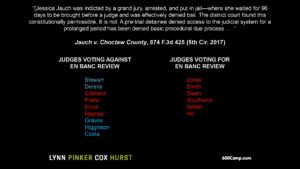 After a thorough review of the “fundamental relationship between a relator and the Government in qui tam actions,” the Fifth Circuit concluded that private relators dismissal of an action with prejudice did not bind the non-intervening U.S. government: “[R]elators sought to abandon their claims because they no longer wished to participate in the litigation. In other words, they acted on purely private interests. The Government—even one that chooses not to intervene—should not be bound by this decision, powerless to vindicate the public’s interests in other actions that may have a stronger basis or a relator more able to shoulder the burdens of litigation.” U.S. ex rel. Vaughn v. United Biologics LLC, No. 17-20389 (Sept. 7, 2018).
After a thorough review of the “fundamental relationship between a relator and the Government in qui tam actions,” the Fifth Circuit concluded that private relators dismissal of an action with prejudice did not bind the non-intervening U.S. government: “[R]elators sought to abandon their claims because they no longer wished to participate in the litigation. In other words, they acted on purely private interests. The Government—even one that chooses not to intervene—should not be bound by this decision, powerless to vindicate the public’s interests in other actions that may have a stronger basis or a relator more able to shoulder the burdens of litigation.” U.S. ex rel. Vaughn v. United Biologics LLC, No. 17-20389 (Sept. 7, 2018).
 The Consumer Financial Protection Bureau – the subject of ongoing litigation about the constitutionality of its structure, which has been at issue in the recent Kavanaugh hearings – lost a challenge to a civil investigative demand in CFPB v. The Source for Public Data: “The CFPB did not comply with 12 U.S.C. § 5562(c)(2) when it issued this CID to Public Data. First, it did not state the ‘conduct constituting the alleged violation which is under investigation.’ According to its Notification of Purpose, the CFPB is investigating ‘unlawful acts and practices in connection with the provision or use of public records information.’ Simply put, this Notification of Purpose does not identify what conduct, it believes, constitutes an alleged violation. . . . Moreover, this CID does not identify ‘the provision of law applicable to such violation.’ As discussed, the CID never identifies an alleged violation, so it is unsurprising that it fails to identify a relevant provision of law.” No. 17-10732 (Sept. 6, 2018).
The Consumer Financial Protection Bureau – the subject of ongoing litigation about the constitutionality of its structure, which has been at issue in the recent Kavanaugh hearings – lost a challenge to a civil investigative demand in CFPB v. The Source for Public Data: “The CFPB did not comply with 12 U.S.C. § 5562(c)(2) when it issued this CID to Public Data. First, it did not state the ‘conduct constituting the alleged violation which is under investigation.’ According to its Notification of Purpose, the CFPB is investigating ‘unlawful acts and practices in connection with the provision or use of public records information.’ Simply put, this Notification of Purpose does not identify what conduct, it believes, constitutes an alleged violation. . . . Moreover, this CID does not identify ‘the provision of law applicable to such violation.’ As discussed, the CID never identifies an alleged violation, so it is unsurprising that it fails to identify a relevant provision of law.” No. 17-10732 (Sept. 6, 2018).
 In 2018, the Texas Supreme Court and the Fifth Circuit have taken different approaches to an important type of “Casteel” problem, in which a jury question has several legally viable theories, some of which are not supported with adequate evidence.
In 2018, the Texas Supreme Court and the Fifth Circuit have taken different approaches to an important type of “Casteel” problem, in which a jury question has several legally viable theories, some of which are not supported with adequate evidence.
Federal. After a thorough (and infrequently-seen) summary of how federal law has developed on the “Casteel problem” of commingled liability theories, the Fifth Circuit concluded in Nester v. Textron, Inc., 888 F.3d 151 (5th Cir. 2018): “We will not reverse a verdict simply because the jury might have decided on a ground that was supported by insufficient evidence.” (applying, inter alia, Griffin v. United States, 502 U.S. 46 (1991)).
State. In Benge v. Williams, 548 S.W.3d 466 (Tex. 2018), a medical-malpractice case, the Texas Supreme Court observed: “The jury question in the present case, unlike the one in Casteel, did not include multiple theories, some valid and some invalid. It inquired about a single theory: negligence. But we have twice held that when the question allows a finding of liability based on evidence that cannot support recovery, the same presumption-of-harm rule must be applied.”
(Thanks to Mark Trachtenberg for pointing out this comparison at the recent Advanced Civil Appellate Course!)
 The plaintiff in Bloom v. Aftermath Public Adjusters, Inc. tried to overcome a limitations problem with the tolling doctrine for malpractice claims recognized by Hughes v. Mahaney & Higgins, 821 S.W.2d 154 (Tex. 1991). The plaintiff’s claim involved the conduct of a licensed public adjuster working for an insurance company; the Ffith Circuit characterized his argument as saying “that public adjusters are actually lawyers in disguise. Bloom concedes defendants are technically ‘non-lawyers,’ but he insists they effectively ‘provide[d] legal services,’ because there was once a time when Texas prohibited non-lawyers from engaging in public adjusting.” The Court was unpersuaded in this Erie case:
The plaintiff in Bloom v. Aftermath Public Adjusters, Inc. tried to overcome a limitations problem with the tolling doctrine for malpractice claims recognized by Hughes v. Mahaney & Higgins, 821 S.W.2d 154 (Tex. 1991). The plaintiff’s claim involved the conduct of a licensed public adjuster working for an insurance company; the Ffith Circuit characterized his argument as saying “that public adjusters are actually lawyers in disguise. Bloom concedes defendants are technically ‘non-lawyers,’ but he insists they effectively ‘provide[d] legal services,’ because there was once a time when Texas prohibited non-lawyers from engaging in public adjusting.” The Court was unpersuaded in this Erie case:
“But that was then, and this is now. Even assuming Texas law previously classified public adjusting as legal practice, under the relevant regime, these defendants are non-lawyers who were not engaged in legal practice. By definition, Bloom’s claims cannot implicate the unique relationship that triggers the bright-line rule from Hughes. Only Texas has the power to say where lawyer-ing ends and adjusting begins, just as its courts have the sole power to decide Hughes’s outer bounds.”
No. 17-41087 (Sept. 4, 2018).
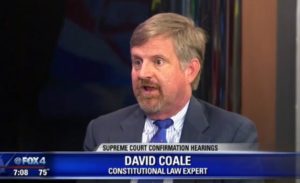 I commented today about the start of the Kavanaugh hearings on the morning show of Dallas’s Fox affiliate.
I commented today about the start of the Kavanaugh hearings on the morning show of Dallas’s Fox affiliate.
 Having just now seen Darkest Hour, the Academy Award-winning film about Churchill confronting Britain’s terrible military situation in May of 1940, I was inspired to update this blog’s page about legal writing with an essay written by Churchill as a young man called “The Scaffolding of Rhetoric.” It illustrates five simple ways to put words together to add power to the overall message they convey.
Having just now seen Darkest Hour, the Academy Award-winning film about Churchill confronting Britain’s terrible military situation in May of 1940, I was inspired to update this blog’s page about legal writing with an essay written by Churchill as a young man called “The Scaffolding of Rhetoric.” It illustrates five simple ways to put words together to add power to the overall message they convey.
 The plaintiffs in Alaska Elec. Pension Fund v. Asar alleged securities fraud about the affairs of Hanger, Inc., the nation’s largest provider of orthotic and prosthetic patient care. The Fifth Circuit largely affirmed dismissal, but as to one defendant found adequate allegations of scienter based primarily on statements in an audit committee report, which “support the inference that McHenry shared the objectives of improperly enhancing Hanger’s financial results, or that he at least knew that others were doing so. A dissent would have also dismissed as to him, noting that “the complaint makes no effort to demonstrate which portions of the Report show that McHenry, or any other defendant, had the requisite scienter.” No. 17-50162 (Aug. 6, 2018).
The plaintiffs in Alaska Elec. Pension Fund v. Asar alleged securities fraud about the affairs of Hanger, Inc., the nation’s largest provider of orthotic and prosthetic patient care. The Fifth Circuit largely affirmed dismissal, but as to one defendant found adequate allegations of scienter based primarily on statements in an audit committee report, which “support the inference that McHenry shared the objectives of improperly enhancing Hanger’s financial results, or that he at least knew that others were doing so. A dissent would have also dismissed as to him, noting that “the complaint makes no effort to demonstrate which portions of the Report show that McHenry, or any other defendant, had the requisite scienter.” No. 17-50162 (Aug. 6, 2018).
 While cleaning ventilation equipment at the L’Auberge Casino in Lake Charles, Renwick fell from a defective ladder and later sued the property owner for his injuries. The Fifth Circuit reversed a summary judgment for the defense, noting “that it is th[e] combination of evidence–[Defendant’s] control of work-site access, its specific instructions about how to reach the vents, its rejection of an alternate access route, and the dispute over who provided the access ladder–that creates a jury issue on operational control.” (emphasis in original0 The Court reminded: “To be sure, a fact finder could ultimately reach a different conclusion. All we decide is that the evidence –viewed, as it must be, in the light most favorable to Renwick– would permit a reasonable trier of fact to resolve the operational control issue either way, and that the district court therefore erred in granting summary judgment.” Renwick v. PNK Lake Charles LLC, No. 17-30767 (Aug. 27, 2018).
While cleaning ventilation equipment at the L’Auberge Casino in Lake Charles, Renwick fell from a defective ladder and later sued the property owner for his injuries. The Fifth Circuit reversed a summary judgment for the defense, noting “that it is th[e] combination of evidence–[Defendant’s] control of work-site access, its specific instructions about how to reach the vents, its rejection of an alternate access route, and the dispute over who provided the access ladder–that creates a jury issue on operational control.” (emphasis in original0 The Court reminded: “To be sure, a fact finder could ultimately reach a different conclusion. All we decide is that the evidence –viewed, as it must be, in the light most favorable to Renwick– would permit a reasonable trier of fact to resolve the operational control issue either way, and that the district court therefore erred in granting summary judgment.” Renwick v. PNK Lake Charles LLC, No. 17-30767 (Aug. 27, 2018).
OGA Charters entered bankruptcy after a tragic accident involving one of its buses. Applying Louisiana World Exposition Inc. v. Fed. Ins. Co., 832 F.2d 1391 (5th Cir. 1987), and Houston v. Edgeworth, 993 F.2d 51 (5th Cir. 1993), the Fifth Circuit held: “We now make official what our cases have long contemplated: In the ‘limited circumstances,’ as here, where a siege of tort claimants threaten the debtor’s estate over and above the policy limits, we classify the proceeds as property of the estate. Here, over $400 million in related claims threaten the debtor’s estate over and above the $5 million policy limit, giving rise to an equitable interest of the debtor in having the proceeds applied to satisfy as much of those claims as possible.” Martinez v. OGA Charters LLC, No. 17-40920 (Aug. 24, 2018).
 Monty Python’s famous “Dead Parrot” sketch involved John Cleese and Michael Palin debating whether a dead bird sold by a pet store was, in fact, deceased. In that same spirit, the case of Alliance for Good Government v. Coalition for Better Government addressed whether the Coalition’s bird-based logo infringed the Alliance’s logo:
Monty Python’s famous “Dead Parrot” sketch involved John Cleese and Michael Palin debating whether a dead bird sold by a pet store was, in fact, deceased. In that same spirit, the case of Alliance for Good Government v. Coalition for Better Government addressed whether the Coalition’s bird-based logo infringed the Alliance’s logo:
Alliance won in the trial court, as the birds appear identical, “with the same down-point ed beak, gazing over the same wing (the right), sporting the same number of feathers (forty-three).” Unphased, Coalition argued that its bird was a hawk, while Alliance’s was an eagle, leading to a puzzled exchange with the district judge:
ed beak, gazing over the same wing (the right), sporting the same number of feathers (forty-three).” Unphased, Coalition argued that its bird was a hawk, while Alliance’s was an eagle, leading to a puzzled exchange with the district judge:
DISTRICT COURT: They look exactly alike to me, the two birds.
COUNSEL: […] [N]o, they really aren’t, your Honor, if you look at the wing span. The wing span of the eagle is different from the hawk. It’s much larger and it fans out, and that’s just the way the hawk looks.
Equally puzzled, the Fifth Circuit affirmed: “To cut to the chase: Alliance and Coalition have the same logo.” No. 17-30859 (Aug. 22, 2018) (emphasis in original).
 IAS, an insurance claim-adjusting firm, acquired Buckley, another such firm. Litigation ensued after Buckley was unable to bring the business from a large client, QBE. The Fifth Circuit found that IAS stated a viable fraudulent-inducement claim under Fed. R. Civ. P. 9(b) as to “three alleged misrepresentations that it contends led it to enter into the asset purchase agreement: (1) Buckley’s statement that Buckley & Associates was QBE’s ‘number one’ vendor; (2) Buckley’s statement that Buckley & Associates’ revenue from QBE would continue to grow; and (3) the statement in § 2.3 of the purchase agreement that its execution would not ‘violate, conflict, [or] result in a breach of . . . any Contract . . . to which [Buckley & Associates] is a party.'” The Court’s analysis of the third factor is particularly informative, touching on recent Texas Supreme Court authority about waiver-of-reliance provisions (Italian Cowboy Partners v. Prudential Ins. Co., 341 S.W.3d 323 (Tex. 2011)) and “red flags” that can negate justifiable reliance. (JPMorgan Chase Bank v. Orca Assets GP, LLC, 546 S.W.3d 648 (Tex. 2018)). A dissent would not have found any of the representations fraudulent as pleaded. IAS Service Group v. Buckley & Assocs., No. 17-50105 (Aug. 17, 2018).
IAS, an insurance claim-adjusting firm, acquired Buckley, another such firm. Litigation ensued after Buckley was unable to bring the business from a large client, QBE. The Fifth Circuit found that IAS stated a viable fraudulent-inducement claim under Fed. R. Civ. P. 9(b) as to “three alleged misrepresentations that it contends led it to enter into the asset purchase agreement: (1) Buckley’s statement that Buckley & Associates was QBE’s ‘number one’ vendor; (2) Buckley’s statement that Buckley & Associates’ revenue from QBE would continue to grow; and (3) the statement in § 2.3 of the purchase agreement that its execution would not ‘violate, conflict, [or] result in a breach of . . . any Contract . . . to which [Buckley & Associates] is a party.'” The Court’s analysis of the third factor is particularly informative, touching on recent Texas Supreme Court authority about waiver-of-reliance provisions (Italian Cowboy Partners v. Prudential Ins. Co., 341 S.W.3d 323 (Tex. 2011)) and “red flags” that can negate justifiable reliance. (JPMorgan Chase Bank v. Orca Assets GP, LLC, 546 S.W.3d 648 (Tex. 2018)). A dissent would not have found any of the representations fraudulent as pleaded. IAS Service Group v. Buckley & Assocs., No. 17-50105 (Aug. 17, 2018).
 The hard-fought litigation over Harris County’s bail policies returned to the Fifth Circuit after a limited remand on the scope and structure of proper injunctive relief. The Court granted a stay pending resolution of the merits; in particular, noting the effect of the appellate “mandate rule” on 3 parts of the revised injunction:
The hard-fought litigation over Harris County’s bail policies returned to the Fifth Circuit after a limited remand on the scope and structure of proper injunctive relief. The Court granted a stay pending resolution of the merits; in particular, noting the effect of the appellate “mandate rule” on 3 parts of the revised injunction:
- “The original injunction contained the requirement that a hearing be held within 24 hours. Thus, the same issue of what to do with arrestees during the gap between arrest and hearing—be it 24 or 48 hours—was always at issue and could have been addressed during the initial proceedings. Remand is not the time to bring new issues that could have been raised initially. Thus, Section 7 plainly violates the mandate rule, and the Fourteen Judges are likely to succeed on the merits as to that section.” (emphasis added)
- “[The first appeal determined that 48 hours was sufficient under the Constitution.. . . [I]n the model injunction, the proposed remedy for failure to comply with that requirement was for the County to make weekly reports to the district court identifying any delays and to inform the detainees’ counsel or next of kin about the delays. . . . The district co
 urt was to monitor the situation for a pattern of violations and only then take possible corrective action. Anything broader than that remedy violates any reasonable reading of the mandate.” (emphasis added).
urt was to monitor the situation for a pattern of violations and only then take possible corrective action. Anything broader than that remedy violates any reasonable reading of the mandate.” (emphasis added).
O’Donnell v. Goodhart, No. 18-20466 (Aug. 14, 2018).
 At the intersection of civil and criminal law, United States v. Gas Pipe reminds of the reach of the federal civil forfeiture: “Although ‘merely pooling tainted and untainted funds in an account does not, without more, render that account subject to forfeiture,’ untainted funds are forfeitable if a defendant commingled them with tainted funds ‘to disguise the nature and source of his scheme.’ Here, the Government alleged in its verified complaint that the defendant Claimants commingled tainted and untainted funds in the UBS accounts to conceal or disguise the tainted funds. Some commingled funds allegedly also secured a loan that financed the alleged spice scheme and which was repaid with criminal proceeds.” No. 17-10626 (Aug. 16, 2018) (citations omitted).
At the intersection of civil and criminal law, United States v. Gas Pipe reminds of the reach of the federal civil forfeiture: “Although ‘merely pooling tainted and untainted funds in an account does not, without more, render that account subject to forfeiture,’ untainted funds are forfeitable if a defendant commingled them with tainted funds ‘to disguise the nature and source of his scheme.’ Here, the Government alleged in its verified complaint that the defendant Claimants commingled tainted and untainted funds in the UBS accounts to conceal or disguise the tainted funds. Some commingled funds allegedly also secured a loan that financed the alleged spice scheme and which was repaid with criminal proceeds.” No. 17-10626 (Aug. 16, 2018) (citations omitted).
 Veritext, a national court reporting service, challenged restrictions on its pricing practices (volume discounts, etc.) imposed by the Louisiana Board of Examiners of Certified Shorthand Reporters. The Fifth Circuit rejected Veritext’s constitutional claims but found that it had stated a viable restraint-of-trade claim under the Sherman Act. The Board claimed Parker antitrust immunity as a state actor, which required it to show “two requirements: first that ‘the challenged restraint . . . be one clearly articulated and affirmatively expressed as state policy,’ and second that ‘the policy . . . be actively supervised by the State.’” The Board satisfied the first, as its regulations were clear (thus creating the alleged restraint of trade in the first
Veritext, a national court reporting service, challenged restrictions on its pricing practices (volume discounts, etc.) imposed by the Louisiana Board of Examiners of Certified Shorthand Reporters. The Fifth Circuit rejected Veritext’s constitutional claims but found that it had stated a viable restraint-of-trade claim under the Sherman Act. The Board claimed Parker antitrust immunity as a state actor, which required it to show “two requirements: first that ‘the challenged restraint . . . be one clearly articulated and affirmatively expressed as state policy,’ and second that ‘the policy . . . be actively supervised by the State.’” The Board satisfied the first, as its regulations were clear (thus creating the alleged restraint of trade in the first 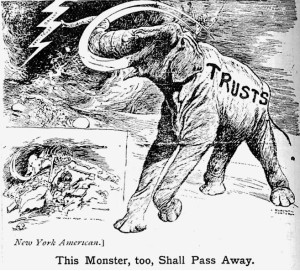 place), but failed the second: “Nothing in the record indicates that elected or appointed officials oversaw or reviewed the Board’s decisions or modified the Board’s enforcement priorities. And the Board’s argument on this point—that the legislature can amend the law in this area or veto proposed rules under Louisiana’s Administrative Procedure Act—is unconvincing. State legislatures always possess the power to change the law.” Veritext Corp. v. Bonin, No. 17-30691 (Aug. 17, 2018) (applying State Board of Dental Examiners v. FTC, 135 S.Ct. 1101 (2015)).
place), but failed the second: “Nothing in the record indicates that elected or appointed officials oversaw or reviewed the Board’s decisions or modified the Board’s enforcement priorities. And the Board’s argument on this point—that the legislature can amend the law in this area or veto proposed rules under Louisiana’s Administrative Procedure Act—is unconvincing. State legislatures always possess the power to change the law.” Veritext Corp. v. Bonin, No. 17-30691 (Aug. 17, 2018) (applying State Board of Dental Examiners v. FTC, 135 S.Ct. 1101 (2015)).
Fou r of my LPCH partners and I were recently named to “Best Lawyers in America” for 2019!
r of my LPCH partners and I were recently named to “Best Lawyers in America” for 2019!
 An expert’s analysis of an electrical fire on a boat involved a “‘hose test,’ in which he directed water from a garden hose onto the boat’s wet bar and tracked where the water ended up.” Unfortunately for him, because this work was “meant to be a simulation or re-creation of what actually happened, it must be performed under ‘substantially similar conditions'” to the fire, and it was not: “Plaisance’s videos did not contain important information about how he conducted the experiment, such as ‘how long the hose ha[d] been running’ or ‘the pressure of the water coming out of the hose.’ Moreover, the video showed ‘a continuous stream of water from a garden hose directly at the junction between the back of the wet bar and the boat’s wall,’ and there was no indication that Gonzalez ever used a hose in that fashion. In fact, as the district court noted, Plaisance did not provide any information about how Gonzalez typically washed the boat.” Similar problems also undermined another expert’s testimony about electrical issues on the boat. Atlantic Specialty Insurance Co. v. Porter, Inc., No. 16-31259 (Aug. 6, 2018).
An expert’s analysis of an electrical fire on a boat involved a “‘hose test,’ in which he directed water from a garden hose onto the boat’s wet bar and tracked where the water ended up.” Unfortunately for him, because this work was “meant to be a simulation or re-creation of what actually happened, it must be performed under ‘substantially similar conditions'” to the fire, and it was not: “Plaisance’s videos did not contain important information about how he conducted the experiment, such as ‘how long the hose ha[d] been running’ or ‘the pressure of the water coming out of the hose.’ Moreover, the video showed ‘a continuous stream of water from a garden hose directly at the junction between the back of the wet bar and the boat’s wall,’ and there was no indication that Gonzalez ever used a hose in that fashion. In fact, as the district court noted, Plaisance did not provide any information about how Gonzalez typically washed the boat.” Similar problems also undermined another expert’s testimony about electrical issues on the boat. Atlantic Specialty Insurance Co. v. Porter, Inc., No. 16-31259 (Aug. 6, 2018).
 Federal crop insurance “protects an asset that does not yet exist,” since future crops are not yet grown. Congress refined the applicable statutes in 2014, allowing farmers to “elect to exclude” certain low-production
Federal crop insurance “protects an asset that does not yet exist,” since future crops are not yet grown. Congress refined the applicable statutes in 2014, allowing farmers to “elect to exclude” certain low-production  years from the historical calculations needed to write insurance for future crop production. The relevant amendment applied “for any of the 2001 and subsequent crop years,” and became effective immediately. A dispute arose between Texas winter wheat farmers, who announced their intention to exclude years under this statute, and the Federal Crop Insurance Corporation, who said it lacked time to prepare the necessary data. The Fifth Circuit rejected the FCIC’s argument that this statute’s “effective” date was distinct from its “implementation” date, finding that it failed step one of Chevron – “Such a problem arises not from an ambiguous
years from the historical calculations needed to write insurance for future crop production. The relevant amendment applied “for any of the 2001 and subsequent crop years,” and became effective immediately. A dispute arose between Texas winter wheat farmers, who announced their intention to exclude years under this statute, and the Federal Crop Insurance Corporation, who said it lacked time to prepare the necessary data. The Fifth Circuit rejected the FCIC’s argument that this statute’s “effective” date was distinct from its “implementation” date, finding that it failed step one of Chevron – “Such a problem arises not from an ambiguous  text but from Congress implementing razor sharp deadlines without, at least according to the FCIC, sufficient resources. That does not give the FCIC authority to disregard the plain text of the statute . . . .” Adkins v. Silverman, No. 17-10759 (Aug. 7, 2018).
text but from Congress implementing razor sharp deadlines without, at least according to the FCIC, sufficient resources. That does not give the FCIC authority to disregard the plain text of the statute . . . .” Adkins v. Silverman, No. 17-10759 (Aug. 7, 2018).
 The parties settled and filed an unconditional stipulation of dismissal under Fed. R Civ. P. 41(a)(1)(A)(ii). Months later, one of them sought to reopen that action and rescind the settlement, alleging forgery of a key signature. The Fifth Circuit found that “ancillary jurisdiction” was not available, as that doctrine is limited to (1) “factually interdependent claims” (which “disappear[] . . . after the original federal dispute is dismissed,” or (2) “‘collateral issues’ . . . things like fees, costs, contempt, and sanctions,” which could apply to an appropriate order but not to this type of unconditional dismissal. The Court found jurisdiction under Fed. R. Civ. P. 60(b)(1), which addresses “mistake, inadvertence, surprise, or excusable neglect,” but was of little help here where the settlement documents expressly allocated risk about later-discovered evidence. Other parts of that rule did not apply. “By unconditionally dismissing this action under Rule 41(a)(1)(A)(ii), the parties divested the district court of subject-matter jurisdiction over their dispute. To reopen this case, Scott must lean on Rule 60(b). But that rule’s six doors remain closed.” National City Golf Finance v. Scott, No. 17-60283 (Aug. 9, 2018).
The parties settled and filed an unconditional stipulation of dismissal under Fed. R Civ. P. 41(a)(1)(A)(ii). Months later, one of them sought to reopen that action and rescind the settlement, alleging forgery of a key signature. The Fifth Circuit found that “ancillary jurisdiction” was not available, as that doctrine is limited to (1) “factually interdependent claims” (which “disappear[] . . . after the original federal dispute is dismissed,” or (2) “‘collateral issues’ . . . things like fees, costs, contempt, and sanctions,” which could apply to an appropriate order but not to this type of unconditional dismissal. The Court found jurisdiction under Fed. R. Civ. P. 60(b)(1), which addresses “mistake, inadvertence, surprise, or excusable neglect,” but was of little help here where the settlement documents expressly allocated risk about later-discovered evidence. Other parts of that rule did not apply. “By unconditionally dismissing this action under Rule 41(a)(1)(A)(ii), the parties divested the district court of subject-matter jurisdiction over their dispute. To reopen this case, Scott must lean on Rule 60(b). But that rule’s six doors remain closed.” National City Golf Finance v. Scott, No. 17-60283 (Aug. 9, 2018).
 Problems in the construction of the Zapata County courthouse (right) led to litigation between S&P (the general contractor), and its subcontractors, as well as between S&P and its insurer. The insurer and S&P disputed S&P’s allocation of the proceeds from settlements with the subcontractors, and the Fifth Circuit affirmed judgment for the insurer: “S&P bears the burden to show that the subcontractor settlement proceeds were properly allocated to either covered or noncovered damages. If S&P cannot meet that burden, under the [two controlling cases], then we must assume that all of the settlement proceeds went first to satisfy the covered damages under U.S. Fire’s policy.” Satterfield & Pontikes Constr. v. U.S. Fire Ins. Co., No. 17-20513 (Aug. 2, 2018).
Problems in the construction of the Zapata County courthouse (right) led to litigation between S&P (the general contractor), and its subcontractors, as well as between S&P and its insurer. The insurer and S&P disputed S&P’s allocation of the proceeds from settlements with the subcontractors, and the Fifth Circuit affirmed judgment for the insurer: “S&P bears the burden to show that the subcontractor settlement proceeds were properly allocated to either covered or noncovered damages. If S&P cannot meet that burden, under the [two controlling cases], then we must assume that all of the settlement proceeds went first to satisfy the covered damages under U.S. Fire’s policy.” Satterfield & Pontikes Constr. v. U.S. Fire Ins. Co., No. 17-20513 (Aug. 2, 2018).
 The district court dismissed fraud claims against an accounting firm for not complying with a Louisiana pre-suit review requirement. The Fifth Circuit affirmed but remanded for clarification as to whether the dismissal was with, or without, prejudice. Fed. R. Civ. P. 41 generally assumes that silence means “with
The district court dismissed fraud claims against an accounting firm for not complying with a Louisiana pre-suit review requirement. The Fifth Circuit affirmed but remanded for clarification as to whether the dismissal was with, or without, prejudice. Fed. R. Civ. P. 41 generally assumes that silence means “with  prejudice,” but the Supreme Court has recognized that that rule’s exception for “jurisdiction” goes so far as “encompassing those dismissals which are based on a plaintiff’s failure to comply with a precondition requisite to the Court’s going forward to determine the merits of his substantive claim.”
prejudice,” but the Supreme Court has recognized that that rule’s exception for “jurisdiction” goes so far as “encompassing those dismissals which are based on a plaintiff’s failure to comply with a precondition requisite to the Court’s going forward to determine the merits of his substantive claim.”
Firefighters’ Retirement System v. EisenerAmper LLP, No. 17-30273 (Aug. 2, 2018).
 “Aetna’s reliance on any alleged misrepresentation by NCMC was not justifiable. Almost immediately after NCMC notified Aetna of its prompt pay discount, Aetna began investigating. Its investigation revealed NCMC’s billing practices. Yet Aetna continued to pay claims marked with the prompt pay discount moniker.” In support, the Fifth Circuit cited the recent and influential case of JPMorgan Chase v. Orca Assets, 546 S.W.3d 648 (Tex. 2018), and “promoted” the unpublished case of Highland Crusader Offshore Partners v. LifeCare Holdings, 377 F. App’x 422 (5th Cir. 2010), observing: “The panel recognizes that Highland Crusader is unpublished, and therefore not precedential, but we cite it here to show consistency throughout our case law.” North Cypress Medical Center v. Aetna, No. 16-20674 (July 31, 2018).
“Aetna’s reliance on any alleged misrepresentation by NCMC was not justifiable. Almost immediately after NCMC notified Aetna of its prompt pay discount, Aetna began investigating. Its investigation revealed NCMC’s billing practices. Yet Aetna continued to pay claims marked with the prompt pay discount moniker.” In support, the Fifth Circuit cited the recent and influential case of JPMorgan Chase v. Orca Assets, 546 S.W.3d 648 (Tex. 2018), and “promoted” the unpublished case of Highland Crusader Offshore Partners v. LifeCare Holdings, 377 F. App’x 422 (5th Cir. 2010), observing: “The panel recognizes that Highland Crusader is unpublished, and therefore not precedential, but we cite it here to show consistency throughout our case law.” North Cypress Medical Center v. Aetna, No. 16-20674 (July 31, 2018).
John Williams was seriously injured in a 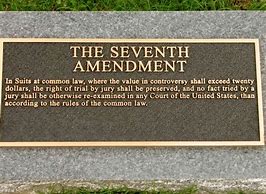 crane accident; a jury found that the crane manufacturer “failed to warn Model 16000 Series crane operators that, if the crane tips over, large weights stacked on the rear of the crane can slide forward and strike the operator’s cab.” The Fifth Circuit affirmed that multi-million dollar verdict, finding that the jury acted within its authority as to (1) liability for failure to warn, (2) proximate cause and alleged misuse by Williams, (3) proximate cause and an alleged alternative warning (left),
crane accident; a jury found that the crane manufacturer “failed to warn Model 16000 Series crane operators that, if the crane tips over, large weights stacked on the rear of the crane can slide forward and strike the operator’s cab.” The Fifth Circuit affirmed that multi-million dollar verdict, finding that the jury acted within its authority as to (1) liability for failure to warn, (2) proximate cause and alleged misuse by Williams, (3) proximate cause and an alleged alternative warning (left), (4) a Daubert challenge to the plaintiff’s expert on warnings (applying Roman v. Western Manufacturing, 691 F.3d 686 (5th Cir. 2012), and Huss v. Gayden, 571 F.3d 443 (5th Cir. 2009) – two powerful statements by the Court about admissible expert analysis), and (5) admissibility rulings about other accidents and the plaintiff’s prior conduct. The opinion provides a powerful illustration of a well-conducted trial by jury. Williamv v. Manitowoc Cranes LLC, No. 17-60458 (Aug. 3, 2018).
(4) a Daubert challenge to the plaintiff’s expert on warnings (applying Roman v. Western Manufacturing, 691 F.3d 686 (5th Cir. 2012), and Huss v. Gayden, 571 F.3d 443 (5th Cir. 2009) – two powerful statements by the Court about admissible expert analysis), and (5) admissibility rulings about other accidents and the plaintiff’s prior conduct. The opinion provides a powerful illustration of a well-conducted trial by jury. Williamv v. Manitowoc Cranes LLC, No. 17-60458 (Aug. 3, 2018).
 Villareal sought to redeem five certificates of deposit purchased in the early 1980s. His primary legal theory, apparently selected to avoid problems with suing on the instruments themselves, was the quasi-contractual / restitution theory recognized in Texas law for “money had and received.” That theory ordinarily does not apply when an express contract (here, the CDs) addresses the subject. To escape that limitation, Villareal relied on Texas authority under which “an overpayment beyond what a contract provides may sometimes be recovered as unjust enrichment. If an overpayment qualifies as unjust enrichment, reasoned the district court, so should an underpayment.” (citation omitted, emphasis in original). The Fifth Circuit disagreed: “Overpayment typically falls outside a contract’s terms and, in that event, the contract would not ‘cover[] the subject matter of the parties’ dispute.’ By contrast, here the dispute involved the claimed non-payment of a debt evidenced by express contracts (the CDs). Unjust enrichment has no role to play.” (citation omitted, emphasis in original). Villareal v. Presidio Nat’l Bank (revised), No. 17-50765 (July 27, 2018, unpublished). (Picture above of Professor Samuel Williston eyeing some of his extensive work on express contracts).
Villareal sought to redeem five certificates of deposit purchased in the early 1980s. His primary legal theory, apparently selected to avoid problems with suing on the instruments themselves, was the quasi-contractual / restitution theory recognized in Texas law for “money had and received.” That theory ordinarily does not apply when an express contract (here, the CDs) addresses the subject. To escape that limitation, Villareal relied on Texas authority under which “an overpayment beyond what a contract provides may sometimes be recovered as unjust enrichment. If an overpayment qualifies as unjust enrichment, reasoned the district court, so should an underpayment.” (citation omitted, emphasis in original). The Fifth Circuit disagreed: “Overpayment typically falls outside a contract’s terms and, in that event, the contract would not ‘cover[] the subject matter of the parties’ dispute.’ By contrast, here the dispute involved the claimed non-payment of a debt evidenced by express contracts (the CDs). Unjust enrichment has no role to play.” (citation omitted, emphasis in original). Villareal v. Presidio Nat’l Bank (revised), No. 17-50765 (July 27, 2018, unpublished). (Picture above of Professor Samuel Williston eyeing some of his extensive work on express contracts).
 After trial of a Lanham Act claim involving the right to use the term “Cowboy” in advertising bourbon, the jury found abandonment of the plaintiff’s alleged mark, and the Fifth Circuit affirmed. “As the district court observed, the jury fairly rejected the testimony of Allied’s founder, Marci Palatella, and Allied’s price lists as evidence of intent to resume use. . . . Garrison Brothers presented evidence undermining Palatella’s contention that Allied specializes in old, rare, and expensive whiskeys; disputing Palatella’s reliance on a bourbon shortage as a reason for Allied’s failure to sell ‘COWBOY LITTLE BARREL’ bourbon after 2009; and highlighting Palatella’s inconsistent testimony concerning Allied’s price lists.” Allied Lomar, Inc. v. Lone Star Distillery LLC, No. 17-50148 (July 17, 2018, unpublished).
After trial of a Lanham Act claim involving the right to use the term “Cowboy” in advertising bourbon, the jury found abandonment of the plaintiff’s alleged mark, and the Fifth Circuit affirmed. “As the district court observed, the jury fairly rejected the testimony of Allied’s founder, Marci Palatella, and Allied’s price lists as evidence of intent to resume use. . . . Garrison Brothers presented evidence undermining Palatella’s contention that Allied specializes in old, rare, and expensive whiskeys; disputing Palatella’s reliance on a bourbon shortage as a reason for Allied’s failure to sell ‘COWBOY LITTLE BARREL’ bourbon after 2009; and highlighting Palatella’s inconsistent testimony concerning Allied’s price lists.” Allied Lomar, Inc. v. Lone Star Distillery LLC, No. 17-50148 (July 17, 2018, unpublished).
 In addition to inspiring 600Camp’s most painful pun of 2018, Ditech Financial LLC v. Naumann provides a thorough summary of the requirement – unique to default judgments, among all judgments available under the Federal Rules – that the relief awarded “must not differ in kind from, or exceed in amount, what is demanded in the pleadings.” As applied here, “Ditech’s demand for judicial foreclosure gave meaningful notice that, in the event of default, a writ of possession would issue in favor of the foreclosure-sale purchaser. Texas’s process of enforcing a judicial foreclosure—and specifically its mechanism for enforcing the foreclosure sale— entails issuance of the writ. Accordingly, in this case the judgment’s provision for future issuance of the writ did not expand or alter the kind or amount of relief prayed for by Ditech.” No. 17-50616 (July 19, 2018, unpublished).
In addition to inspiring 600Camp’s most painful pun of 2018, Ditech Financial LLC v. Naumann provides a thorough summary of the requirement – unique to default judgments, among all judgments available under the Federal Rules – that the relief awarded “must not differ in kind from, or exceed in amount, what is demanded in the pleadings.” As applied here, “Ditech’s demand for judicial foreclosure gave meaningful notice that, in the event of default, a writ of possession would issue in favor of the foreclosure-sale purchaser. Texas’s process of enforcing a judicial foreclosure—and specifically its mechanism for enforcing the foreclosure sale— entails issuance of the writ. Accordingly, in this case the judgment’s provision for future issuance of the writ did not expand or alter the kind or amount of relief prayed for by Ditech.” No. 17-50616 (July 19, 2018, unpublished).
 An element of judicial estoppel is that “a court accepted the prior position” that is inconsistent with a party’s position in the case at hand. In Fornesa v. Fifth Third Mortgage Co., a bankruptcy debtor’s failure to amend his financial schedules satisfied that requirement, as “the bankruptcy court . . . implicitly accepted the representation by operating as though [Debtor’s] financial status were unchanged. ‘Had the court been aware . . . it may well have altered the plan.'” No. 17-20324 (July 27, 2018).
An element of judicial estoppel is that “a court accepted the prior position” that is inconsistent with a party’s position in the case at hand. In Fornesa v. Fifth Third Mortgage Co., a bankruptcy debtor’s failure to amend his financial schedules satisfied that requirement, as “the bankruptcy court . . . implicitly accepted the representation by operating as though [Debtor’s] financial status were unchanged. ‘Had the court been aware . . . it may well have altered the plan.'” No. 17-20324 (July 27, 2018).
 The issue in Kirchner v. Deutsche Bank was whether a spouse’s signature on a deed of trust – but not the loan instrument – satisfied the Texas Constitution’s requirements about home equity loans. The Fifth Circuit found the issue was squarely addressed by a prior unpublished opinion, which it called “persuasive,” and affirmed – this time, in a published opinion. The broader principle is that unpublished opinions can work their way into published “status” when the issues they address are recurring ones. No. 17-50736 (July 11, 2018).
The issue in Kirchner v. Deutsche Bank was whether a spouse’s signature on a deed of trust – but not the loan instrument – satisfied the Texas Constitution’s requirements about home equity loans. The Fifth Circuit found the issue was squarely addressed by a prior unpublished opinion, which it called “persuasive,” and affirmed – this time, in a published opinion. The broader principle is that unpublished opinions can work their way into published “status” when the issues they address are recurring ones. No. 17-50736 (July 11, 2018).
 A practical tidbit about whether a notice of appeal is “jurisdictional” appeared during the last SCOTUS term in Hamer v. Neighborhood Housing Services: “Several Courts of Appeals, including the Court of Appeals in Hamer’s case, have tripped over our statement in Bowles [v. Russell, 551 U. S. 205, 210–213 (2007)], that “the taking of an appeal within the prescribed time is ‘mandatory and jurisdictional.’ The ‘mandatory and jurisdictional’ formulation is a characterization left over from days when we were ‘less than meticulous’ in our use of the term ‘jurisdictional.’ The statement was correct as applied in Bowles because, as the Court there explained, the time prescription at issue in Bowles was imposed by Congress. But ‘mandatory and jurisdictional’ is erroneous and confounding terminology where, as here, the relevant time prescription is absent from the U.S. Code. Because Rule 4(a)(5)(C), not § 2107, limits the length of the extension granted here, the time prescription is not jurisdictional.” No. 16-658 (Nov. 18, 2017) (citations and footnote omitted).
A practical tidbit about whether a notice of appeal is “jurisdictional” appeared during the last SCOTUS term in Hamer v. Neighborhood Housing Services: “Several Courts of Appeals, including the Court of Appeals in Hamer’s case, have tripped over our statement in Bowles [v. Russell, 551 U. S. 205, 210–213 (2007)], that “the taking of an appeal within the prescribed time is ‘mandatory and jurisdictional.’ The ‘mandatory and jurisdictional’ formulation is a characterization left over from days when we were ‘less than meticulous’ in our use of the term ‘jurisdictional.’ The statement was correct as applied in Bowles because, as the Court there explained, the time prescription at issue in Bowles was imposed by Congress. But ‘mandatory and jurisdictional’ is erroneous and confounding terminology where, as here, the relevant time prescription is absent from the U.S. Code. Because Rule 4(a)(5)(C), not § 2107, limits the length of the extension granted here, the time prescription is not jurisdictional.” No. 16-658 (Nov. 18, 2017) (citations and footnote omitted).
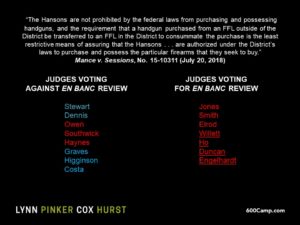 Rehearing motions led to a revised panel opinion and an en banc vote in Mance v. Sessions, a Constitutional challenge to restrictions on handgun sales by an authorized federally-licensed firearm dealer, to a purchaser who lives in a different state from the dealer. The revised opinion affirming the restrictions stood, with the Court voting 9-7 against rehearing en banc. Two of the three dissents from the vote were written by recent nominees of President Trump, with all of his nominees joining the vote in favor of review. Notably, this vote reflects two vacancies at the time it was conducted (one of which has since been filled with the confirmation of Judge Oldham, and other to be filled when a nomination is made to replace Judge Jolly of Mississippi). Assuming the two nominees would join the other new judges in their view of this case, their addition would be outcome-determinative as to its en banc review.
Rehearing motions led to a revised panel opinion and an en banc vote in Mance v. Sessions, a Constitutional challenge to restrictions on handgun sales by an authorized federally-licensed firearm dealer, to a purchaser who lives in a different state from the dealer. The revised opinion affirming the restrictions stood, with the Court voting 9-7 against rehearing en banc. Two of the three dissents from the vote were written by recent nominees of President Trump, with all of his nominees joining the vote in favor of review. Notably, this vote reflects two vacancies at the time it was conducted (one of which has since been filled with the confirmation of Judge Oldham, and other to be filled when a nomination is made to replace Judge Jolly of Mississippi). Assuming the two nominees would join the other new judges in their view of this case, their addition would be outcome-determinative as to its en banc review.
 The Senate has now confirmed Andrew Oldham of Texas as the newest judge on the Fifth Circuit. Congratulations and every best wish to Judge Oldham.
The Senate has now confirmed Andrew Oldham of Texas as the newest judge on the Fifth Circuit. Congratulations and every best wish to Judge Oldham.
 A difficult question of administrative law produced a divided panel in Collins v. Mnuchin. The panel majority concluded that the Federal Housing Finance Agency (a regulator for Fannie Mae and Freddie Mac created by Congress in the wake of the 2008 financial crisis) was unconstitutionally structured. After careful review of the Supreme Court’s precedents in the area, the panel excised a “for cause” limitation on the removal of FHFA’s director from the relevant statute, finding that with this revision “the FHFA survives as a properly supervised executive agency.” One dissent took issue with that holding; another dissent criticized the majority’s conclusion that the specific FHFA action at issue – a “net worth sweep” requiring payment of substantial quarterly dividends to the Treasury by Fannie and Freddie – was within the scope of FHFA’s statutory authority and thus insulated from judicial review. No. 17-20364 (July 16, 2018).
A difficult question of administrative law produced a divided panel in Collins v. Mnuchin. The panel majority concluded that the Federal Housing Finance Agency (a regulator for Fannie Mae and Freddie Mac created by Congress in the wake of the 2008 financial crisis) was unconstitutionally structured. After careful review of the Supreme Court’s precedents in the area, the panel excised a “for cause” limitation on the removal of FHFA’s director from the relevant statute, finding that with this revision “the FHFA survives as a properly supervised executive agency.” One dissent took issue with that holding; another dissent criticized the majority’s conclusion that the specific FHFA action at issue – a “net worth sweep” requiring payment of substantial quarterly dividends to the Treasury by Fannie and Freddie – was within the scope of FHFA’s statutory authority and thus insulated from judicial review. No. 17-20364 (July 16, 2018).
 A succinct case study in bankruptcy standing appears in Furlough v. Cage: “Furlough’s primary contention is that, but for NOV’s proof of claim, Technicool’s assets would exceed its debt, and he would be entitled to any estate surplus. Because SBPC represents both NOV and the Trustee, Furlough argues, it might fail to disclose any problems with NOV’s claim, robbing him of the possibility of recovering a surplus. This speculative prospect of harm is far from a direct, adverse, pecuniary hit. Furlough must clear a higher standing hurdle: The order must burden his pocket before he burdens a docket.” No. 17-20603 (July 16, 2018) (emphasis added).
A succinct case study in bankruptcy standing appears in Furlough v. Cage: “Furlough’s primary contention is that, but for NOV’s proof of claim, Technicool’s assets would exceed its debt, and he would be entitled to any estate surplus. Because SBPC represents both NOV and the Trustee, Furlough argues, it might fail to disclose any problems with NOV’s claim, robbing him of the possibility of recovering a surplus. This speculative prospect of harm is far from a direct, adverse, pecuniary hit. Furlough must clear a higher standing hurdle: The order must burden his pocket before he burdens a docket.” No. 17-20603 (July 16, 2018) (emphasis added).
 An emotionally-charged lawsuit about the disposal of embryonic and fetal tissue led to an unfortunately-timed subpoena (during Holy Week) to the Texas Conference of Catholic Bishops, which in turn led to emergency appellate proceedings. The Fifth Circuit’s panel majority found the order was appealable as an interlocutory order notwithstanding Mohawk Indus. v. Carpenter, 558 U.S. 100 (2009), noting the importance of the First Amendment issues involved and that “Mohawk does not speak to the predicament of third parties, whose claims to reasonable protection from the courts have often been met with respect.” A dissenting opinion would not have accepted the interlocutory appeal, noting that mandamus was also available (although requiring a “clear and indisputable” right rather than simply a substantial question), and observing that the movants’ “failure to object to the in camera inspection [at issue] certainly forfeits an appellate challenge to it, and the affirmative act of producing the documents likely amounts to full-scale waiver.” Whole Woman’s Health v. Smith, No. 18-50484 (revised July 17, 2018).
An emotionally-charged lawsuit about the disposal of embryonic and fetal tissue led to an unfortunately-timed subpoena (during Holy Week) to the Texas Conference of Catholic Bishops, which in turn led to emergency appellate proceedings. The Fifth Circuit’s panel majority found the order was appealable as an interlocutory order notwithstanding Mohawk Indus. v. Carpenter, 558 U.S. 100 (2009), noting the importance of the First Amendment issues involved and that “Mohawk does not speak to the predicament of third parties, whose claims to reasonable protection from the courts have often been met with respect.” A dissenting opinion would not have accepted the interlocutory appeal, noting that mandamus was also available (although requiring a “clear and indisputable” right rather than simply a substantial question), and observing that the movants’ “failure to object to the in camera inspection [at issue] certainly forfeits an appellate challenge to it, and the affirmative act of producing the documents likely amounts to full-scale waiver.” Whole Woman’s Health v. Smith, No. 18-50484 (revised July 17, 2018).
Fisk Electric, a subcontractor, sued the general contractor and its surety under the Miller Act, a “federal statute that requires general contractors to secure payment to subcontractors on most federal construction projects.” Fisk claimed it was The dispute involved the inducement into of a settlement agreement; the specific issue on appeal was “whether the party alleging fraud must engage in active investigation to satisfy the standard of justifiable reliance.” In something of a counterpoint to recent Texas cases such as JP Morgan Chase v. Orca Assets, No. 15-0712 (Tex. March 23, 2018), the Court concluded that it was not, and Fisk was entitled to rely on the general contractor’s representations in these particular negotiations. Fisk Elec. Co. v. DQSI LLC, No. 17-30091 (June 29, 2018).
 In-N-Out attempted to keep its employees from wearing buttons in support of the”Fight for $15″ minimum wage campaign (right, approximately actual size). The NLRB found this was an unfair labor practice and the Fifth Circuit affirmed. Presumptively unreasonable under federal labor law, In-N-Out argued that the ban fell within a “special circumstances” exception for reasons of the company’s public image and food safety. Both arguments failed, in large part because the company required the wearing of significantly larger buttons during the Christmas season and a charitable fund drive each April. In-N-Out-Burger v. NLRB, No. 17-60241 (July 6, 2018).
In-N-Out attempted to keep its employees from wearing buttons in support of the”Fight for $15″ minimum wage campaign (right, approximately actual size). The NLRB found this was an unfair labor practice and the Fifth Circuit affirmed. Presumptively unreasonable under federal labor law, In-N-Out argued that the ban fell within a “special circumstances” exception for reasons of the company’s public image and food safety. Both arguments failed, in large part because the company required the wearing of significantly larger buttons during the Christmas season and a charitable fund drive each April. In-N-Out-Burger v. NLRB, No. 17-60241 (July 6, 2018).
 The plaintiffs in Firefighters’ Retirement System v. Grant Thornton LLP alleged that Grant Thornton waived its right to insist on presuit review of the claims by a review panel, as ordinarily required by Louisiana law. The Fifth Circuit rejected this argument, finding:
The plaintiffs in Firefighters’ Retirement System v. Grant Thornton LLP alleged that Grant Thornton waived its right to insist on presuit review of the claims by a review panel, as ordinarily required by Louisiana law. The Fifth Circuit rejected this argument, finding:
- Judicial estoppel did not apply to an allegedly inconsistent litigation position by Grant Thornton when the district court did not accept it (notably, stating the elements of the doctrine in a way that does not require the statement to have been made in a different proceeding), and
- Grant Thornton did not waive this requirement, distinguishing (and criticizing) a Louisiana appellate opinion on the issue, and noting that the litigation had been stayed for a lengthy period such that GT had not yet even filed an answer.
Accordingly, the court affirmed the dismissal of plaintiffs’ claims because of preemption. No. 17-30274 (July 3, 2018).
 Applying Singh v. RadioShack Corp., 882 F.3d 137 (5th Cir. 2018), which in turn relied upon Fifth Third Bancorp v. Dudenhoeffer, 134 S. Ct. 2459 (2014), the Fifth Circuit rejected a duty-of-prudence claim against an ERISA fiduciary based on the defendants allowing investments to continue a troubled company’s stock. Specifically, the plaintiffs alleged that the defendants “knew that it was inappropriate to rely on the market price of Idearc stock because their own fraudulent activities had caused the public markets to overvalue Idearc stock.” The Court did not agree: “[T]he alleged fraud is by definition not public information, and [Plaintiff] does not address how this information would affect the reliability of the market price ‘as an unbiased assessment of the security’s value in light of all public information.'” No. 16-11590 (June 27, 2018).
Applying Singh v. RadioShack Corp., 882 F.3d 137 (5th Cir. 2018), which in turn relied upon Fifth Third Bancorp v. Dudenhoeffer, 134 S. Ct. 2459 (2014), the Fifth Circuit rejected a duty-of-prudence claim against an ERISA fiduciary based on the defendants allowing investments to continue a troubled company’s stock. Specifically, the plaintiffs alleged that the defendants “knew that it was inappropriate to rely on the market price of Idearc stock because their own fraudulent activities had caused the public markets to overvalue Idearc stock.” The Court did not agree: “[T]he alleged fraud is by definition not public information, and [Plaintiff] does not address how this information would affect the reliability of the market price ‘as an unbiased assessment of the security’s value in light of all public information.'” No. 16-11590 (June 27, 2018).
 Courtesy of the Huffington Post, here are seven good trivia questions about the Declaration of Independence to enjoy on your July 4 holiday.
Courtesy of the Huffington Post, here are seven good trivia questions about the Declaration of Independence to enjoy on your July 4 holiday.
The judgment creditor in Century Surety Co. v. Seidel, a case involving sexual assault on an underage restaurant employee, tried valiantly to collect from the restaurant’s insurance carrier. The Fifth Circuit found that the policy’s “criminal acts” exclusion  precluded coverage, despite the plaintiff not specifically pleading that the underlying acts were criminal: “Appellants have cited no case law stating that, to trigger a criminal act exclusion, the plaintiff in the underlying suit must, in addition to describing actions that necessarily imply a crime, also specifically label those actions as criminal. Such a rule is incongruous with the plain language of the Policy and would create an artifice in criminal-act exclusions.” No. 17-10026 (June 25, 2018).
precluded coverage, despite the plaintiff not specifically pleading that the underlying acts were criminal: “Appellants have cited no case law stating that, to trigger a criminal act exclusion, the plaintiff in the underlying suit must, in addition to describing actions that necessarily imply a crime, also specifically label those actions as criminal. Such a rule is incongruous with the plain language of the Policy and would create an artifice in criminal-act exclusions.” No. 17-10026 (June 25, 2018).
 A pro se complaint in a mortgage servicing dispute stated a federal claim, and thus allowed removal, when “[I]n the ‘Facts’ section . . . [Plaintiffs’] wrote: ’17. In April, 2009 BANK OF AMERICA CORPORATION claimed to be the new mortgage servicer and payments were to be made to them. BANK OF AMERICA CORPORATION was not an “original party” to the “original negotiable instrument” which the “borrowers” negotiated. BANK OF AMERICA CORPORATION was a 3rd party debt collector, pretending to be the Lender. BANK OF AMERICA CORPORATION failed to adhere to the Fair Debt Collection Practice Act, as all 3rd party debt collectors are required to do.'” The Fifth Circuit observed: “[P]laintiffs may state a claim for relief by pleading facts that support the claim. The Smiths did just that—and cited the legal theory underlying their claim. The Smiths’ explicit reference to the ‘Fair Debt Collection Practice[s] Act’ (and its position in the U.S. Code), coupled with a description of conduct that could subject the Defendants to liability under the Act, solidifies our conclusion” about federal question jurisdiction. Smith v. Barrett Daffin Frappier Turner & Engel LLP, No. 16-51010 (June 12, 2018, unpublished).
A pro se complaint in a mortgage servicing dispute stated a federal claim, and thus allowed removal, when “[I]n the ‘Facts’ section . . . [Plaintiffs’] wrote: ’17. In April, 2009 BANK OF AMERICA CORPORATION claimed to be the new mortgage servicer and payments were to be made to them. BANK OF AMERICA CORPORATION was not an “original party” to the “original negotiable instrument” which the “borrowers” negotiated. BANK OF AMERICA CORPORATION was a 3rd party debt collector, pretending to be the Lender. BANK OF AMERICA CORPORATION failed to adhere to the Fair Debt Collection Practice Act, as all 3rd party debt collectors are required to do.'” The Fifth Circuit observed: “[P]laintiffs may state a claim for relief by pleading facts that support the claim. The Smiths did just that—and cited the legal theory underlying their claim. The Smiths’ explicit reference to the ‘Fair Debt Collection Practice[s] Act’ (and its position in the U.S. Code), coupled with a description of conduct that could subject the Defendants to liability under the Act, solidifies our conclusion” about federal question jurisdiction. Smith v. Barrett Daffin Frappier Turner & Engel LLP, No. 16-51010 (June 12, 2018, unpublished).
 Various ripeness challenges to claims based on the Fourth, Fifth, and Fourteenth Amendments were rejected in the face of these remarkably strong facts: “Without prior notice, the City of New Orleans demolished a building along the IH-10 service road that plaintiffs had recently purchased at a tax sale. Yet two days before the demolition, the City actually cancelled the Code Enforcement lien on the property, which it obtained after sending notices only to the owner from 18 years earlier. When the Garretts objected to the demolition, the City added insult to injury by sending them a bill for the costs.” Archbold-Garrett v. City of New Orleans, No. 17-30692 (June 22, 2018).
Various ripeness challenges to claims based on the Fourth, Fifth, and Fourteenth Amendments were rejected in the face of these remarkably strong facts: “Without prior notice, the City of New Orleans demolished a building along the IH-10 service road that plaintiffs had recently purchased at a tax sale. Yet two days before the demolition, the City actually cancelled the Code Enforcement lien on the property, which it obtained after sending notices only to the owner from 18 years earlier. When the Garretts objected to the demolition, the City added insult to injury by sending them a bill for the costs.” Archbold-Garrett v. City of New Orleans, No. 17-30692 (June 22, 2018).
 I think the server for this blog is located in Texas, but it could just as easily be on the South Pole – I have no control over (or interest in) how HostGator organizes its business. In the same spirit, the Fifth Circuit affirmed a personal jurisdiction dismissal in a trademark dispute between “greatfence.com” and “agreatfence.com“: “We need not decide today whether a web server’s location alone never suffices to establish personal jurisdiction. We simply hold that it cannot do so here, where there is no allegation, argument, or evidence that the defendants played any role in selecting the server’s location—or that its location was selected with the purpose or intent of facilitating the defendants’ business in the forum.” GreatFence.com v. Bailey, No. 17-20487 (June 13, 2018, unpublished) (emphasis in original).
I think the server for this blog is located in Texas, but it could just as easily be on the South Pole – I have no control over (or interest in) how HostGator organizes its business. In the same spirit, the Fifth Circuit affirmed a personal jurisdiction dismissal in a trademark dispute between “greatfence.com” and “agreatfence.com“: “We need not decide today whether a web server’s location alone never suffices to establish personal jurisdiction. We simply hold that it cannot do so here, where there is no allegation, argument, or evidence that the defendants played any role in selecting the server’s location—or that its location was selected with the purpose or intent of facilitating the defendants’ business in the forum.” GreatFence.com v. Bailey, No. 17-20487 (June 13, 2018, unpublished) (emphasis in original).
 The “equal inference” rule has played an important role in Texas law about sufficiency of the evidence, especially after the memorable hypothetical in City of Keller v. Wilson, 168 S.W.3d 802, 814 (Tex. 2005): “Thus, for example, one might infer from cart tracks in spilled macaroni salad that it had been on the floor a long time, but one might also infer the opposite—that a sloppy shopper recently did both.” But that rule did not control in a slip-and-fall case involving the residue from an “autoscrubber” (right). The Fifth Circuit reasoned: “[Plaintiff’s] position is that the [security] video and Wal-Mart policies together suggest that (a) Wal-Mart used the machine to place slippery liquid on the floor, (b) the liquid was likely to collect in low-lying areas, (c) the machine paused over a low-lying area, (d) no Wal-Mart personnel checked for or took the requisite steps to remove it, and (e) [Plaintiff] slipped just where the machine had paused. This plausibly suggests the spill came from the auto-scrubber.” Garcia v. Wal-Mart, No. 17-20429 (June 18, 2018).
The “equal inference” rule has played an important role in Texas law about sufficiency of the evidence, especially after the memorable hypothetical in City of Keller v. Wilson, 168 S.W.3d 802, 814 (Tex. 2005): “Thus, for example, one might infer from cart tracks in spilled macaroni salad that it had been on the floor a long time, but one might also infer the opposite—that a sloppy shopper recently did both.” But that rule did not control in a slip-and-fall case involving the residue from an “autoscrubber” (right). The Fifth Circuit reasoned: “[Plaintiff’s] position is that the [security] video and Wal-Mart policies together suggest that (a) Wal-Mart used the machine to place slippery liquid on the floor, (b) the liquid was likely to collect in low-lying areas, (c) the machine paused over a low-lying area, (d) no Wal-Mart personnel checked for or took the requisite steps to remove it, and (e) [Plaintiff] slipped just where the machine had paused. This plausibly suggests the spill came from the auto-scrubber.” Garcia v. Wal-Mart, No. 17-20429 (June 18, 2018).
 The Fifth Circuit issued a rare reversal in favor of an ERISA beneficiary in White v. Life Ins. Co. of N. Am. The issue was whether an “intoxication” exclusion applied; a doctor consulted by the plan administrator in its decision about benefits opined: “Since the only blood test done was an alcohol [test] that was negative and no blood tested for the presence of drugs, an estimation of Mr. White’s level of impairment cannot be done. The drugs present in his urine only show that he had prior exposure and cannot be used to estimate a level of impairment. Further, the drug screen that was done on Mr. White’s urine specimen only provided qualitative positive results.” The Court concluded that even though the insurer’s denial of benefits was supported by substantial evidence, its failure to expressly consider this report in its analysis (or to produce the report to the beneficiary’s estate until litigation) showed that its inherent conflict of interest had predominated and invalidated its denial. No. 17-30367 (revised June 14, 2018).
The Fifth Circuit issued a rare reversal in favor of an ERISA beneficiary in White v. Life Ins. Co. of N. Am. The issue was whether an “intoxication” exclusion applied; a doctor consulted by the plan administrator in its decision about benefits opined: “Since the only blood test done was an alcohol [test] that was negative and no blood tested for the presence of drugs, an estimation of Mr. White’s level of impairment cannot be done. The drugs present in his urine only show that he had prior exposure and cannot be used to estimate a level of impairment. Further, the drug screen that was done on Mr. White’s urine specimen only provided qualitative positive results.” The Court concluded that even though the insurer’s denial of benefits was supported by substantial evidence, its failure to expressly consider this report in its analysis (or to produce the report to the beneficiary’s estate until litigation) showed that its inherent conflict of interest had predominated and invalidated its denial. No. 17-30367 (revised June 14, 2018).
 I am speaking this week at the 28th Annual Conference on State and Federal Appeals sponsored by the University of Texas School of Law; my topic is a “Fifth Circuit Update” and this is my PowerPoint.
I am speaking this week at the 28th Annual Conference on State and Federal Appeals sponsored by the University of Texas School of Law; my topic is a “Fifth Circuit Update” and this is my PowerPoint.
 Illustrating the sort of highly specific, but highly practical, issues that arise under Twombly, the Fifth Circuit held that “plaintiffs alleging claims under [ERISA] § 1132(a)(1)(B) for plan benefits need not necessarily identify the specific language of every plan provision at issue to survive a motion to dismiss under Rule 12(b)(6) (applying Electrostim Medical Services, Inc. v. Health Care Service Corp., 614 F. App’x 731 (5th Cir. 2015)). It was important to this holding that the plaintiff “was unable to obtain plan documents even after good-faith efforts to do so,” and the insurers “did not produce most of the relevant plan documents until the deadline to re-plead had passed . . . .” Innova Hospital v. Blue Cross, No. 14-11300 (June 12, 2018).
Illustrating the sort of highly specific, but highly practical, issues that arise under Twombly, the Fifth Circuit held that “plaintiffs alleging claims under [ERISA] § 1132(a)(1)(B) for plan benefits need not necessarily identify the specific language of every plan provision at issue to survive a motion to dismiss under Rule 12(b)(6) (applying Electrostim Medical Services, Inc. v. Health Care Service Corp., 614 F. App’x 731 (5th Cir. 2015)). It was important to this holding that the plaintiff “was unable to obtain plan documents even after good-faith efforts to do so,” and the insurers “did not produce most of the relevant plan documents until the deadline to re-plead had passed . . . .” Innova Hospital v. Blue Cross, No. 14-11300 (June 12, 2018).
 Huckaba signed an arbitration agreement with her employer, Ref-Chem – but Ref-Chem did not sign the agreement. The agreement had signature blocks for both parties, referred to the “signature affixed hereto” and the legal effect of “signing this agreement,” and also said that it “may not be changed, except in writing and signed by all parties.” The Fifth Circuit concluded that the agreement was not enforceable, focusing on the distinction between acceptance of the offer, and the separate requirement of “execution and delivery of the contract with intent that it be mutual and binding.” Huckaba v. Ref-Chem, L.P., No. 17-50341 (June 11, 2018).
Huckaba signed an arbitration agreement with her employer, Ref-Chem – but Ref-Chem did not sign the agreement. The agreement had signature blocks for both parties, referred to the “signature affixed hereto” and the legal effect of “signing this agreement,” and also said that it “may not be changed, except in writing and signed by all parties.” The Fifth Circuit concluded that the agreement was not enforceable, focusing on the distinction between acceptance of the offer, and the separate requirement of “execution and delivery of the contract with intent that it be mutual and binding.” Huckaba v. Ref-Chem, L.P., No. 17-50341 (June 11, 2018).
 The insured’s commercial property insurance policy provided coverage from June 2, 2012 to June 2, 2013. “The summary judgment evidence reveals that several hail storms struck the vicinity of the hotel in the several years preceding [the insured’s] claim. Only one of these storms fell within the coverage period.” The Fifth Circuit found that the insured failed to establish coverage, even with an expert’s opinion that said a date within the period was “most likely,” when that opinion was later disclaimed and “conflicts with the data it purports to rely on.” Certain Underwriters v. Lowen Valley View LLC, No. 17-10914 (June 6, 2018).
The insured’s commercial property insurance policy provided coverage from June 2, 2012 to June 2, 2013. “The summary judgment evidence reveals that several hail storms struck the vicinity of the hotel in the several years preceding [the insured’s] claim. Only one of these storms fell within the coverage period.” The Fifth Circuit found that the insured failed to establish coverage, even with an expert’s opinion that said a date within the period was “most likely,” when that opinion was later disclaimed and “conflicts with the data it purports to rely on.” Certain Underwriters v. Lowen Valley View LLC, No. 17-10914 (June 6, 2018).
 A lease dispute turned on the agreement’s effective date. The lease was found ambiguous on that point (and the subsequent trial result based on parol evidence affirmed), when it said:
A lease dispute turned on the agreement’s effective date. The lease was found ambiguous on that point (and the subsequent trial result based on parol evidence affirmed), when it said:
- On the last page – “IN WITNESS WHEREOF, the parties hereto have duly executed this Lease as of the day and year first written above.”
- And on the first page – “This Ground Lease (“Lease”), dated for reference purposes as ________, 2014, is made and executed by and between Malik and Sons, LLC (“Landlord”), and CIRCLE K STORES INC., a Texas corporation (“Tenant”).”
The Fifth Circuit concluded “Circle K offers a plausible interpretation, but Malik offers an alternative, credible interpretation to Circle K’s proposed interpretation. It seems equally—if not more likely—that the ‘day and year first written above’ is referencing a date the parties should have written on the last page. Therefore, although the last page references an execution date ‘written above,’ there is no date on that page. The only other date in the document is labeled as ‘for reference purposes.’ Even though Circle K is correct that parties ‘are free to specify the date of a contract’s execution,’ the issue here is whether they did.” Malik & Sons v. Circle K Stores, No. 17-30113 (May 15, 2018, unpublished).
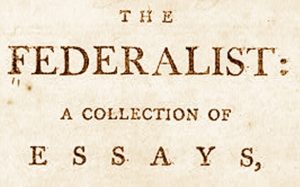 “Litigation about litigation,” usually in the form of a federal suit to enjoin or otherwise overcome a state-court case, can involve complicated federalism concepts such as the Rooker-Feldman doctrine or Younger abstention. The Fifth Circuit reiterated an even more basic principle in Machetta v. Moren, in which an unhappy party to a state court child custody case sought to assert civil rights claims against the judges: “The district court [correctly] dismissed the case because no case or controversy exists between ‘a judge who adjudicates claims under a statute and a litigant who attacks the constitutionality of the statute.'” No. 17-20533 (June 4, 2018, unpublished).
“Litigation about litigation,” usually in the form of a federal suit to enjoin or otherwise overcome a state-court case, can involve complicated federalism concepts such as the Rooker-Feldman doctrine or Younger abstention. The Fifth Circuit reiterated an even more basic principle in Machetta v. Moren, in which an unhappy party to a state court child custody case sought to assert civil rights claims against the judges: “The district court [correctly] dismissed the case because no case or controversy exists between ‘a judge who adjudicates claims under a statute and a litigant who attacks the constitutionality of the statute.'” No. 17-20533 (June 4, 2018, unpublished).
 A useful reminder about contract litigation appears in a recent insurance coverage dispute: “Neither party argues that the Hartford policy is ambiguous. Rather, the parties dispute whether the policy unambiguously provides coverage—Axis’s contention—or unambiguously excludes coverage—Hartford’s contention.” Bennett v. Hartford Ins. Co., No. 17-30311 (May 18, 2018) (emphasis in original).
A useful reminder about contract litigation appears in a recent insurance coverage dispute: “Neither party argues that the Hartford policy is ambiguous. Rather, the parties dispute whether the policy unambiguously provides coverage—Axis’s contention—or unambiguously excludes coverage—Hartford’s contention.” Bennett v. Hartford Ins. Co., No. 17-30311 (May 18, 2018) (emphasis in original).
A vigorously-litigated line  of Texas authority, often in the context of employment relationships defined by multiple documents, addresses whether an arbitration agreement is an illusory promise and thus unenforceable. In Arnold v. Homeaway, Inc. the Fifth Circuit addressed whether such a challenge went to “validity” (and could thus be resolved by an arbitrator under a “gateway” arbitration provision), or to “formation,” and could not. Drawing an analogy to Mississippi’s “minutes role” about the required documentation for contracts with public entities, the Court concluded that the challenge went to validity. Nos. 17-50088 and 17-50102 (May 15, 2018).
of Texas authority, often in the context of employment relationships defined by multiple documents, addresses whether an arbitration agreement is an illusory promise and thus unenforceable. In Arnold v. Homeaway, Inc. the Fifth Circuit addressed whether such a challenge went to “validity” (and could thus be resolved by an arbitrator under a “gateway” arbitration provision), or to “formation,” and could not. Drawing an analogy to Mississippi’s “minutes role” about the required documentation for contracts with public entities, the Court concluded that the challenge went to validity. Nos. 17-50088 and 17-50102 (May 15, 2018).
 Flooded landowners in Houston alleged, inter alia, a violation of substantive due process from the effects of a “Reinvestment Zone” on drainage. Among other problems, that claim foundered on its merits under “rational basis” review: “Here, the government objectives were to improve its tax base and the general welfare. As stated by the plaintiffs in the complaint, the government projects enhanced roads and drainage, though in commercial areas in which the plaintiffs did not desire these improvements. The plaintiffs have also acknowledged in the complaint that ‘[t]he tax base has increased far above projections.’ It is ‘at least debatable’ that a rational relationship exists between the government projects and objectives.” Residents Against Flooding v. Reinvestment Zone No. 17, No. 17-20373 (May 22, 2018, unpublished).
Flooded landowners in Houston alleged, inter alia, a violation of substantive due process from the effects of a “Reinvestment Zone” on drainage. Among other problems, that claim foundered on its merits under “rational basis” review: “Here, the government objectives were to improve its tax base and the general welfare. As stated by the plaintiffs in the complaint, the government projects enhanced roads and drainage, though in commercial areas in which the plaintiffs did not desire these improvements. The plaintiffs have also acknowledged in the complaint that ‘[t]he tax base has increased far above projections.’ It is ‘at least debatable’ that a rational relationship exists between the government projects and objectives.” Residents Against Flooding v. Reinvestment Zone No. 17, No. 17-20373 (May 22, 2018, unpublished).
 “Federal law does not prevent a bona fide shareholder from exercising its right to vote against a bankruptcy petition just because it is also an unsecured creditor. Under these circumstances, the issue of corporate authority to file a bankruptcy petition is left to state law.” Accordingly, when (a) the debtor is a Delaware corporation, (b) governed by that state’s General Corporation Law, and (c) nothing in that law would nullify the sole preferred shareholder’s right to vote against the bankruptcy petition, that shareholder has the right to vote against – and thus prevent – the corporation’s filing of a voluntary bankruptcy petition. Franchise Services. v. U.S. Trustee, No. 18-60093 (May 22, 2018).
“Federal law does not prevent a bona fide shareholder from exercising its right to vote against a bankruptcy petition just because it is also an unsecured creditor. Under these circumstances, the issue of corporate authority to file a bankruptcy petition is left to state law.” Accordingly, when (a) the debtor is a Delaware corporation, (b) governed by that state’s General Corporation Law, and (c) nothing in that law would nullify the sole preferred shareholder’s right to vote against the bankruptcy petition, that shareholder has the right to vote against – and thus prevent – the corporation’s filing of a voluntary bankruptcy petition. Franchise Services. v. U.S. Trustee, No. 18-60093 (May 22, 2018).
 Before a lender may accelerate a debt (and later foreclose), Texas law requires that the lender send (1) notice of intent to accelerate, followed by (2) notice of acceleration. While “Texas courts have not squarely confronted whether a borrower is entitled to a new round of notice when a borrower re-accelerates following an earlier rescission,” the Fifth Circuit concluded “that the Texas Supreme Court would require such notice . . . Abandonment of acceleration ‘restor[es] the contract to its original condition.’ The Texas Supreme Court would likely conclude that Wilmington Trust acted ‘inconsistently’ by rescinding acceleration and then re-accelerating without notice.” Wilmington Trust v. Rob, No. 17-50115 (May 21, 2018).
Before a lender may accelerate a debt (and later foreclose), Texas law requires that the lender send (1) notice of intent to accelerate, followed by (2) notice of acceleration. While “Texas courts have not squarely confronted whether a borrower is entitled to a new round of notice when a borrower re-accelerates following an earlier rescission,” the Fifth Circuit concluded “that the Texas Supreme Court would require such notice . . . Abandonment of acceleration ‘restor[es] the contract to its original condition.’ The Texas Supreme Court would likely conclude that Wilmington Trust acted ‘inconsistently’ by rescinding acceleration and then re-accelerating without notice.” Wilmington Trust v. Rob, No. 17-50115 (May 21, 2018).

 A Texas restaurateur took steps to open a seafood restaurant called The Krusty Krab. Those plans met choppy seas when Viacom, owner of the “SpongeBob SquarePants” TV show, sued to enforce its trademark rights as to that name (in the show, the undersea restaurant where SpongeBob works). In a textbook example of a Lanham Act claim (Texas common law being identical), the Fifth Circuit held:
A Texas restaurateur took steps to open a seafood restaurant called The Krusty Krab. Those plans met choppy seas when Viacom, owner of the “SpongeBob SquarePants” TV show, sued to enforce its trademark rights as to that name (in the show, the undersea restaurant where SpongeBob works). In a textbook example of a Lanham Act claim (Texas common law being identical), the Fifth Circuit held:
- As a threshold matter, specific elements of a TV show can receive trademark protection (citing Conan the Barbarian, the General Lee, and Kryponite, while noting the less-fortunate case law about the Star Trek franchise’s rights to the term “Romulan”)

- As to the first element, the mark is legally protectable, especially given the high profile and longevity of the SpongeBob show
- And as to the second element, despite some uncertainty as to its degree and nature, the likelihood of confusion was still high enough to justify trademark protection.
Viacom Int’l v. IJR Capital Investments, No. 17-20334 (May 22, 2018).
 Plaintiff argued, for purposes of a UCC Article 2 damages calculation, that a pollution monitoring system was worthless because it was not practically repairable. The Fifth Circuit disagreed – language in an earlier Mississippi case about whether a good “could not be repaired and was worthless” was not “the same as ‘the goods were worthless because they could not be repaired.’ While it is true that an unrepairable good may also be worthless, it does not follow that such a good is always worthless.” The Court also found, as to a limitation-of-remedy provision: “Here, Altech provided an exclusive repair or replace warranty. The warranty failed of its essential purpose when Altech—over the course of years—was continually unable to repair the [system].” Steel Dynamics v. Alltech Environment, No. 17-60298 (May 17, 2018, unpublished).
Plaintiff argued, for purposes of a UCC Article 2 damages calculation, that a pollution monitoring system was worthless because it was not practically repairable. The Fifth Circuit disagreed – language in an earlier Mississippi case about whether a good “could not be repaired and was worthless” was not “the same as ‘the goods were worthless because they could not be repaired.’ While it is true that an unrepairable good may also be worthless, it does not follow that such a good is always worthless.” The Court also found, as to a limitation-of-remedy provision: “Here, Altech provided an exclusive repair or replace warranty. The warranty failed of its essential purpose when Altech—over the course of years—was continually unable to repair the [system].” Steel Dynamics v. Alltech Environment, No. 17-60298 (May 17, 2018, unpublished).
 Carley and Brown, the plaintiffs in a case about overtime pay, drove a Ford F-350 in their work as “cementers” for oil wells. The threshold question was whether the truck was a “motor vehicle[] weighing10,000 pounds or less”; if it was, a federal statute would remove them from overtime requirements. While seemingly clear, the statute left open the important practical matters, requiring the Fifth Circuit to analyze it and conclude:
Carley and Brown, the plaintiffs in a case about overtime pay, drove a Ford F-350 in their work as “cementers” for oil wells. The threshold question was whether the truck was a “motor vehicle[] weighing10,000 pounds or less”; if it was, a federal statute would remove them from overtime requirements. While seemingly clear, the statute left open the important practical matters, requiring the Fifth Circuit to analyze it and conclude:
- What. Applying Skidmore deference to a Labor Department bulleting about the statute, “weight” specifically refers to the manufacturer’s specified “gross vehicle weight rating”;
- Who. So defined, the burden of proof about “weight” fell on Carley, as this statute “is . . . not an exemption . . . [but] rather, it codifies conditions under which” pay is required notwithstanding an exemption; and
- How. Echoing similar disputes about the relevance of property tax filings in valuation disputes, a document about vehicle registration, that stated the truck’s “empty weight” (7600 pounds) and “gross weight” (9600 pounds) did not overcome undisputed evidence that the GVWR was in fact 11,500 pounds.
Carley v. Crest Pumping Technologies, No. 17-50226 (May 16, 2018).
 Erie Railroad Co. v. Tompkins was decided in 1938. Sierra Equipment v. Lexington Ins. Co., an Erie case from the Fifth Circuit this week, turned on Texas authority that pre-dated Erie – specifically, a court of appeals opinion approved by the 1920s-era Texas Commission on Appeals (a representative picture of which is to the right). The specific question was whether the “equitable lien” doctrine allowed a lessee to sue on a lessor’s insurance policy absent a “loss payable” clause in the policy; consistent with the ruling of the Commission and most other cases on the point, the Court concluded that the lessee could not bring that suit. No. 17-10076 (May 15, 2018).
Erie Railroad Co. v. Tompkins was decided in 1938. Sierra Equipment v. Lexington Ins. Co., an Erie case from the Fifth Circuit this week, turned on Texas authority that pre-dated Erie – specifically, a court of appeals opinion approved by the 1920s-era Texas Commission on Appeals (a representative picture of which is to the right). The specific question was whether the “equitable lien” doctrine allowed a lessee to sue on a lessor’s insurance policy absent a “loss payable” clause in the policy; consistent with the ruling of the Commission and most other cases on the point, the Court concluded that the lessee could not bring that suit. No. 17-10076 (May 15, 2018).
 The triangular relationship between (1) an insurer, (2) an insured, and (3) the counsel chosen by the insurer to defend the insured in litigation can become an uneasy one. Grain Dealers Mut. Ins. Co. v. Cooley illustrates when it can become unstable. The insurer (Grain Dealers) provided the insureds (the Cooleys) a defense, “yet simultaneously disclaimed coverage if the Cooleys were ordered to clean the spill. In doing so, Grain Dealers failed to inform the Cooleys of their right to hire independent counsel. When the [relevant administrative agency] ultimately found the Cooleys liable for the spill, Grain Dealers then refused to defend or indemnify the Cooleys against a resulting claim.” That failure created the prejudice needed to estop Grain Dealers from denying coverage for liability: ” [T]he Cooleys presented evidence that Grain Dealers’ attorney never informed them of their right to challenge the [agency] decision. That right has since lapsed. The loss of the right to challenge the underlying administrative order with the benefit of non-conflicted counsel is clearly prejudicial.” No. 17-60307 (May 14, 2017, unpublished).
The triangular relationship between (1) an insurer, (2) an insured, and (3) the counsel chosen by the insurer to defend the insured in litigation can become an uneasy one. Grain Dealers Mut. Ins. Co. v. Cooley illustrates when it can become unstable. The insurer (Grain Dealers) provided the insureds (the Cooleys) a defense, “yet simultaneously disclaimed coverage if the Cooleys were ordered to clean the spill. In doing so, Grain Dealers failed to inform the Cooleys of their right to hire independent counsel. When the [relevant administrative agency] ultimately found the Cooleys liable for the spill, Grain Dealers then refused to defend or indemnify the Cooleys against a resulting claim.” That failure created the prejudice needed to estop Grain Dealers from denying coverage for liability: ” [T]he Cooleys presented evidence that Grain Dealers’ attorney never informed them of their right to challenge the [agency] decision. That right has since lapsed. The loss of the right to challenge the underlying administrative order with the benefit of non-conflicted counsel is clearly prejudicial.” No. 17-60307 (May 14, 2017, unpublished).
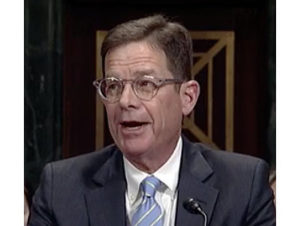 Congratulations and every best wish to new Fifth Circuit judge Kurt Engelhardt of New Orleans, formerly the Chief Judge of the Eastern District of Louisiana, who was confirmed yesterday by the Senate. Fifteen of the Court’s seventeen positions for full-time judges are now filled, with the nomination of Texas’s Andrew Oldham pending, and the seat formerly held by Judge Jolly still vacant.
Congratulations and every best wish to new Fifth Circuit judge Kurt Engelhardt of New Orleans, formerly the Chief Judge of the Eastern District of Louisiana, who was confirmed yesterday by the Senate. Fifteen of the Court’s seventeen positions for full-time judges are now filled, with the nomination of Texas’s Andrew Oldham pending, and the seat formerly held by Judge Jolly still vacant.
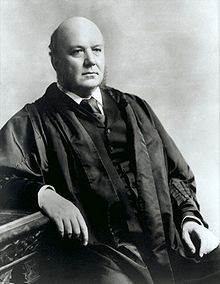 Among other (unsuccessful) challenges to the exclusion of summary judgment evidence, the appellant in Warren v. Fannie Mae invoked Mutual Life Ins. Co. of New York v. Hillmon, 145 U.S. 285 (1892), the case that led to the hearsay exception in Fed. R. Evid. 803(3) for “then-existing mental, emotional, or physical condition.” (The opinion was
Among other (unsuccessful) challenges to the exclusion of summary judgment evidence, the appellant in Warren v. Fannie Mae invoked Mutual Life Ins. Co. of New York v. Hillmon, 145 U.S. 285 (1892), the case that led to the hearsay exception in Fed. R. Evid. 803(3) for “then-existing mental, emotional, or physical condition.” (The opinion was  written by Justice Horace Gray, right). The citation did not succeed, however, as the Fifth Circuit observed: “Hillmon looked at a declarant’s words as evidence they later followed through with a plan. Warren is arguing that her post-conduct statements of intention imply that she actually told Peters about Finch. Therefore, Hillmon is inapposite.” No. 17-10567 (May 3, 2018, unpublished).
written by Justice Horace Gray, right). The citation did not succeed, however, as the Fifth Circuit observed: “Hillmon looked at a declarant’s words as evidence they later followed through with a plan. Warren is arguing that her post-conduct statements of intention imply that she actually told Peters about Finch. Therefore, Hillmon is inapposite.” No. 17-10567 (May 3, 2018, unpublished).
 The Fifth Circuit affirmed the denial of a motion to dismiss under the TCPA (the Texas “anti-SLAPP” statute), noting that the appellant’s arguments to the district court limited him to “only . . . the theory that the TCPA applies because the claims are based on, related to, or in response to a communication in or pertaining to a judicial proceeding” within the meaning of that statute. The appellant submitted a Rule 28(j) letter citing a recent Texas Supreme Court opinion that, inter alia, recommended a “holistic review of the pleadings” in the TCPA context. The Fifth Circuit did not agree, characterizing this “point, at its core, [a]s the Texas Supreme Court’s application of that court’s argument waiver principles,” and observing: “Because this court consistently applies its waiver precedent in diversity jurisdiction cases, we will do so here.” Diamond Consortium, Inc. v. Hammervold, No.17-40582 (May 3, 2018).
The Fifth Circuit affirmed the denial of a motion to dismiss under the TCPA (the Texas “anti-SLAPP” statute), noting that the appellant’s arguments to the district court limited him to “only . . . the theory that the TCPA applies because the claims are based on, related to, or in response to a communication in or pertaining to a judicial proceeding” within the meaning of that statute. The appellant submitted a Rule 28(j) letter citing a recent Texas Supreme Court opinion that, inter alia, recommended a “holistic review of the pleadings” in the TCPA context. The Fifth Circuit did not agree, characterizing this “point, at its core, [a]s the Texas Supreme Court’s application of that court’s argument waiver principles,” and observing: “Because this court consistently applies its waiver precedent in diversity jurisdiction cases, we will do so here.” Diamond Consortium, Inc. v. Hammervold, No.17-40582 (May 3, 2018).
 In Gulf Coast Workforce LLC v. Zurich American Ins. Co., the appellant’s “second point of error alleges that the district court awarded damages that no witness could explain or confirm. Zurich’s sole witness was Smith, who conducted the audit but did not work on billing matters. [Appellant] contends that, because Smith could not testify to the $53,161 premium, Zurich did not prove its damages.” The Fifth Circuit saw otherwise, identifying two trial exhibits that supported that figure and holding: “Therefore, the district court’s damages determination was not clearly erroneous.” No. 17-30379 (May 4, 2018, unpublished).
In Gulf Coast Workforce LLC v. Zurich American Ins. Co., the appellant’s “second point of error alleges that the district court awarded damages that no witness could explain or confirm. Zurich’s sole witness was Smith, who conducted the audit but did not work on billing matters. [Appellant] contends that, because Smith could not testify to the $53,161 premium, Zurich did not prove its damages.” The Fifth Circuit saw otherwise, identifying two trial exhibits that supported that figure and holding: “Therefore, the district court’s damages determination was not clearly erroneous.” No. 17-30379 (May 4, 2018, unpublished).
 Another practice point from In re DePuy Orthopaedics involved this portion of the plaintiffs’ closing argument, allowed over objection and without any accompanying instruction: “If you don’t consider the damages by the day, by the hour, by the minute, then you haven’t considered their damages. . . . “[P]lease, please, please, if they [the defendants] will pay their experts a thousand dollars an hour to come in here, when you do your math back there don’t tell these plaintiffs that a day in their life is worth less than an hour’s time of this fellow, or people they put on the stand.”
Another practice point from In re DePuy Orthopaedics involved this portion of the plaintiffs’ closing argument, allowed over objection and without any accompanying instruction: “If you don’t consider the damages by the day, by the hour, by the minute, then you haven’t considered their damages. . . . “[P]lease, please, please, if they [the defendants] will pay their experts a thousand dollars an hour to come in here, when you do your math back there don’t tell these plaintiffs that a day in their life is worth less than an hour’s time of this fellow, or people they put on the stand.”
The Fifth Circuit observed: “[U]unit-of-time arguments like this one are impermissible because they can lead the jury to ‘believ[e] that the determination of a proper award for . . . pain and suffering is a matter of precise and accurate determination and not, as it really is, a matter to be left to the jury’s determination, uninfluenced by arguments and charts.’ Lanier’s reference to expert fees was meant simultaneously to activate the jury’s passions and to anchor their minds to a salient, inflated, and irrelevant dollar figure. The inflammatory benchmark, bearing no rational relation to plaintiffs’ injuries, easily amplified the risk of ‘an excessive verdict.’ The argument was ‘design[ed] to mislead,’ and tainted the verdict that followed.” Nos. 16-11051 et seq. (April 25, 2018) (citations omitted).
 The panel majority in Benson v. Tyson Foods affirmed the denial of a request to speak to jurors after a trial, but observed: “In light of the First Amendment interests at stake here, which [Haeberle v. Texas Int’l Airlines, 739 F.2d 1019 (5th Cir. 1984)] did not appear to fully appreciate, district courts in the future would be wise to consider seriously whether there exists any genuine government interest in preventing attorneys from conversing with consenting jurors—and if so, whether that interest should be specifically articulated, in order to facilitate appellate review and fidelity to the Constitution.” A concurring opinion agreed with the affirmance but would not have relied on the Haeberle opinion, instead preferring an approach that took into account the interests of the movant as a factor – a “step . . . fatal to Benson’s argument,” as “her rights would be unaffected by a decision that the district court abused its discretion in not giving her counsel sufficient justification for denying their request.” No. 17-40161 (May 1, 2018).
The panel majority in Benson v. Tyson Foods affirmed the denial of a request to speak to jurors after a trial, but observed: “In light of the First Amendment interests at stake here, which [Haeberle v. Texas Int’l Airlines, 739 F.2d 1019 (5th Cir. 1984)] did not appear to fully appreciate, district courts in the future would be wise to consider seriously whether there exists any genuine government interest in preventing attorneys from conversing with consenting jurors—and if so, whether that interest should be specifically articulated, in order to facilitate appellate review and fidelity to the Constitution.” A concurring opinion agreed with the affirmance but would not have relied on the Haeberle opinion, instead preferring an approach that took into account the interests of the movant as a factor – a “step . . . fatal to Benson’s argument,” as “her rights would be unaffected by a decision that the district court abused its discretion in not giving her counsel sufficient justification for denying their request.” No. 17-40161 (May 1, 2018).
 In re DePuy Orthopaedics also warns against driving through much traffic through an “opened door” for the admission of evidence, noting:
In re DePuy Orthopaedics also warns against driving through much traffic through an “opened door” for the admission of evidence, noting:
The district court admitted several pieces of inflammatory character evidence against defendants—including claims of race discrimination and bribes to Saddam Hussein’s Iraqi “regime”—reasoning the defendants had “opened the door” by repeatedly presenting themselves as “wonderful people doing wonderful things.”
. . .
The district court allowed these repeated references to Hussein and the [Deferred Prosecution Agreement] because
defendants had supposedly “opened the door” by eliciting testi-mony on their corporate culture and marketing practices. This justification is strained, given that J&J owns more than 265 companies in 60 countries, and the Iraqi portion of the DPA addresses conduct by non-party subsidiaries. “[T]he Rules of Evidence do not simply evaporate when one party opens the door on an issue.”
Nos. 16-11051 et seq. (April 25, 2018) (citations omitted, emphasis added).
Among other holdings in In re DePuy Orthopaedics, the Fifth Circuit observed: “Suppose we did believe [counsel]’s various and independent explanations for why he could pay his expert before and after trial without ever compromising the witness’s non-retained status. An opinion countenancing his behavior would read like a blueprint on how to evade Rule 26 with impunity. Parties could pay experts ‘for their time’ before trial and later exchange compelling ‘pro bono’ testimony for sizable, post-trial ‘thank you’ checks.” No. 16-11051 et seq. (April 25, 2018) (emphasis in original).
 At a recent energy law seminar for the University of Texas, My colleagues Michael Hurst, Jonathan Childers, and Jervonne Newsome presented this excellent paper on the important and recurring topic of maintaining attorney-client privilege in communications involving in-house counsel – a constant challenge given the many hats worn by legal counsel in the modern business environment.
At a recent energy law seminar for the University of Texas, My colleagues Michael Hurst, Jonathan Childers, and Jervonne Newsome presented this excellent paper on the important and recurring topic of maintaining attorney-client privilege in communications involving in-house counsel – a constant challenge given the many hats worn by legal counsel in the modern business environment.
 The Senate has confirmed Louisiana’s Kyle Duncan to a New Orleans-based seat on the Fifth Circuit, bringing the Court one step closer to a long-awaited full roster of active-duty judges. Every best wish to Judge Duncan.
The Senate has confirmed Louisiana’s Kyle Duncan to a New Orleans-based seat on the Fifth Circuit, bringing the Court one step closer to a long-awaited full roster of active-duty judges. Every best wish to Judge Duncan.
 A lawyer sought to appeal a sanctions order; the Fifth Circuit found that it lacked appellate jurisdiction:
A lawyer sought to appeal a sanctions order; the Fifth Circuit found that it lacked appellate jurisdiction:
- The Court did not accept the district court’s certification under Fed. R. Civ. P. 54(b), as “the claim for relief is the wrongful death and survival cause of action brought by [Plaintiff] . . . [t]he Rule 11 sanctions and referral to the disciplinary committee with findings of . . . misconduct are not claims for relief in this suit”;
- The district court’s Rule 54 order did not contain a certification about “a legal issue that satisfies the substantive requirements of § 1292(b),” and thus could not be treated as an appealable interlocutory order;
- The sanctions ruling was not a “collateral order,” as it is “reviewable after the district court makes its determinations of liability on the merits . . . .”; and
- A potentially-viable doctrine about the appeal of sanctions orders, combined with an attorney’s withdrawal, did not apply because the relevant counsel remained in the case
Nogess v. Poydras Center LLC, No. 17-30449 (April 3, 2018).
Donald Rumsfel d unforgettably spoke about known unknowns. The Fifth Circuit engaged that general concept in Bartolowits v. Wells Fargo, in which the plaintiff claimed that a lender “misrepresented the amount [plaintiff] owed and its security interest in his property to a state court in seeking a foreclosure order.” But on the issue of “whether Wells Fargo committed fraud by claiming the right to foreclose on unsecured property,” the Court found that he could not have justifiably relied on this statement “because he knew that Wells Fargo lacked a security interest in some of the property it sought to foreclose upon” (indeed, at the time, the plaintiff denied Wells’s allegations and notified Wells of the error). In sum: “There is no justifiable reliance when the misrepresentations contradict a fact known by the plaintiff.” No. 17-10434 (April 4, 2018, unpublished).
d unforgettably spoke about known unknowns. The Fifth Circuit engaged that general concept in Bartolowits v. Wells Fargo, in which the plaintiff claimed that a lender “misrepresented the amount [plaintiff] owed and its security interest in his property to a state court in seeking a foreclosure order.” But on the issue of “whether Wells Fargo committed fraud by claiming the right to foreclose on unsecured property,” the Court found that he could not have justifiably relied on this statement “because he knew that Wells Fargo lacked a security interest in some of the property it sought to foreclose upon” (indeed, at the time, the plaintiff denied Wells’s allegations and notified Wells of the error). In sum: “There is no justifiable reliance when the misrepresentations contradict a fact known by the plaintiff.” No. 17-10434 (April 4, 2018, unpublished).
 Making a not-so-subtle remark about the requirements for a successful en banc petition, the Fifth Circuit has amended local rule 35.5 to say: “35.5 Length. See Fed. R. App. P. 35(b)(2). The statement required by Fed. R. App. P. 35(b)(1) is included in the limit and is not a “certificate[ ] of counsel” that is excluded by Fed. R. App P. 32(f).” In other words, the certificate of counsel about the specific cases inconsistent with the panel opinion counts against the length limit.
Making a not-so-subtle remark about the requirements for a successful en banc petition, the Fifth Circuit has amended local rule 35.5 to say: “35.5 Length. See Fed. R. App. P. 35(b)(2). The statement required by Fed. R. App. P. 35(b)(1) is included in the limit and is not a “certificate[ ] of counsel” that is excluded by Fed. R. App P. 32(f).” In other words, the certificate of counsel about the specific cases inconsistent with the panel opinion counts against the length limit.
 Nester v. Textron, Inc. affirmed a judgment for the plaintiff in a products liability case, arising from a gruesome accident involving a golf-cart like utility vehicle. In reviewing challenges to the jury charge, theFifth Circuit discussed in detail two important issues:
Nester v. Textron, Inc. affirmed a judgment for the plaintiff in a products liability case, arising from a gruesome accident involving a golf-cart like utility vehicle. In reviewing challenges to the jury charge, theFifth Circuit discussed in detail two important issues:
- PJC Power. A state’s approved pattern jury instructions are presumptively correct, especially when the record shows a lack of harm: “Federal judges often face the workaday dilemma of how much state law to consolidate expressly into the jury charge. . . . The list of conceivable additions goes on. But, as our prior cases indiate, a commonly administered PJC is often an entirely sensible place to draw the line. . . . At the end of the day, Textron asks us to hold that the district court erred by
 refusing to deviate from a standard Texas instruction. That definition permitted Textron to make its arguments about various tradeoffs to the jury (it did so) and gave those jurors a means to find in Textron’s favor (they balked).”
refusing to deviate from a standard Texas instruction. That definition permitted Textron to make its arguments about various tradeoffs to the jury (it did so) and gave those jurors a means to find in Textron’s favor (they balked).” - Casteel, federal-style. After a thorough (and infrequently-seen) summary of how federal law has developed on the “Casteel problem” of commingled liability theories, the Court concluded: “We will not reverse a verdict simply because the jury might have decided on a ground that was supported by insufficient evidence.” (applying, inter alia, Griffin v. United States, 502 U.S. 46 (1991)).
No. 16-5115 (April 18, 2018).
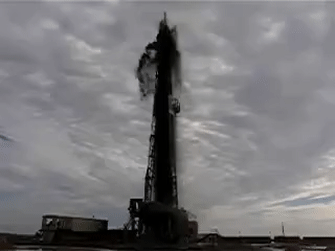 Under Louisiana law, while “fugitive minerals” cannot be conveyed, “this principle by no means forbids a landowner or lessee from conveying pre-extraction mineral interests”;
Under Louisiana law, while “fugitive minerals” cannot be conveyed, “this principle by no means forbids a landowner or lessee from conveying pre-extraction mineral interests”;- An “overriding royalty interest” is a property interest, not “a mere interest in proceeds” from production; and
- The “safe harbor” provision in the Louisiana Oil Well Lien Act protected a party’s liens on a debtor’s overriding royalty interests – while that statute “may not be a model of clarity,” its reference to “hydrocarbons” includes such interests, when viewed in the complete context of the Louisiana property statutes.
OHA Investment Corp. v. Schlumberger Tech. Corp., No. 17-20224 (April 17, 2018).
 Comcast loaned $100 million to a sports television network, secured by a lien on substantially all the network’s assets. When the network had financial problems, Comcast entities placed it into an involuntary Chapter 11 proceeding. The Fifth Circuit reversed on, inter alia, a subtle but very significant point – at what point in time should unpaid media fees be valued, to credit against the potential value to Comcast of a valuable agreement? The Court concluded that “a court is not required to use either the petition date or the effective date,” but should rather “follow a flexible approach to valuation timing that allows the bankruptcy court to take into account the development of the proceedings, as the value of the collateral may vary dramatically based on its proposed use under any given plan.” Houston SportsNet Finance LLC v. Houston Astros LLC, No. 15-20497 (March 29, 2018).
Comcast loaned $100 million to a sports television network, secured by a lien on substantially all the network’s assets. When the network had financial problems, Comcast entities placed it into an involuntary Chapter 11 proceeding. The Fifth Circuit reversed on, inter alia, a subtle but very significant point – at what point in time should unpaid media fees be valued, to credit against the potential value to Comcast of a valuable agreement? The Court concluded that “a court is not required to use either the petition date or the effective date,” but should rather “follow a flexible approach to valuation timing that allows the bankruptcy court to take into account the development of the proceedings, as the value of the collateral may vary dramatically based on its proposed use under any given plan.” Houston SportsNet Finance LLC v. Houston Astros LLC, No. 15-20497 (March 29, 2018).
 In Alice in Wonderland, the Mad Hatter remarked: “If I had a world of my own . . . Nothing would be what it is, because everything would be what it isn’t. And contrary wise, what is, it wouldn’t be. And what it wouldn’t be, it would. You see?” In that spirit, under 28 U.S.C. § 1447(d), a remand order is unreviewable on appeal if issued under one of the grounds in § 1447(c) – either a lack of subject matter jurisdiction, or the plaintiff moves ” to remand the case on the basis of any defect other than lack of subject matter jurisdiction . . . within 30 days after the filing of the notice of removal.” In Exxon Mobil Corp. v. Starr Indemnity, the plaintiff argued that the district court erred by remanding based on subject matter jurisdiction, when the issue before it was properly characterized as a late-raised procedural matter. The Fifth Circuit agreed, but held: “[Defendants], however, cannot evade the reviewability bar of § 1447(d) by establishing this defect. . . . . Indeed, each passage from the district court’s order to which the Insurers point as a clear and affirmative statement of a non-§ 1447(c) ground in fact expressly invokes that court’s perceived lack of subject matter jurisdiction. This belief, however erroneous, ‘sufficiently cloaks the remand order in the § 1447(c) absolute immunity from review’ and ends the inquiry.” No. 16-20821 (March 26, 2018, unpublished).
In Alice in Wonderland, the Mad Hatter remarked: “If I had a world of my own . . . Nothing would be what it is, because everything would be what it isn’t. And contrary wise, what is, it wouldn’t be. And what it wouldn’t be, it would. You see?” In that spirit, under 28 U.S.C. § 1447(d), a remand order is unreviewable on appeal if issued under one of the grounds in § 1447(c) – either a lack of subject matter jurisdiction, or the plaintiff moves ” to remand the case on the basis of any defect other than lack of subject matter jurisdiction . . . within 30 days after the filing of the notice of removal.” In Exxon Mobil Corp. v. Starr Indemnity, the plaintiff argued that the district court erred by remanding based on subject matter jurisdiction, when the issue before it was properly characterized as a late-raised procedural matter. The Fifth Circuit agreed, but held: “[Defendants], however, cannot evade the reviewability bar of § 1447(d) by establishing this defect. . . . . Indeed, each passage from the district court’s order to which the Insurers point as a clear and affirmative statement of a non-§ 1447(c) ground in fact expressly invokes that court’s perceived lack of subject matter jurisdiction. This belief, however erroneous, ‘sufficiently cloaks the remand order in the § 1447(c) absolute immunity from review’ and ends the inquiry.” No. 16-20821 (March 26, 2018, unpublished).
 A photographer sued a business for using his copyrighted pictures. The defendant assert its licensing rights as a defense; specifically, as a sublicensee of the industry group that obtained a license from the photographer. The Fifth Circuit observed: “The right to bring a copyright infringement action comes from federal copyright law,” which is “a separate question from whether [the defendant] can prove (under state law)
A photographer sued a business for using his copyrighted pictures. The defendant assert its licensing rights as a defense; specifically, as a sublicensee of the industry group that obtained a license from the photographer. The Fifth Circuit observed: “The right to bring a copyright infringement action comes from federal copyright law,” which is “a separate question from whether [the defendant] can prove (under state law)  that it has a meritorious license defense. Based on that observation, the Court concluded that the district court had incorrectly conflated the plaintiff’s right to sue on the license under state law with its standing to raise copyright claims under federal law, and reversed a summary judgment for the defendant. As to the scope of the sublicense, the Court found a triable fact issue presented by an affiant’s assertion about the duration of that license, which was not completely supported by the dates on the documents submitted with that affidavit. Stross v. Redfin Corp., No. 17-50046 (April 9, 2018) (While issued per curiam, certain turns of phrase in the opinion suggest the handiwork of newly-arrived Judge Willett, who was on the panel.)
that it has a meritorious license defense. Based on that observation, the Court concluded that the district court had incorrectly conflated the plaintiff’s right to sue on the license under state law with its standing to raise copyright claims under federal law, and reversed a summary judgment for the defendant. As to the scope of the sublicense, the Court found a triable fact issue presented by an affiant’s assertion about the duration of that license, which was not completely supported by the dates on the documents submitted with that affidavit. Stross v. Redfin Corp., No. 17-50046 (April 9, 2018) (While issued per curiam, certain turns of phrase in the opinion suggest the handiwork of newly-arrived Judge Willett, who was on the panel.)
 Many years, ago, “the Supreme Court viewed the fashioning of statutory remedies as within the property judicial rule [u]nder the now-abandoned maxim that ‘a statutory right implies the existence of all necessary and appropriate remedies.'” But that view has changed, and now, “the judicial task is to interpret the statute Congress has passed.” Alexander v. Sandoval, 532 U.S. 275 (2001). Proceeding from that starting point, after a review of the text and structure of the Air Carrier Access Act of 1986, the Court agreed that the Act did not create a private right of action, and it recognized that earlier Circuit authority on the issue had been essentially overruled by the analytical framework in Sandoval. Stokes v. Southwest Airlines, No. 17-10760 (April 5, 2018).
Many years, ago, “the Supreme Court viewed the fashioning of statutory remedies as within the property judicial rule [u]nder the now-abandoned maxim that ‘a statutory right implies the existence of all necessary and appropriate remedies.'” But that view has changed, and now, “the judicial task is to interpret the statute Congress has passed.” Alexander v. Sandoval, 532 U.S. 275 (2001). Proceeding from that starting point, after a review of the text and structure of the Air Carrier Access Act of 1986, the Court agreed that the Act did not create a private right of action, and it recognized that earlier Circuit authority on the issue had been essentially overruled by the analytical framework in Sandoval. Stokes v. Southwest Airlines, No. 17-10760 (April 5, 2018).
 In Stevens v. Belhaven University, the Fifth Circuit described a set of findings that justified a $500 sanctions award on a client and $100 on a lawyer (adding numbers and headings for ease of reference):
In Stevens v. Belhaven University, the Fifth Circuit described a set of findings that justified a $500 sanctions award on a client and $100 on a lawyer (adding numbers and headings for ease of reference):
(1. Preservation letter) The court explained that counsel had received a letter demanding him to “preserve and sequester” the phone.
(2. Failure to preserve) The defendant “was therefore sur-prised to learn . . . that the phone had broken and was no longer in [plaintiff’s] possession [but] had been taken . . . to a local AT&T store [where] she pur-chased a new phone.”
(3. Lack of explanation) “In her deposition, [plaintiff] could not explain how some of the text messages were deleted from her phone before they were shared with the EEOC.”
(4. Actual relevance of material at issue.) “When [she] did search her iCloud, moreover―. . . she identified new, material, and important evidence.
(5. In addition to (3), inconsistent explanation.) That . . . directly contradicts [her] ear-lier sworn statement that she had produced everything to [the defendant].”
No. 17-60652 (April 2, 2018, unpublished).
 In In re Drummond, the Fifth Circuit granted a writ of mandamus to require a trial court ruling on two long-dormant motions. It reasoned: “‘A writ of mandamus may issue only if (1) the petitioner has “no other adequate means” to attain the desired relief; (2) the petitioner has demonstrated a right to the issuance of a writ that is “clear and indisputable;” and (3) the issuing court, in the exercise of its discretion, is satisfied that the writ is “appropriate under the circumstances.”‘ In this case, all three requirements are easily met. This case has been pending on the district court’s docket for over nine years. Moreover, the two motions identified in the petition have been pending for approximately four years. We recognize that this is a complex matter and district court judges have broad discretion in managing their dockets. ‘However, discretion has its limits.'” No. 17-20618 (March 23, 2018) (citations omitted). (By way of comparison, I was involved in a similar mandamus petition in the El Paso Court of Appeals, In re: Mesa Petroleum Partners, No. 08-17-00095-CV (Nov. 9, 2017)).
In In re Drummond, the Fifth Circuit granted a writ of mandamus to require a trial court ruling on two long-dormant motions. It reasoned: “‘A writ of mandamus may issue only if (1) the petitioner has “no other adequate means” to attain the desired relief; (2) the petitioner has demonstrated a right to the issuance of a writ that is “clear and indisputable;” and (3) the issuing court, in the exercise of its discretion, is satisfied that the writ is “appropriate under the circumstances.”‘ In this case, all three requirements are easily met. This case has been pending on the district court’s docket for over nine years. Moreover, the two motions identified in the petition have been pending for approximately four years. We recognize that this is a complex matter and district court judges have broad discretion in managing their dockets. ‘However, discretion has its limits.'” No. 17-20618 (March 23, 2018) (citations omitted). (By way of comparison, I was involved in a similar mandamus petition in the El Paso Court of Appeals, In re: Mesa Petroleum Partners, No. 08-17-00095-CV (Nov. 9, 2017)).
 In 16 Front Street v. Mississippi Silicon, the Fifth Circuit addressed a fundamental issue about federal question subject matter jurisdiction, with surprisingly little guidance in the current case law. A plaintiff sued in federal court under the Clean Air Act; in response to the trial judge’s concerns about subject matter jurisdiction, the plaintiff amended to add a new defendant and invoke another provision of that Act. The Fifth Circuit concluded that while this amendment could be problematic in a removed case under the “time-of-filing” rule, it did not present that problem when the case was initially filed in federal court and did not implicate the removal statute. The Court’s analysis involves two important Supreme Court – Mollan v. Torrance, 22 U.S. 537 (1824), in which Chief Justice Marshall first stated the “time-of-filing” rule (albeit, in a diversity case), and Caterpillar, Inc. v. Lewis, 519 U.S. 61 (19960, a recent treatment of a “cure” of a problem with subject matter jurisdiction. No. 16-60050 (March 30, 2018).
In 16 Front Street v. Mississippi Silicon, the Fifth Circuit addressed a fundamental issue about federal question subject matter jurisdiction, with surprisingly little guidance in the current case law. A plaintiff sued in federal court under the Clean Air Act; in response to the trial judge’s concerns about subject matter jurisdiction, the plaintiff amended to add a new defendant and invoke another provision of that Act. The Fifth Circuit concluded that while this amendment could be problematic in a removed case under the “time-of-filing” rule, it did not present that problem when the case was initially filed in federal court and did not implicate the removal statute. The Court’s analysis involves two important Supreme Court – Mollan v. Torrance, 22 U.S. 537 (1824), in which Chief Justice Marshall first stated the “time-of-filing” rule (albeit, in a diversity case), and Caterpillar, Inc. v. Lewis, 519 U.S. 61 (19960, a recent treatment of a “cure” of a problem with subject matter jurisdiction. No. 16-60050 (March 30, 2018).
The Fifth Circuit recently denied en banc rehearing in the high-profile qualified immunity case of Jauch v. Choctaw County, where the panel denied immunity to a sheriff who had been sued over a lengthy period of pretrial detention. From one perspective, a chart of the 9-6 vote (below) shows a vote along “party lines,” with all of the votes for rehearing coming from judges appointed by Republican presidents (including both of President Trump’s recent appointments), and with all active judges appointed by Democratic presidents voting against rehearing. From another perspective, the vote shows that the group of active judges appointed by Republican presidents is hardly a monolithic bloc, as it divided roughly in half on the vote.
 Midwest Feeders, a cattle feedlot business, sued The Bank of Franklin under Mississippi law, alleging that the Bank tolerated a customer’s fraudulent activities that resulted in considerable financial harm. The Fifth Circuit affirmed summary judgment for the bank. Among other rulings, the Court addressed whether Mississippi law imposed a duty to avoid negligence on a bank, as against a non-customer. Finding no guidance from that state’s supreme court, and inconclusive opinions from other Mississipi courts, the Court surveyed authority nationally and noted “the merits of [the] line of cases” that potentially allowed such liability if the bank knoows of a fiduciary relationship between the customer and the non-customer. Unfortunately for the plaintiff, however, the Court held that “we cannot use our Erie guess to impose upon Mississippi a new regime of liability for its banks.” Midwest Feeders, Inc. v. Bank of Franklin, No. 17-60092 (March 27, 2018).
Midwest Feeders, a cattle feedlot business, sued The Bank of Franklin under Mississippi law, alleging that the Bank tolerated a customer’s fraudulent activities that resulted in considerable financial harm. The Fifth Circuit affirmed summary judgment for the bank. Among other rulings, the Court addressed whether Mississippi law imposed a duty to avoid negligence on a bank, as against a non-customer. Finding no guidance from that state’s supreme court, and inconclusive opinions from other Mississipi courts, the Court surveyed authority nationally and noted “the merits of [the] line of cases” that potentially allowed such liability if the bank knoows of a fiduciary relationship between the customer and the non-customer. Unfortunately for the plaintiff, however, the Court held that “we cannot use our Erie guess to impose upon Mississippi a new regime of liability for its banks.” Midwest Feeders, Inc. v. Bank of Franklin, No. 17-60092 (March 27, 2018).
 In Legendre v. Huntington Ingalls, the Fifth Circuit found no “causal nexus” to support removal jurisdiction under the “federal officer” statute. The plaintiff alleged exposure to asbestos fibers brought home on her father’s clothing; he worked in a shipyard in the 1940s building tugs for the U.S. government. Under pre-2011 Fifth Circuit authority, that claim had a problem because the shipyard’s safety practices were not restricted by the government. The statute, however, was amended in 2011 “to allow the removal of a state suit ‘for OR RELATING TO any act under color of such [federa] office.'” Acknowledging that “significant argument,” and noting that other circuits have read the 2011 amendments to eliminate the “causal nexus” requirement, the Court affirmed remand – while plainly inviting a petition for en banc consideration of the issue.No. 17-30371 (March 16, 2018).
In Legendre v. Huntington Ingalls, the Fifth Circuit found no “causal nexus” to support removal jurisdiction under the “federal officer” statute. The plaintiff alleged exposure to asbestos fibers brought home on her father’s clothing; he worked in a shipyard in the 1940s building tugs for the U.S. government. Under pre-2011 Fifth Circuit authority, that claim had a problem because the shipyard’s safety practices were not restricted by the government. The statute, however, was amended in 2011 “to allow the removal of a state suit ‘for OR RELATING TO any act under color of such [federa] office.'” Acknowledging that “significant argument,” and noting that other circuits have read the 2011 amendments to eliminate the “causal nexus” requirement, the Court affirmed remand – while plainly inviting a petition for en banc consideration of the issue.No. 17-30371 (March 16, 2018).
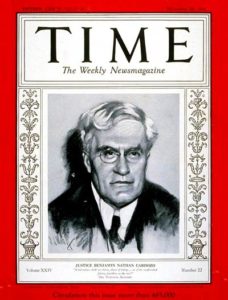 An unusual but intriguing coverage dispute arose after the insured’s death as a result of a bite from a mosquito infected with the dangerous West Nile virus. The Fifth Circuit reversed summary judgment for the carrier, observing in its analysis of the policy’s coverage for “accidental injury” –
An unusual but intriguing coverage dispute arose after the insured’s death as a result of a bite from a mosquito infected with the dangerous West Nile virus. The Fifth Circuit reversed summary judgment for the carrier, observing in its analysis of the policy’s coverage for “accidental injury” –
- The importance of defining the specific injury – “Instead of focusing on Melton’s bite from a WNV-infected Culex mosquito, Minnesota Life argues that a mosquito bite generally is not unexpected and unforeseen in Texas. But a bite by a generic mosquito is not the accidental injury Gloria pleaded in her complaint; instead, she says it is the bite by a WNV-infected Culex mosquito that triggers coverage. Without guidance from the policy as to how broadly or narrowly an ;’accidental bodily injury’ is to be defined, we take the facts of the alleged accidental injury as
Gloria contends.” - And as to whether an injury as “accidental” – the Court quoted then-Judge Cardozo’s analysis from a 1925 opinion about inhalation of an airborne pathogen: “Germs may indeed be inhaled through the nose or mouth, or absorbed into the system through normal channels of entry. In such cases their inroads will seldom, if ever, be assignable to a determinate or single act, identified in space or time. For this as well as for the reason that the absorption is incidental to a bodily process both natural and normal, their action presents itself to the mind as a disease and not an accident.”
- But the Court distinguished the situation addressed by Judge Cardozo: “Here, however, there was a determinate, single act—the bite—that is not incidental to a bodily process. The mosquito, an external “physical” force, affirmatively acted to cause Melton harm and produce an unforeseen result. We find that inhaling a community-spread pathogen and being bitten by a mosquito can be thinly sliced so as to be distinguishable.”
Wells v. Minnesota Life, No. 16-20831 (March 22, 2018).
 The plaintiff won a multi-million dollar lawsuit about the sale of Akaushi cattle (example, to right), a specialty breed from Japan valued for its exceptional flavor, and made difficult to acquire as a result of export restrictions on what Japan regards “as a national treasure.” The Fifth Circuit affirmed in large part, reaching these holdings of broader interest:
The plaintiff won a multi-million dollar lawsuit about the sale of Akaushi cattle (example, to right), a specialty breed from Japan valued for its exceptional flavor, and made difficult to acquire as a result of export restrictions on what Japan regards “as a national treasure.” The Fifth Circuit affirmed in large part, reaching these holdings of broader interest:
- The jury found that the defendant “committed fraud by misrepresenting ‘that it intended to sell to [Plaintiff] 30% of its calves and that it would comply with the restrictions in the 2010’ Full-Blood Contracts” that set a number of specification s about registration, marketing, etc. Because “Texas courts have upheld fraud claims based on representations with less specificity,” the defendant’s sufficiency challenge was rejected.
- Despite testimony about millions of dollars in potential harm, the actual judgment awarded equitable relief. Because “the district court’s equitable remedy protected [Plaintiff] from actual harm[, its] harm is limited to presumed harm, and that is insufficient under Texas law to justify an award of punitive damages” in addition to the equitable relief.

- In affirming a calculation made in connection with the equitable remedies, the Court reminded of “the purpose of the law of disgorgement[,] under which ‘a disgorgement order might be for an amount more or less than that required to make the victims whole.'”
Bear Ranch LLC v. Heartland Beef, Inc., No. 16-41261 (March 20, 2018).
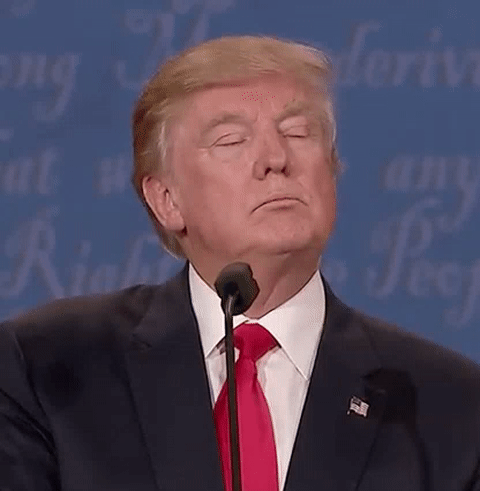 The parties’ licensing agreement referred to “Iced tea, Ready-to-Drink (RTD) Teas, RTD Beverages.” One side argued that the term “Ready-to-Drink Beverages” included “all beverages that are as-is ready for consumption including energy shots and vitamin water”; the other contended that, “as tea (i.e., the main product under the Agreement) is part of a category of beverages that generally require an additional step of preparation prior to consumption, the term may only cover only the beverages within this category.” Drinking deeply from principles of contract interpretation, the Fifth Circuit found the contract ambiguous because both positions were reasonable. Turning then to the testimony of the witnesses involved in drafting the contract, the Court found undisputed testimony in favor of the narrower view, and gave no weight to testimony from witnesses who had opinions but “did not participate in the negotiations.” The Court also avoided a dispute about who drafted the term, noting that “it is not necessary to determine who the drafter was because the term is only construed against the drafter ‘[I]n case of doubt that cannot be otherwise resolved.” Chinook USA v. Duck Commander, Inc., No. 17-30596 (March 15, 2018, unpublished).
The parties’ licensing agreement referred to “Iced tea, Ready-to-Drink (RTD) Teas, RTD Beverages.” One side argued that the term “Ready-to-Drink Beverages” included “all beverages that are as-is ready for consumption including energy shots and vitamin water”; the other contended that, “as tea (i.e., the main product under the Agreement) is part of a category of beverages that generally require an additional step of preparation prior to consumption, the term may only cover only the beverages within this category.” Drinking deeply from principles of contract interpretation, the Fifth Circuit found the contract ambiguous because both positions were reasonable. Turning then to the testimony of the witnesses involved in drafting the contract, the Court found undisputed testimony in favor of the narrower view, and gave no weight to testimony from witnesses who had opinions but “did not participate in the negotiations.” The Court also avoided a dispute about who drafted the term, noting that “it is not necessary to determine who the drafter was because the term is only construed against the drafter ‘[I]n case of doubt that cannot be otherwise resolved.” Chinook USA v. Duck Commander, Inc., No. 17-30596 (March 15, 2018, unpublished).
 By a 2-1 opinion, in Chamber of Commerce v. U.S. Dep’t of Labor, the Fifth Circuit struck down the “Fiduclary Rule,” a regulation that significantly expanded regulation of investment advisors. The majority’s analysis focused primarily on the traditional definition of a “fiduciary” (a discussion of broad general interest to all business litigators), and the canon of interpretation that “provisions of a text should be interpreted in a way that renders them compatible, not contradictory.” The dissent focused on how, “[o]ver the last forty years, the retirement-investment market has experienced a dramatic shift toward individually controlled retirement plans and accounts.” Notably, footnote 14 of the majority opinion observes that “the Chevron doctrine has been questioned on substantial grounds, including that it represents an abdication of the judiciary’s’ duty under Article III ‘to say what the law is,'” quoting recent opinions my Justice Thomas and then-Judge Gorsuch. No. 17-10238 (March 15, 2018).
By a 2-1 opinion, in Chamber of Commerce v. U.S. Dep’t of Labor, the Fifth Circuit struck down the “Fiduclary Rule,” a regulation that significantly expanded regulation of investment advisors. The majority’s analysis focused primarily on the traditional definition of a “fiduciary” (a discussion of broad general interest to all business litigators), and the canon of interpretation that “provisions of a text should be interpreted in a way that renders them compatible, not contradictory.” The dissent focused on how, “[o]ver the last forty years, the retirement-investment market has experienced a dramatic shift toward individually controlled retirement plans and accounts.” Notably, footnote 14 of the majority opinion observes that “the Chevron doctrine has been questioned on substantial grounds, including that it represents an abdication of the judiciary’s’ duty under Article III ‘to say what the law is,'” quoting recent opinions my Justice Thomas and then-Judge Gorsuch. No. 17-10238 (March 15, 2018).
 Centerboard Securities sued Benefuel for not paying certain “success fees” on two transactions. Benefuel countered that the transactions were not “investments” within the meaning of their contract, as they included debt and equity aspects instead of solely equity. Tthe Fifth Circuit disagreed: “The term ‘investment’ is unambiguous and includes debt and equity. . . . Delaware courts have used the term ‘investment’ to refer to equity and debt.” Similarly, the phrase “current investor” in the contract could not be read to include a party’s subsidiaries or affiliates: “Delaware courts take the corporate form and corporate formalities very seriously. . . . and will disregard the corporate form only in the ‘exceptional case.'” Centerboard Securities LLC v. Benefuel Inc., No. 17-10344 (March 12, 2018) (citations omitted).
Centerboard Securities sued Benefuel for not paying certain “success fees” on two transactions. Benefuel countered that the transactions were not “investments” within the meaning of their contract, as they included debt and equity aspects instead of solely equity. Tthe Fifth Circuit disagreed: “The term ‘investment’ is unambiguous and includes debt and equity. . . . Delaware courts have used the term ‘investment’ to refer to equity and debt.” Similarly, the phrase “current investor” in the contract could not be read to include a party’s subsidiaries or affiliates: “Delaware courts take the corporate form and corporate formalities very seriously. . . . and will disregard the corporate form only in the ‘exceptional case.'” Centerboard Securities LLC v. Benefuel Inc., No. 17-10344 (March 12, 2018) (citations omitted).
 The plaintiff in Al Copeland Investments LLC v. First Specialty Ins. Corp. sued on an insurance policy about a claim for property damage to its business. It argued that this forum selection clause in the policy:
The plaintiff in Al Copeland Investments LLC v. First Specialty Ins. Corp. sued on an insurance policy about a claim for property damage to its business. It argued that this forum selection clause in the policy:
“The parties irrevocably submit to the exclusive jurisdiction of the Courts of the State of New York and to the extent permitted by law the parties expressly waive all rights to challenge or otherwise limit such jurisdiction.”
was trumped by this Louisiana statute:
“No insurance contract delivered or issued . . . in [Louisiana] . . . shall contain any condition, stipulation, or agreement . . . [d]epriving the courts of [Louisiana] of the jurisdiction of action against the insurer.”
The Fifth Circuit disagreed and affirmed dismissal based on forum non conveniens: “[The statute] prohibits provisions in an insurance contract that would deprive Louisiana courts of jurisdiction. ‘A forum-selection clause is a provision . . . that mandates a particular state, county, parish, or court as the proper venue in which the parties to an action must litigate . . . .’ As the district court recognized, venue and jurisdiction are ‘separate and distinct.'” No. 17-30557 (March 9, 2018) (emphasis in original).
 Because the Texas homestead exemption, like the Texas exemption for retirement accounts, applies at the time a Chapter 7 bankruptcy petition is filed, the Fifth Circuit rejected a trustee’s attempt to seize the proceeds from a sale of the debtor’s home. The Court concluded that a “snapshot” approach to the exemption, as it had previously used for retirement accounts, did not let the trustee reach the proceeds, concluding: “He is trying to transform the [proceeds rule] from one that extends the homestead exemption to some situations when the home is not owned on the filing date into one that limits the homestead exemption even when the debtor owns the home on the filing date.” Lowe v. DeBerry, No. 17-50315 (March 7, 2018).
Because the Texas homestead exemption, like the Texas exemption for retirement accounts, applies at the time a Chapter 7 bankruptcy petition is filed, the Fifth Circuit rejected a trustee’s attempt to seize the proceeds from a sale of the debtor’s home. The Court concluded that a “snapshot” approach to the exemption, as it had previously used for retirement accounts, did not let the trustee reach the proceeds, concluding: “He is trying to transform the [proceeds rule] from one that extends the homestead exemption to some situations when the home is not owned on the filing date into one that limits the homestead exemption even when the debtor owns the home on the filing date.” Lowe v. DeBerry, No. 17-50315 (March 7, 2018).
 A recent opinion in a real estate foreclosure dispute summarizes the current state of the law on some key principles:
A recent opinion in a real estate foreclosure dispute summarizes the current state of the law on some key principles:
- When a national bank is sued as trustee in such a case, its citizenship contrrols the analysis of diversity, not that of the investors in the trust (applying and distinguishing Americold Realty Trust v. ConAgra Foods, 136 S. Ct. 1012 (2016));
- Because “Texas follows the common-law maxim that the mortage follows the note,” the trustee was “entitled to foreclosre on the property as holder of the note even if the assignment of the Deed of Trust was void.oserves as trustee of a real estate investment trust”; and
- A fraud claim failed when the aggrieved party “did not allege that he initially intended to bid on the property before learning of a potential buyer and changed his position after speaking with U.S. Bank’s representatives.”
SGK Properties LLC v. US Bank, N.A., No. 17-20130 (Feb. 9, 2018).
 The Supreme Court has stayed further proceedings in Archer & Daniels Sales v. Henry Schein Inc., a dispute about the arbitrability of a substantial antitrust case about dental equipment. The application and response are an interesting window into this seldom-seen aspect of civil practice.
The Supreme Court has stayed further proceedings in Archer & Daniels Sales v. Henry Schein Inc., a dispute about the arbitrability of a substantial antitrust case about dental equipment. The application and response are an interesting window into this seldom-seen aspect of civil practice.
In a seemingly immortal case about the failure of Enron,  Plaintiffs sought to characterize several UBS business entities as one. The Fifth Circuit rejected this argument under the applicable Delaware test for a joint venture: “Plaintiffs fail to explain how the allegations identified in their brief on appeal support finding a joint venture under this test. None of the allegations allude to profit sharing, or loss sharing, right to control the purported joint venture.” (citations omitted). “Plaintiffs’ allegations—principally references to Defendants’ vague corporate platitudes about their integration as a firm—may logically support that Defendants shared a community of interest in their business activities, but this alone is insufficient to support joint venture liability.” Giancarlo v. UBS Fin. Servcs., No. 16-20663 (Feb. 26, 2018).
Plaintiffs sought to characterize several UBS business entities as one. The Fifth Circuit rejected this argument under the applicable Delaware test for a joint venture: “Plaintiffs fail to explain how the allegations identified in their brief on appeal support finding a joint venture under this test. None of the allegations allude to profit sharing, or loss sharing, right to control the purported joint venture.” (citations omitted). “Plaintiffs’ allegations—principally references to Defendants’ vague corporate platitudes about their integration as a firm—may logically support that Defendants shared a community of interest in their business activities, but this alone is insufficient to support joint venture liability.” Giancarlo v. UBS Fin. Servcs., No. 16-20663 (Feb. 26, 2018).
 Castrellon sought to enforce a loan modification agreement; the defendants asserted a mutual mistake about Castrellon’s ability to sign the agreement without also obtaining the agreement of her ex-husband. Noting that she could be left empty-handed otherwise, the Fifth Circuit found a fact issue on that defense: “[T]he mere fact that the agreement may ultimately leave [her] empty-handed does not compel the conclusion that there was a mutual mistake . . . . [N]onetheless, it does support an inference that the parties mistakenly believed they could modify the loan agreement without [him] – an inference that we are required to draw at this juncture.” Castrellon v. Ocwen Loan Servicing, No. 17-40193 (Feb. 21, 2018, unpublished).
Castrellon sought to enforce a loan modification agreement; the defendants asserted a mutual mistake about Castrellon’s ability to sign the agreement without also obtaining the agreement of her ex-husband. Noting that she could be left empty-handed otherwise, the Fifth Circuit found a fact issue on that defense: “[T]he mere fact that the agreement may ultimately leave [her] empty-handed does not compel the conclusion that there was a mutual mistake . . . . [N]onetheless, it does support an inference that the parties mistakenly believed they could modify the loan agreement without [him] – an inference that we are required to draw at this juncture.” Castrellon v. Ocwen Loan Servicing, No. 17-40193 (Feb. 21, 2018, unpublished).
 While the mortgage debtor was in default, a notice provision in the related deed of trust was an independent obligation, the breach of which could support a stand-alone action against the foreclosing party. “If performance of the terms of a deed of trust governing the parties’ rights and obligations in the event of default can always be excused by pointing to the debtor’s default under the terms off the note, the notice terms have no meaning.” That said, the Court noted that on remand, the claim would have to withstand attacks on thie measure of damage as well as causation. Williams v. Wells Fargo Bank, No. 16-20507 (Feb. 26, 2018).
While the mortgage debtor was in default, a notice provision in the related deed of trust was an independent obligation, the breach of which could support a stand-alone action against the foreclosing party. “If performance of the terms of a deed of trust governing the parties’ rights and obligations in the event of default can always be excused by pointing to the debtor’s default under the terms off the note, the notice terms have no meaning.” That said, the Court noted that on remand, the claim would have to withstand attacks on thie measure of damage as well as causation. Williams v. Wells Fargo Bank, No. 16-20507 (Feb. 26, 2018).
 Gotech, a Chinese company, “knowingly chose to ignore” a lawsuit filed against it by Nagravision in the Southern District of Texas, “and even the ensuing $100 million-plus default judgment” in favor of Nagravasion. After Nagravision began enforcement proceedings in Hong Kong, Gotech then sought relief from the judgment under Fed. R. Civ. P. 60(b)(4). The Fifth Circuit rejected challenges based on standing, federal question jurisdiction, and service of process, finding fundamental problems with each. As for personal jurisdiction based on Fed. R. Civ. P. 4(k)(2), which applies “where the defendant has contacts with the United States as a whole sufficient to satisfy due process concerns and the defendnat is not subject to jurisdiction in any particular state,” the Court acknowledged some disagreement about who has the burden of proof, especially in the Rule 60(b)(4) context, but found that Nagravision had met its initial burden and Gotech had not overcome it. Nagravision, S.A. v. GoTech bInt’l Tech. Ltd., No. 16-20817 (Feb. 7, 2018).
Gotech, a Chinese company, “knowingly chose to ignore” a lawsuit filed against it by Nagravision in the Southern District of Texas, “and even the ensuing $100 million-plus default judgment” in favor of Nagravasion. After Nagravision began enforcement proceedings in Hong Kong, Gotech then sought relief from the judgment under Fed. R. Civ. P. 60(b)(4). The Fifth Circuit rejected challenges based on standing, federal question jurisdiction, and service of process, finding fundamental problems with each. As for personal jurisdiction based on Fed. R. Civ. P. 4(k)(2), which applies “where the defendant has contacts with the United States as a whole sufficient to satisfy due process concerns and the defendnat is not subject to jurisdiction in any particular state,” the Court acknowledged some disagreement about who has the burden of proof, especially in the Rule 60(b)(4) context, but found that Nagravision had met its initial burden and Gotech had not overcome it. Nagravision, S.A. v. GoTech bInt’l Tech. Ltd., No. 16-20817 (Feb. 7, 2018).
 “[Kansas City] Southern [Railway] was caught between hundreds of thousands of tons of rock and a hard place.” Problems with the construction of a new rail line in South Texas resulted in a dispute about payment for 74,260 tons of “rail ballast” – crushed stone that forms the base for the train tracks. The railway won the resulting litigation against its contractor, and the Fifth Circuit rejected several rocks thrown at the damages model, observing:
“[Kansas City] Southern [Railway] was caught between hundreds of thousands of tons of rock and a hard place.” Problems with the construction of a new rail line in South Texas resulted in a dispute about payment for 74,260 tons of “rail ballast” – crushed stone that forms the base for the train tracks. The railway won the resulting litigation against its contractor, and the Fifth Circuit rejected several rocks thrown at the damages model, observing:
- Acknowledging that the payments made had to be reasonable, the Court reminded that “magic words” are not needed, and found that on this record: “Reasonableness can thus be demonstrated by the general market prices Southern was paying for these expenses before it had any knowledge that some excess ballast costs would be passed on to Balfour via litigation.
- Evidence of post-breach costs was appropriate, as the substantive damage calculation looks at the difference between “what Southern expected” and “the cost Southern ultimately had to pay (value received)”;
- Southern acted appropriately, and the defenses of waiver and quasi-estoppel did not apply: “It could have refused to ship additional ballast at Balfour’s request, but that would have necessitated stopping the project, finding a new contractor, and
resuming later, all of which likely would have cost substantially more than the
damages awarded here. Southern had a duty to mitigate as much as possible.
It did so by allowing Balfour to finish the project and then determining the
extent of damages.”
Concluding that the record was rock-solid, the Court affirmed. Balfour Beatty Rail v. Kansas City Southern Railway, No. 16-11645 (Feb. 15, 2018, unpublished).
 “Not all errors are correctable on mandamus. This one, however is.” In the case of In re: Itron, the Fifth Circuit granted mandamus relief as to a finding of an extensive waiver of attorney-client privilege, reasoning:
“Not all errors are correctable on mandamus. This one, however is.” In the case of In re: Itron, the Fifth Circuit granted mandamus relief as to a finding of an extensive waiver of attorney-client privilege, reasoning:
- Itron showed the “inadequacy of relief by other means” as to the erroneous disclosure of privileged documents, especially since it had “exhausted every other opportunity for interlocutory review of the magistrate judge”s order compellig production”;
- Itron established a clear abuse of discretion: “[T]he magistrate judge failed to apply Mississippi”s Jackson Medical test for waiver, and misapplied even the broad, erroneous waiver test Defendants urge instead. . . . [B]oth aspects of this error are obvious and purely legal in nature.”; and
- “[C]orrecting this error is a proper exercise of our discretion,” noting “the issue’s ‘importance beyond the immediate case'” in other disputes about privilege, as “more district courts could mistakenly find waiver whenever attorney-client communications would be relevant.”
A dissent said that a clear abuse of discretion had not been established. This opinion does not reflect any sea change in the Fifth Circuit’s willingness to grant mandamus relief, but it does show that even a court reluctant to grant such relief will do so in a compelling case (indeed, the panel majority opinion is written by Judge Higginson, who dissented from the panel opinion and subsequent denial of en banc review in In re: Radmax, 720 F.3d 285 (5th Cir. 2013).
 Three tugboats towed a barge; one of the tugboats served as the “lead” while the other two assisted. One of the assisting tugboats had an accident and sank. The question for the Fifth Circuit in Continental Insurance v. L&L Marine Transportation was whether the sunken boat was a “tow” of the lead boat, and thus came within the coverage of the insurance policy for the lead. (As distinct from a TOW missile, right.) Reviewing dictionaries and court precedent, the Court concluded that “tow” describes a situation where “some ship or boat is being provided extra motive power from another ship or boat by being pushed or pulled,” which was not the case here. The Court rejected an argument based on the maritime “dominant mind” doctrine – a concept derived from the duty of a lead boat in a flotilla to navigate resonably – as bearing only on potential tort liability and not the issue of interpreting the terms of this insurance policy. No. 17-30424 (Feb. 15, 2018).
Three tugboats towed a barge; one of the tugboats served as the “lead” while the other two assisted. One of the assisting tugboats had an accident and sank. The question for the Fifth Circuit in Continental Insurance v. L&L Marine Transportation was whether the sunken boat was a “tow” of the lead boat, and thus came within the coverage of the insurance policy for the lead. (As distinct from a TOW missile, right.) Reviewing dictionaries and court precedent, the Court concluded that “tow” describes a situation where “some ship or boat is being provided extra motive power from another ship or boat by being pushed or pulled,” which was not the case here. The Court rejected an argument based on the maritime “dominant mind” doctrine – a concept derived from the duty of a lead boat in a flotilla to navigate resonably – as bearing only on potential tort liability and not the issue of interpreting the terms of this insurance policy. No. 17-30424 (Feb. 15, 2018).
 O’Donnell v. Harris County substantially affirmed the district court’s handling of a major civil rights case about Harris County’s pretrial bail system. The key liability holding is of general interest as an important application of equal protection; the key remedy holding is of broader application to any equitable remedy involving a process rather than a substantive result.
O’Donnell v. Harris County substantially affirmed the district court’s handling of a major civil rights case about Harris County’s pretrial bail system. The key liability holding is of general interest as an important application of equal protection; the key remedy holding is of broader application to any equitable remedy involving a process rather than a substantive result.
As to liability, the Court held: “[T]he essence of the district court’s equal protection analysis can be boiled down to the following: take two misdemeanor arrestees who are identical in every way—same charge, same criminal backgrounds, same circumstances, etc.—except that one is wealthy and one is indigent. Applying the County’s current custom and practice, with their lack of individualized assessment and mechanical application of the secured bail schedule, both arrestees would almost certainly receive identical secured bail amounts. One arrestee is able to post bond, and the other is not. As a result, the wealthy arrestee is less likely to plead guilty, more likely to receive a shorter sentence or be acquitted, and less likely to bear the social costs of incarceration. The poor arrestee, by contrast, must bear the brunt of all of these, simply because he has less money than his wealthy counterpart. The district court held that this state of affairs violates the equal protection clause, and we agree.”
And as to remedy: “There is a significant mismatch between the district court’s procedure-focused legal analysis and the sweeping injunction it implemented. The fundamental source of constitutional deficiency in the due process and equal protection analyses is the same: the County’s mechanical application of the secured bail schedule without regard for the individual arrestee’s personal circumstances. Thus,  the equitable remedy necessary to cure the constitutional infirmities arising under both clauses is the same: the County must implement the constitutionally-necessary procedures to engage in a caseby-case evaluation of a given arrestee’s circumstances, taking into account the various factors required by Texas state law (only one of which is ability to pay). These procedures are: notice, an opportunity to be heard and submit evidence within 48 hours of arrest, and a reasoned decision by an impartial decisionmaker. That is not what the preliminary injunction does, however. Rather, it amounts to the outright elimination of secured bail for indigent misdemeanor arrestees.”
the equitable remedy necessary to cure the constitutional infirmities arising under both clauses is the same: the County must implement the constitutionally-necessary procedures to engage in a caseby-case evaluation of a given arrestee’s circumstances, taking into account the various factors required by Texas state law (only one of which is ability to pay). These procedures are: notice, an opportunity to be heard and submit evidence within 48 hours of arrest, and a reasoned decision by an impartial decisionmaker. That is not what the preliminary injunction does, however. Rather, it amounts to the outright elimination of secured bail for indigent misdemeanor arrestees.”
No. 17-2033 (Feb. 14, 2018).
 The issue in Fort Worth 4th Street Partners LP v. Chesapeake Energy Corp. was whether a payment provision in a “Surface Use Agreement,” signed at the same time as a mineral lease, created an obligation that ran with the land. On the element of whether the covenant “touched and concerned” the property, the Fifth Circuit observed that the benefit of the provision “is not merely the right to receive payment but also how the method of calculating this payment preserves the land’s value to its owner. By basing the payment due on the square footage occupied by the lessee, the terms of the provision operate to incentivize the lessee to use, and consequently, damage, as little of the surface land as possible. Critically, structuring the payment in this way does not merely compensate FWP for any such damage; it impacts how the lessee will
The issue in Fort Worth 4th Street Partners LP v. Chesapeake Energy Corp. was whether a payment provision in a “Surface Use Agreement,” signed at the same time as a mineral lease, created an obligation that ran with the land. On the element of whether the covenant “touched and concerned” the property, the Fifth Circuit observed that the benefit of the provision “is not merely the right to receive payment but also how the method of calculating this payment preserves the land’s value to its owner. By basing the payment due on the square footage occupied by the lessee, the terms of the provision operate to incentivize the lessee to use, and consequently, damage, as little of the surface land as possible. Critically, structuring the payment in this way does not merely compensate FWP for any such damage; it impacts how the lessee will
use the land, thereby preserving its value to its owner.” No. 17-10040 (Feb. 15, 2018).
Celebrate with a true New Orleans muffuletta.
 Plaintiffs sued under ERISA about the handling of company stock in RadioShack employees’ 401K plans. The Fifth Circuit affirmed dismissal. As to the claims based on ERISA’s duty of prudence, the Court reminded: “Dudenoeffer establishes that for publicly-traded stocks, ‘allegations that a fiduciary should have recognized from publicly available information alone that the market was over- or undervaluing the stock are implausible as a general rule, at least in the absence of special circumstances.'” Here: “Plaintiffs argue
Plaintiffs sued under ERISA about the handling of company stock in RadioShack employees’ 401K plans. The Fifth Circuit affirmed dismissal. As to the claims based on ERISA’s duty of prudence, the Court reminded: “Dudenoeffer establishes that for publicly-traded stocks, ‘allegations that a fiduciary should have recognized from publicly available information alone that the market was over- or undervaluing the stock are implausible as a general rule, at least in the absence of special circumstances.'” Here: “Plaintiffs argue  that Dudenhoeffer addressses only allegations that public information showed that a stock was overvalued, not claims that the stock was excessively risky. This distinction between claims that stock is overvalued and claims that stock is excessively risky is ‘illusory.’ In an efficient market, market price accounts for risk. Plan fiduciaries cannot be expected to outperform the market or predict future stock performance using publicly available information.” Singh v. RadioShack Corp., 882 F.3d 137 (5th Cir. 2018) (applying Fifth Third Bancorp v. Dudenhoeffer, 134 S. Ct. 2459 (2014)).
that Dudenhoeffer addressses only allegations that public information showed that a stock was overvalued, not claims that the stock was excessively risky. This distinction between claims that stock is overvalued and claims that stock is excessively risky is ‘illusory.’ In an efficient market, market price accounts for risk. Plan fiduciaries cannot be expected to outperform the market or predict future stock performance using publicly available information.” Singh v. RadioShack Corp., 882 F.3d 137 (5th Cir. 2018) (applying Fifth Third Bancorp v. Dudenhoeffer, 134 S. Ct. 2459 (2014)).
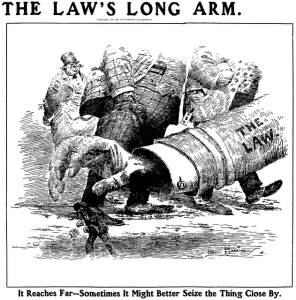 Sangha, the “master in command” of a merchant vessel, sued Navi8 Shipmanagement, his former employer, in Texas. To support personal jurisdiction, he cited a number of communications with him in Texas. Citing Walden v. Fiore, 134 S. Ct. 1115 (2014), the Fifth Circuit found those contacts inadequate: “Even though Navig8’s email communications happened to affect Cpt. Sangha while he was at the Port of Houston, this single effect is not enough to confer specific jurisdiction over Navig8.” And the Court found that “Cpt. Sangha’s reliance on the ‘effects’ test of Calder v. Jones, 465 U.S. 783 (1984), is unavailing” — “The proper question is not whether Cpt. Sangha experienced an innjury of effect in a particular location, but whether Navig8’s conduct connects it to the forum in a meaningful way.” Sangha v. Navig8 Shipmanagement, No. 17-20093 (Feb. 5, 2018).
Sangha, the “master in command” of a merchant vessel, sued Navi8 Shipmanagement, his former employer, in Texas. To support personal jurisdiction, he cited a number of communications with him in Texas. Citing Walden v. Fiore, 134 S. Ct. 1115 (2014), the Fifth Circuit found those contacts inadequate: “Even though Navig8’s email communications happened to affect Cpt. Sangha while he was at the Port of Houston, this single effect is not enough to confer specific jurisdiction over Navig8.” And the Court found that “Cpt. Sangha’s reliance on the ‘effects’ test of Calder v. Jones, 465 U.S. 783 (1984), is unavailing” — “The proper question is not whether Cpt. Sangha experienced an innjury of effect in a particular location, but whether Navig8’s conduct connects it to the forum in a meaningful way.” Sangha v. Navig8 Shipmanagement, No. 17-20093 (Feb. 5, 2018).
 Trois owned a gun collection and contracted with Apple Tree, an auction center based in Ohio. The auction did not go as well as Trois hoped, and he sued in Texas for breach of contract and fraudulent inducement. The Fifth Circuit found no personal jurisdiction over the contract claim: “The only alleged Texas contacts related to contract formation or breach are Schnaidt [Apple Tree’s principal]’s . . . conference calls negotiating the agreement while Trois was in Texas.” But as to fraud: “Although Schnaidt did not initiate the conference call to Trois in Texas, Schnaidt was not a passive participant on the call. Instead, he was the key negotiating party who made representations regarding his business in a call to Texas.” Trois v. Apple Tree Auction Center, Inc., No. 16-51414 (Feb. 5, 2018). The Court went on to find venue was also proper in Texas over the tort claim.
Trois owned a gun collection and contracted with Apple Tree, an auction center based in Ohio. The auction did not go as well as Trois hoped, and he sued in Texas for breach of contract and fraudulent inducement. The Fifth Circuit found no personal jurisdiction over the contract claim: “The only alleged Texas contacts related to contract formation or breach are Schnaidt [Apple Tree’s principal]’s . . . conference calls negotiating the agreement while Trois was in Texas.” But as to fraud: “Although Schnaidt did not initiate the conference call to Trois in Texas, Schnaidt was not a passive participant on the call. Instead, he was the key negotiating party who made representations regarding his business in a call to Texas.” Trois v. Apple Tree Auction Center, Inc., No. 16-51414 (Feb. 5, 2018). The Court went on to find venue was also proper in Texas over the tort claim.
 Deutsch, who relies upon a wheelchair for mobility, contended that the parking lot of a local business did not comply with the ADA, and sought injunctive relief against the business. The trial court dismissed for lack of Article III standing and the Fifth Circuit affirmed. “Deutsch hoas not provided a description of any concrete plans to return to Travis County Shoe, and he also has not shown how the alleged ADA violations negatively affect his day-to-day life. Deutsch . . . had not been to Travis County Shoe before the day he alleges he encountered the ADA violations . . . [and] that he had not returned to the business since that day.” Deutsch v. Travis County Shoe Hospital, No. 16-51431 (Feb. 2, 2018, unpublished).
Deutsch, who relies upon a wheelchair for mobility, contended that the parking lot of a local business did not comply with the ADA, and sought injunctive relief against the business. The trial court dismissed for lack of Article III standing and the Fifth Circuit affirmed. “Deutsch hoas not provided a description of any concrete plans to return to Travis County Shoe, and he also has not shown how the alleged ADA violations negatively affect his day-to-day life. Deutsch . . . had not been to Travis County Shoe before the day he alleges he encountered the ADA violations . . . [and] that he had not returned to the business since that day.” Deutsch v. Travis County Shoe Hospital, No. 16-51431 (Feb. 2, 2018, unpublished).
 The uncommon animal of an “absurd result” was not only sighted, but used as the basis for reversing summary judgment, in Star Financial Services v. Cardtronics USA, a dispute about the obligation to update account information associated with an ATM network. The Court reasoned: “R]eading the Contract to not impose an obligation upon Cardtronics to use correct account information after receiving updated Terminal Set-Up Forms leads to the absurd consequence that Star Financial can never make effective changes to a Terminal Set-Up Form despite an explicit provision to the contrary. Cardtronic’s obligation to deploy account information in an updated Terminal Set-Up Form is implicit in the contractual process for updating a Terminal Set-Up Form.” No. 17-30258 (Feb. 2, 2018).
The uncommon animal of an “absurd result” was not only sighted, but used as the basis for reversing summary judgment, in Star Financial Services v. Cardtronics USA, a dispute about the obligation to update account information associated with an ATM network. The Court reasoned: “R]eading the Contract to not impose an obligation upon Cardtronics to use correct account information after receiving updated Terminal Set-Up Forms leads to the absurd consequence that Star Financial can never make effective changes to a Terminal Set-Up Form despite an explicit provision to the contrary. Cardtronic’s obligation to deploy account information in an updated Terminal Set-Up Form is implicit in the contractual process for updating a Terminal Set-Up Form.” No. 17-30258 (Feb. 2, 2018).
 In United States v. Ganji, the Fifth Circuit reversed criminal convictions for conspiracy to commit health care fraud, noting (among other problems) these weaknesses in the government’s proof – weaknesses that could also appear in suits alleging civil conspiracies:
In United States v. Ganji, the Fifth Circuit reversed criminal convictions for conspiracy to commit health care fraud, noting (among other problems) these weaknesses in the government’s proof – weaknesses that could also appear in suits alleging civil conspiracies:
- Witness perspective. “The Government’s dependence on these witnesses is almost as peculiar as the scheme’s discovery. Notably, these individuals worked in the Hammond area, while Dr. Ganji and Davis worked sixty miles away in the New Orleans area. . . . Unlike other salient cases involving conspiracy to commit health care fraud, here the Government presented eighteen witnesses, none of whom could provide direct evidence of their alleged co-conspirator’s actions because the witnesses never acted with the defendants to commit the specific charged conduct.”
- Inference from job responsibilities. “The Government’s attempt to ascribe Davis with knowledge and agreement because of her position in the company falls far short of the necessary requirement for guilt beyond a reasonable doubt. One cannot negligently enter into a conspiracy.”
- Plausible alternative explanations. “Finally, the Government points to the nefarious Ponchatoula meeting. It argues that Davis would not have otherwise asked Dr. Murray to meet her to sign documents that included certification forms had she not agreed to participate in a conspiracy to defraud Medicare. Again, here the direct evidence is not on the Government’s side. . . . [T]he record illustrates a different, reasonable explanation for the meeting.”
No. 16-31119-CR (Jan. 30, 2018).
 The Louisiana Department of Natural Resources complained that it was not able to call live witnesses at an arbitration with FEMA, conducted under federal regulations by the Civilian Board of Contract Appeals. Agreeing that the regulations allowed oral presentation of evidence, but also noting the fulsome written submission received without objection, the Fifth Circuit observed: “Vacatur . . . is warranted when the panel refuses to hear material, not just any, evidence; similarly, there is no indication oral presentation ‘might have altered the outcome of the arbitration.'” Louisiana Dep’t of Natural Resources v. FEMA, No. 17-30140 (Jan. 29, 2018, unpublished) (emphasis added).
The Louisiana Department of Natural Resources complained that it was not able to call live witnesses at an arbitration with FEMA, conducted under federal regulations by the Civilian Board of Contract Appeals. Agreeing that the regulations allowed oral presentation of evidence, but also noting the fulsome written submission received without objection, the Fifth Circuit observed: “Vacatur . . . is warranted when the panel refuses to hear material, not just any, evidence; similarly, there is no indication oral presentation ‘might have altered the outcome of the arbitration.'” Louisiana Dep’t of Natural Resources v. FEMA, No. 17-30140 (Jan. 29, 2018, unpublished) (emphasis added).
 The problem in LeJeune v. JFK Capital Holdings LLC was the following: “Two approaches for determining the appropriate ‘commission’ for Chapter 7 trustees have emerged in recent years. Under the first approach, some courts hold that Section 326(a) is not simply a maximum but also a presumptively reasonable fixed commission rate to be reduced only in rare instances.Other courts hold that the presumptively reasonable approach is nonetheless subject to adjustment in ‘extraordinary circumstances.’ Some courts similarly presume that the Section 326(a) percentages are reasonable, but perform a more in-depth review of the trustee’s services to ensure the presumption is justified.'” (citations omitted). After reviewing the applicable statutes, the Fifth Circuit aligned itself with the first approach and the analysis of Mohns, Inc. v. Lanser, 522 B.R. 594, 601 (E.D. Wis.), aff’d sub nom. In re Wilson, 796 F.3d 818 (7th Cir. 2015). No. 16-31151-CV (Jan. 26, 2018).
The problem in LeJeune v. JFK Capital Holdings LLC was the following: “Two approaches for determining the appropriate ‘commission’ for Chapter 7 trustees have emerged in recent years. Under the first approach, some courts hold that Section 326(a) is not simply a maximum but also a presumptively reasonable fixed commission rate to be reduced only in rare instances.Other courts hold that the presumptively reasonable approach is nonetheless subject to adjustment in ‘extraordinary circumstances.’ Some courts similarly presume that the Section 326(a) percentages are reasonable, but perform a more in-depth review of the trustee’s services to ensure the presumption is justified.'” (citations omitted). After reviewing the applicable statutes, the Fifth Circuit aligned itself with the first approach and the analysis of Mohns, Inc. v. Lanser, 522 B.R. 594, 601 (E.D. Wis.), aff’d sub nom. In re Wilson, 796 F.3d 818 (7th Cir. 2015). No. 16-31151-CV (Jan. 26, 2018).
Plan your next New Orleans trip with the 2018 Mardi Gras parade schedule!
 A textbook example of a deposition admission appears in Peters v. Jazz Casino Co.:
A textbook example of a deposition admission appears in Peters v. Jazz Casino Co.:
Peters also asserts that the hose was obstructing the walkway, which constituted an unreasonable defect. However, his testimony at the deposition does not support the assertion that the hose obstructed the walkway. In fact, when asked if he had any recollection of the red hose obstructing someone walking on the sidewalk, he responded: “I don’t recall that.” Thus, there is insufficient evidence to create a fact issue as to whether the hose obstructed the walkway.
No. 17-20625 (Jan. 22, 2018, unpublished).
 A threshold issue in Hacienda Records LP v. Hacienda Records & Recording Studio, Inc. was whether a ruling about appellants’ standing, in another related action, was entitled to collateral estoppel effect. At the time of the district court’s decision, the other court’s ruling was not final for appeallate purposes. Finding that all elements but one were clearly established, and that the policies behind preclusion doctrines would be well-served by applying collateral estoppel here, the Fifth Circuit noted that with one notable exception, “our court has consistently followed the strict approach to finality, linking the availability of appeal for the prior decision with finality for collateral-estoppel purposes.” The Court then declined to address that issue, accepting and agreeing wiht the district court’s conclusion that “although . . . ‘the doctrine of collateral estoppel does not apply here,’ ‘the court nonetheless agree[s] with the reasoning and conclusions reached” by the other court. No. 16-41180 (Jan. 4, 2018).
A threshold issue in Hacienda Records LP v. Hacienda Records & Recording Studio, Inc. was whether a ruling about appellants’ standing, in another related action, was entitled to collateral estoppel effect. At the time of the district court’s decision, the other court’s ruling was not final for appeallate purposes. Finding that all elements but one were clearly established, and that the policies behind preclusion doctrines would be well-served by applying collateral estoppel here, the Fifth Circuit noted that with one notable exception, “our court has consistently followed the strict approach to finality, linking the availability of appeal for the prior decision with finality for collateral-estoppel purposes.” The Court then declined to address that issue, accepting and agreeing wiht the district court’s conclusion that “although . . . ‘the doctrine of collateral estoppel does not apply here,’ ‘the court nonetheless agree[s] with the reasoning and conclusions reached” by the other court. No. 16-41180 (Jan. 4, 2018).
 Calderone alleged that he was terminated, in retaliation for reporting a car dealership’s alleged refusal to finance cars for racial minorities, in violation of the Consumer Financial Protection Act. Unfortunately for Calderone, no matter how reasonable his belief may have been, car dealers are exempt from the CFPA by its plain terms, as other agencies have regulatory authority in that sector of the economy. “Under the CFPA, a plainitff may have a reasonable, but mistaken, belief of fact or law that a statute has been violated. But the CFPA does not permit a plaintiff’s reasonable beliefs to expand the CFPB’s jurisdiction.” Calderon v. Sonic Houston JLR, L.P., No. 17-20029 (Jan. 9, 2018).
Calderone alleged that he was terminated, in retaliation for reporting a car dealership’s alleged refusal to finance cars for racial minorities, in violation of the Consumer Financial Protection Act. Unfortunately for Calderone, no matter how reasonable his belief may have been, car dealers are exempt from the CFPA by its plain terms, as other agencies have regulatory authority in that sector of the economy. “Under the CFPA, a plainitff may have a reasonable, but mistaken, belief of fact or law that a statute has been violated. But the CFPA does not permit a plaintiff’s reasonable beliefs to expand the CFPB’s jurisdiction.” Calderon v. Sonic Houston JLR, L.P., No. 17-20029 (Jan. 9, 2018).
 “[A]lthough a loan provides money to the borrower that can be used for temporary economic gain, it is offset by a future obligation to repay. As there is no overall
“[A]lthough a loan provides money to the borrower that can be used for temporary economic gain, it is offset by a future obligation to repay. As there is no overall
improvement in the borrower’s economic situation, there is no gain to be taxed. This contrasts with the taxable treatment of embezzled or misappropriated
funds. A leading tax treatise calls this the ‘theft-loan dichotomy’ that James [v. United States, 366 U.S. 213 (1961)]s] ‘no consensual recognition of an obligation to repay’ requirement seeks to enforce.” (other citations omitted). Accordingly: “‘A mutual understanding that Sun would ‘return some money to Mr. Cheung at some point’ is thus not enough to constitute the bona fide loan that would allow Sun to avoid reporting as income the millions he used to gamble, to bolster the financial condition of his
company, and to produce investment returns that he retained and commingled
with his other funds.” Sun v. Commissioner, No. 16-60270 (Jan. 18, 2018).
 The White House has announced President Trump’s intent to nominate Judge Edward Prado as Ambassador to Argentina, after thirty-five years of dedicated service in the federal judiciary. This appointment means that President Trump will name six judges to the Fifth Circuit – Judges Willett and Ho have taken office, two nominations are currently pending, and Judge Prado’s departure will mean two open seats.
The White House has announced President Trump’s intent to nominate Judge Edward Prado as Ambassador to Argentina, after thirty-five years of dedicated service in the federal judiciary. This appointment means that President Trump will name six judges to the Fifth Circuit – Judges Willett and Ho have taken office, two nominations are currently pending, and Judge Prado’s departure will mean two open seats.
 Ramos contended that the trial court should not have excluded some of his testimony under the “sham-affidavit rule,” observing that his declaration was given before his deposition. The Fifth Circuit disagreed: “It is the competency, rather than timing, of evidence with which the sham-affidavit rule is concerned.” And it agreed with the district court that the testimony was in fact inconsistent, noting as an example that “Ramos the declarant stated Hacienda ‘never paid him any monies or royalties,’ but Ramos the deponent admitted he couldn’t remember whether he had been paid. Memories, of course, may fade over time; but, that is a far cry from Ramos,at his deposition, being unable to recall many of the events he had stated as fact in his declaration, just four days prior.” Hacienda Records LP v. Hacienda Records & Recording Studio, Inc., No. 16-41190 (Jan. 4, 2018).
Ramos contended that the trial court should not have excluded some of his testimony under the “sham-affidavit rule,” observing that his declaration was given before his deposition. The Fifth Circuit disagreed: “It is the competency, rather than timing, of evidence with which the sham-affidavit rule is concerned.” And it agreed with the district court that the testimony was in fact inconsistent, noting as an example that “Ramos the declarant stated Hacienda ‘never paid him any monies or royalties,’ but Ramos the deponent admitted he couldn’t remember whether he had been paid. Memories, of course, may fade over time; but, that is a far cry from Ramos,at his deposition, being unable to recall many of the events he had stated as fact in his declaration, just four days prior.” Hacienda Records LP v. Hacienda Records & Recording Studio, Inc., No. 16-41190 (Jan. 4, 2018).
 Plaintiffs, represented by the same counsel, sought to consolidate two actions in state court; the defendant removed under CAFA’s “mass action” provision. A Fifth Circuit panel majority affirmed the denial of Plaintiff’s motion to remand, rejecting arguments about timeliness, retroactivity, and CAFA’s text. The majority reasoned that “it is the mass action, not claims against particular defendants, that is removable,” and that the plaintiff’s motion satisfied the CAFA requirement of “100 or more persons . . . proposed to be tried jointly on the ground that the plaintiffs’ claims involve common questions of law or fact.” A dissent would remand based on CAFA’s “not-retroactivity” language, as one of the state cases was filed before CAFA took effect. Lester v. Exxon Mobil Corp., No. 14-31383 (Jan. 9, 2018).
Plaintiffs, represented by the same counsel, sought to consolidate two actions in state court; the defendant removed under CAFA’s “mass action” provision. A Fifth Circuit panel majority affirmed the denial of Plaintiff’s motion to remand, rejecting arguments about timeliness, retroactivity, and CAFA’s text. The majority reasoned that “it is the mass action, not claims against particular defendants, that is removable,” and that the plaintiff’s motion satisfied the CAFA requirement of “100 or more persons . . . proposed to be tried jointly on the ground that the plaintiffs’ claims involve common questions of law or fact.” A dissent would remand based on CAFA’s “not-retroactivity” language, as one of the state cases was filed before CAFA took effect. Lester v. Exxon Mobil Corp., No. 14-31383 (Jan. 9, 2018).
U .S. Energy Devel. Corp. v. CL III Funding Holding Co. applied the attorneys’ fees provision of the form Joint Operating Agreement in Texas, which says: “Costs and Attorneys’ Fees: In the event any party is required to bring legal proceedings to enforce any financial obligation of a party hereunder, the prevailing party in such action shall be entitled to recover all court costs, costs of collection, and a reasonable attorney’s fee, which the lien provided for herein shall also secure.” The Fifth Circuit concluded that none of the four legal actions involved in the fee request involved a “financial obligation” within the meaning of the provision. No. 17-50217 (Jan. 10, 2018, unpublished).
.S. Energy Devel. Corp. v. CL III Funding Holding Co. applied the attorneys’ fees provision of the form Joint Operating Agreement in Texas, which says: “Costs and Attorneys’ Fees: In the event any party is required to bring legal proceedings to enforce any financial obligation of a party hereunder, the prevailing party in such action shall be entitled to recover all court costs, costs of collection, and a reasonable attorney’s fee, which the lien provided for herein shall also secure.” The Fifth Circuit concluded that none of the four legal actions involved in the fee request involved a “financial obligation” within the meaning of the provision. No. 17-50217 (Jan. 10, 2018, unpublished).
 While both sides made cogent policy arguments, plain meaning triumphed in Morgan v. Huntington Ingalls, and the Fifth Circuit held that the thirty-day removal deadline begins to run from receipt of a deposition transcript that may create a basis for removal, rather than the oral testimony
While both sides made cogent policy arguments, plain meaning triumphed in Morgan v. Huntington Ingalls, and the Fifth Circuit held that the thirty-day removal deadline begins to run from receipt of a deposition transcript that may create a basis for removal, rather than the oral testimony  itself. “[P]aper” is defined as “[a] written or printed document or instrument.” “[R]eceipt” is defined as the “[a]ct of receiving; also, the fact of receiving or being received; that which is received.” “Copy” is defined as “[t]he transcript or double of an original writing.” “‘Ascertain’ means ‘to make certain, exact, or precise’ or ‘to find out or learn with certainty.’” No. 17-30523 (Jan. 11, 2018).
itself. “[P]aper” is defined as “[a] written or printed document or instrument.” “[R]eceipt” is defined as the “[a]ct of receiving; also, the fact of receiving or being received; that which is received.” “Copy” is defined as “[t]he transcript or double of an original writing.” “‘Ascertain’ means ‘to make certain, exact, or precise’ or ‘to find out or learn with certainty.’” No. 17-30523 (Jan. 11, 2018).
 As a further reminder that “standing,” in all of the forms that idea takes, is a complicated set of doctrines, the Fifth Circuit held in Nevarez Law Firm v. Dona Ana Title Co.: “The district court relief on Rule 12(b)(1) when it dismissed Nevarez’s [RICO and state tort] claims with prejudice after concluding that there was no standing. That was error. ‘A dismissal with prejudice is a final judgment on the merits.’ We agree with an earlier opinion of this court that ‘to dismiss with prejudice under Rule 12(b)(1) is to disclaim jurisdiction and then exercise it.'” No. 17-50053 (Jan. 3, 2018, unpublished) (citations omitted).
As a further reminder that “standing,” in all of the forms that idea takes, is a complicated set of doctrines, the Fifth Circuit held in Nevarez Law Firm v. Dona Ana Title Co.: “The district court relief on Rule 12(b)(1) when it dismissed Nevarez’s [RICO and state tort] claims with prejudice after concluding that there was no standing. That was error. ‘A dismissal with prejudice is a final judgment on the merits.’ We agree with an earlier opinion of this court that ‘to dismiss with prejudice under Rule 12(b)(1) is to disclaim jurisdiction and then exercise it.'” No. 17-50053 (Jan. 3, 2018, unpublished) (citations omitted).
 A unanimous en banc opinion simplified the Fifth Circuit’s test for “whether a contract for performance of specialty services to facilitate the drilling or production of oil or gas on navigable waters is maritime.” The Court now asks: “First, is the contract one to provide services to facilitate the drilling or production of oil and gas on navigable waters? . . . Second, if the answer to the above question is ‘yes,’ does the contract provide or do the parties expect that a vessel will play a substantial role in the completion of the contract?” Larry Doiron, Inc. v. Jackson , No. 16-30217 (revised Jan. 11, 2018).
A unanimous en banc opinion simplified the Fifth Circuit’s test for “whether a contract for performance of specialty services to facilitate the drilling or production of oil or gas on navigable waters is maritime.” The Court now asks: “First, is the contract one to provide services to facilitate the drilling or production of oil and gas on navigable waters? . . . Second, if the answer to the above question is ‘yes,’ does the contract provide or do the parties expect that a vessel will play a substantial role in the completion of the contract?” Larry Doiron, Inc. v. Jackson , No. 16-30217 (revised Jan. 11, 2018).
 The question in Peake v. Ayobami was whether a bankruptcy debtor, who asserts a 100% exemption as to a particular estate asset, is asserting that exemption as to the asset itself or its value. The practical consequence is whether “claiming a 100% interest in an asset as exempt allows the debtor to ‘walk away’ with the asset itself and potentially benefit from any post-petition appreciation of it.” The Fifth Circuit gave a limited answer, noting that the statute allows the debtor to claim “a 100% interest in an asset,” and also noting Supreme Court precedent that expressed skepticism about whether a debtor could use this ability to get clear title to a valuable asset, but not providing an ultimate answer to the question. Ni. 16-20589 (Jan. 3, 2018).
The question in Peake v. Ayobami was whether a bankruptcy debtor, who asserts a 100% exemption as to a particular estate asset, is asserting that exemption as to the asset itself or its value. The practical consequence is whether “claiming a 100% interest in an asset as exempt allows the debtor to ‘walk away’ with the asset itself and potentially benefit from any post-petition appreciation of it.” The Fifth Circuit gave a limited answer, noting that the statute allows the debtor to claim “a 100% interest in an asset,” and also noting Supreme Court precedent that expressed skepticism about whether a debtor could use this ability to get clear title to a valuable asset, but not providing an ultimate answer to the question. Ni. 16-20589 (Jan. 3, 2018).
 Plaintiffs alleged antitrust violations by distributors of dental equipment; seeking damages and injunctive relief. The defendants sought to compel arbitration, based on this arbitration clause in a relevant contract:
Plaintiffs alleged antitrust violations by distributors of dental equipment; seeking damages and injunctive relief. The defendants sought to compel arbitration, based on this arbitration clause in a relevant contract:
Disputes. This Agreement shall be governed by the laws of the State of North Carolina. Any dispute arising under or related to this Agreement (except for actions seeking injunctive relief and disputes related to trademarks, trade secrets, or other intellectual property of Pelton & Crane), shall be resolved by binding arbitration in accordance with the arbitration rules of the American Arbitration Association [(AAA)]. The place of arbitration shall be in Charlotte, North Carolina.
The issue was whether arbitrability was for the courts to decide or the arbitrator. The Fifth Circuit applied “the two-step inquiry adoped in Douglas v. Regions Bank[, 757 F.3d 460 (5th Cir. 2014),] under which the first question is whether the parties “clearly and unmistakably” intended to delegate the question of arbitrability to an arbitrator. Finding that “the interaction between the AAA Rules and the [injunctive relief] carve-out is at best ambiguous,” the Court chose not to resolve that issue, concluding that the second Douglas question was dispositive. That question asks whether the “assertion of arbitrability is wholly groundless,” which the Court found to be the case:
The arbitration clause creates a carve-out for ‘actions seeking injunctive relief.’ It does not limit the exclusion to ‘actions seeking only injunctive relief,’ nor ‘actions for injunction in aid of an arbitrator’s award.’ Nor does it limit itself to only claims for injunctive relief. . . . The mere fact that the arbitration clause allows Archer to avoid arbitration by adding a claim for injunctive relief does not change the clause’s plain meaning.
Archer & White Sales v. Henry Schein, Inc., No. 16-41674 (Dec. 21, 2017) (emphasis added).
A Chapter 7 debtor was denied a discharge for fraud claims arising from statements about a business’s financial condition, based on secion 523(a)(2)(A) of the Bankruptcy Code. The Fifth Circuit affirmed, rejecting his argument that the statements were not sufficiently detailed: “As we noted in In re: Bandi[, 863 F.3d 671, 674 (5th Cir. 2012))], a statement respecting financial condition ‘need not carry the formality of a balance sheet, income statement, statement of changes in financial position, or income and debt statement.’ The information regarding ‘overall net worth or overall income flow’ contained within such a statement – not the formality of the statement – is what is important.” Haler v. Boyington Capital Group, LLC, No. 17-40229 (Dec. 29, 2017, unpublished).
 Cox v. Provident Life involved a dispute about the cause of the plaintiff’s knee problems: “Under the policies, Cox is entitled to receive disability benefits for life if, and only if, his disability resulted from injury rather sickness.” The record showed that:
Cox v. Provident Life involved a dispute about the cause of the plaintiff’s knee problems: “Under the policies, Cox is entitled to receive disability benefits for life if, and only if, his disability resulted from injury rather sickness.” The record showed that:
Shelton, the treating physician, gave deposition testimony that, ‘to a reasonable degree of medical probability,’ ‘the trauma to [Cox’s] left knee when he fell in the hole on December 26, 2010, caused or contributed to the cause of his disability.’ In the same deposition, Shelton reaffirmed that ‘[e]ven though [Cox] may have had some pre-existing arthritis or chondromalacia,’ the injury ‘contributed to and caused part of [Cox’s] disability.’ The district court never grappled with these unequivocal
statements, instead embracing contrary evidence presented by Provident suggesting Cox’s injury did not accelerate his arthritis. That was error. This is a classic ‘battle of the experts,’ the winner of which must be decided by a jury.
No. 16-60831 (revised Jan. 2, 2018).
 Sidestepping the question whether International Shoe overruled the century-old case of Penn. Fire Ins. Co. v. Gold Issue Mining, 243 U.S. 93 (1917), the Fifth Circuit held that registering to do business in Louisiana did not automatically consent to personal jurisdiction there:
Sidestepping the question whether International Shoe overruled the century-old case of Penn. Fire Ins. Co. v. Gold Issue Mining, 243 U.S. 93 (1917), the Fifth Circuit held that registering to do business in Louisiana did not automatically consent to personal jurisdiction there:
Nowhere in Pennsylvania Fire did the Court hold that registering to do business in a state or appointing an agent for service of process acts as consent to any suit of any kind in that state. Instead, it merely concluded that defendants had consented to service of process in Missouri, resting largely on the fact that the state court had construed the Missouri statute to require such consent to suit for the service at issue. This case lacks what Pennsylvania Fire had: a clear statement from the state court construing the statute to require consent. Gulf Coast does not identify any statute or agreement that requires foreign entities to expressly consent to any suit in Louisiana.
Gulf Coast Bank & Trust Co v. Designed Conveyor Systems LLC, No. 17-30062 (Dec. 22, 2017, unpublished) (citations omitted).
 Solomon brought a False Claims Act case allleging improper billing on the F-35 Joint Strike Fighter Project. The Fifth Circuit affirmed the dismissal of his claim under the “public disclosure bar,” examining three disclosures under this test: “We are not concerned . . . with the overall probability of someone inferring fraudulent activity from the public disclosures. The focus is on whether they could have made the inference.” Solomon v. Lockheed Martin Corp., No. 17-10046 (Dec. 19, 2017).
Solomon brought a False Claims Act case allleging improper billing on the F-35 Joint Strike Fighter Project. The Fifth Circuit affirmed the dismissal of his claim under the “public disclosure bar,” examining three disclosures under this test: “We are not concerned . . . with the overall probability of someone inferring fraudulent activity from the public disclosures. The focus is on whether they could have made the inference.” Solomon v. Lockheed Martin Corp., No. 17-10046 (Dec. 19, 2017).
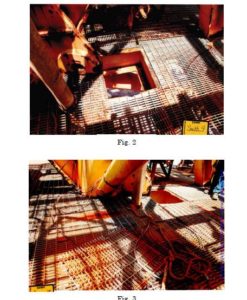 A longshoreman died after stepping through a hole on an oil platform. The district court granted summary judgment, finding no fact issue about the “open and obvious” nature of the hole – a necessary element for recovery under the LHWCA. The Fifth Circuit reversed, finding conflicting testimony on the issue, and commenting on pictures of the scene (right): “True, the pictures taken directly over the hole, as one might expect, depict a visible opening. But the pictures taken from an angle–similar to the point of view of a person approaching the hole–depict the way in which the platform’s grating, in [a witness’s] words, can ‘play tricks on your eyes’ and make the opening difficult to see.” The Court reminded that even though the case would be tried to the bench: “Judicial efficiency is a noble goal, to be sure. But when an evidentiary record contains a material factual dispute (as this one does), we simply cannot bypass the role of the fact-finder, whoever that may be.” Manson Gulf LLC v. Modern American Recycling Service, Inc., No. 17-30007 (Dec. 18, 2017).
A longshoreman died after stepping through a hole on an oil platform. The district court granted summary judgment, finding no fact issue about the “open and obvious” nature of the hole – a necessary element for recovery under the LHWCA. The Fifth Circuit reversed, finding conflicting testimony on the issue, and commenting on pictures of the scene (right): “True, the pictures taken directly over the hole, as one might expect, depict a visible opening. But the pictures taken from an angle–similar to the point of view of a person approaching the hole–depict the way in which the platform’s grating, in [a witness’s] words, can ‘play tricks on your eyes’ and make the opening difficult to see.” The Court reminded that even though the case would be tried to the bench: “Judicial efficiency is a noble goal, to be sure. But when an evidentiary record contains a material factual dispute (as this one does), we simply cannot bypass the role of the fact-finder, whoever that may be.” Manson Gulf LLC v. Modern American Recycling Service, Inc., No. 17-30007 (Dec. 18, 2017).
 In Howard v. Maxum Indemnity Co., “Howard’s appeal raises as a central, threshold question whether he waived application of Oklahoma law” in an insurance dispute. Unfortunately, “[a]lthough Howard did raise the choice of law issue in his Rule 59(e) motion, ‘this court will typically not consider an issue or a new arugment raised for the first time in a motion for reconsideration in the district court.’ . . . ‘Parties generally are bound by the theory of law they argue in the district court, absent some manifest injustice.'” No. 16-11746 (Dec. 13, 2017).
In Howard v. Maxum Indemnity Co., “Howard’s appeal raises as a central, threshold question whether he waived application of Oklahoma law” in an insurance dispute. Unfortunately, “[a]lthough Howard did raise the choice of law issue in his Rule 59(e) motion, ‘this court will typically not consider an issue or a new arugment raised for the first time in a motion for reconsideration in the district court.’ . . . ‘Parties generally are bound by the theory of law they argue in the district court, absent some manifest injustice.'” No. 16-11746 (Dec. 13, 2017).
 In this not-unusual situation, the Fifth Circuit found that a removal based on diversity was timely: In response to special exceptions, [the Strongs] filed an amended petition stating the maximum amount of damages in controversy by specifying that the Strongs sought “monetary relief of $100,000 or less.” Cf. Tex. R. Civ. P. 169 (requiring the “$100,000 or less” language to allow for expedited actions). The Strongs also sought injunctive relief ordering both a loan modification to prevent further TDCA violation and “the arrearage . . . to be deleted and/or capitalized . . . so that the loan is brought current.” Green Tree did not remove to federal district court until after it received a response to its request for disclosure in which the Strongs explicitly indicated that they were seeking damages in excess of $75,000.” The Court rejected the Strong’s argument that the petition implictly placed the entire property value at issue. Strong v. Green Tree Servicing LLC, No. 16-11346 (Dec. 11, 2017) (unpublished).
In this not-unusual situation, the Fifth Circuit found that a removal based on diversity was timely: In response to special exceptions, [the Strongs] filed an amended petition stating the maximum amount of damages in controversy by specifying that the Strongs sought “monetary relief of $100,000 or less.” Cf. Tex. R. Civ. P. 169 (requiring the “$100,000 or less” language to allow for expedited actions). The Strongs also sought injunctive relief ordering both a loan modification to prevent further TDCA violation and “the arrearage . . . to be deleted and/or capitalized . . . so that the loan is brought current.” Green Tree did not remove to federal district court until after it received a response to its request for disclosure in which the Strongs explicitly indicated that they were seeking damages in excess of $75,000.” The Court rejected the Strong’s argument that the petition implictly placed the entire property value at issue. Strong v. Green Tree Servicing LLC, No. 16-11346 (Dec. 11, 2017) (unpublished).
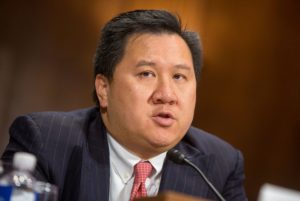 The Senate has now also confirmed Jim Ho to the Fifth Circuit.
The Senate has now also confirmed Jim Ho to the Fifth Circuit.
The Senate has confirmed Justice Don Willett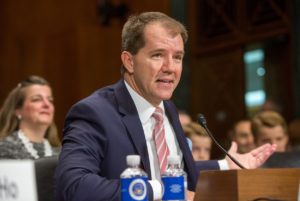 ‘s nomination to the Fifth Circuit.
‘s nomination to the Fifth Circuit.
 “Upset that a coworker had been fired, Thomas[, a network adminstrator,] embarked on a weekend campaign of electronic sabotage.” He was successfully prosecuted under the Computer Fraud and Abuse Act, which criminalizes conduct that “knowingly causes the transmission of a program, information, code, or command, and as a result of such conduct, intentionally causes damage without authorization, to a protected computer.” Thomas, citing his network administration responsibilities, argued that “because he was authorized to damage the computer when engaging in [certain] routine tasks, any damage he caused while an employee was not ‘without authorization.’” The Fifth Circuit rejected this argument, noting – in addition to obvious practical issues – that the case law Thomas relied on about “authorization” involved liability under other CFAA provisions about computer access, rather than this provision about causing damage. This case is of general interest to civil litigation, both because CFAA violations can create civil liability, and because unfortunate admissions can have significant consequences:
“Upset that a coworker had been fired, Thomas[, a network adminstrator,] embarked on a weekend campaign of electronic sabotage.” He was successfully prosecuted under the Computer Fraud and Abuse Act, which criminalizes conduct that “knowingly causes the transmission of a program, information, code, or command, and as a result of such conduct, intentionally causes damage without authorization, to a protected computer.” Thomas, citing his network administration responsibilities, argued that “because he was authorized to damage the computer when engaging in [certain] routine tasks, any damage he caused while an employee was not ‘without authorization.’” The Fifth Circuit rejected this argument, noting – in addition to obvious practical issues – that the case law Thomas relied on about “authorization” involved liability under other CFAA provisions about computer access, rather than this provision about causing damage. This case is of general interest to civil litigation, both because CFAA violations can create civil liability, and because unfortunate admissions can have significant consequences:
Just a couple weeks after the damage spree, and before the FBI had contacted Thomas, he told the friend whose firing had set this in motion that “he thought he might have broken the law.” Which law, the friend inquired? Thomas’s response: “the Computer Fraud and Abuse Act.”
United States v. Thomas, No. 16-41264 (Dec. 11, 2017).
 Griffith sued his former employer under state law, referring in the pleading to a charge he filed with the EEOC and its issuance of a right-to-sue notice. Alcon removed based on federal question jurisdiction; the district court accepted the removal and granted summary judgment to the employer. The Fifth Circuit reversed: “Although Griffith indeed referenced his dealings with the EEOC in his complaint, he did not mention Title VII or any similar federal statute. As such, the district court lacked subject-matter jurisdiciton and was not entitled to render judgment in Alcon’s favor.” Griffith v. Alcon Research, No. 17-20290 (Dec. 6, 2017, unpublished).
Griffith sued his former employer under state law, referring in the pleading to a charge he filed with the EEOC and its issuance of a right-to-sue notice. Alcon removed based on federal question jurisdiction; the district court accepted the removal and granted summary judgment to the employer. The Fifth Circuit reversed: “Although Griffith indeed referenced his dealings with the EEOC in his complaint, he did not mention Title VII or any similar federal statute. As such, the district court lacked subject-matter jurisdiciton and was not entitled to render judgment in Alcon’s favor.” Griffith v. Alcon Research, No. 17-20290 (Dec. 6, 2017, unpublished).
 DRI’s 2018 Appellate Advocacy Seminar will be held at the Planet Hollywood Resort in Las Vegas from March 14-15, 2018. This year’s seminar will include valuable insights into effective advocacy (including tips from Bryan Garner), and joint sessions with trial court practitioners. The seminar promises great networking opportunities with judges, appellate practitioners and trial advocates from across the country. This year’s seminar will be held in conjunction with the Trial Tactics Seminar, and anyone attending the appellate seminar can attend the final day of the Trial Tactics Seminar for no cost. The seminar also coincides with the beginning of the NCAA men’s basketball tournament, a great time to enjoy the excitement of Las Vegas. You can register for the Appellate Seminar here. Save $100 and get the best hotel rates when you register and book by February 13, 2018.
DRI’s 2018 Appellate Advocacy Seminar will be held at the Planet Hollywood Resort in Las Vegas from March 14-15, 2018. This year’s seminar will include valuable insights into effective advocacy (including tips from Bryan Garner), and joint sessions with trial court practitioners. The seminar promises great networking opportunities with judges, appellate practitioners and trial advocates from across the country. This year’s seminar will be held in conjunction with the Trial Tactics Seminar, and anyone attending the appellate seminar can attend the final day of the Trial Tactics Seminar for no cost. The seminar also coincides with the beginning of the NCAA men’s basketball tournament, a great time to enjoy the excitement of Las Vegas. You can register for the Appellate Seminar here. Save $100 and get the best hotel rates when you register and book by February 13, 2018.
 Johnson v. Real Estate Mortgage Network, Inc. reminds of a technical but important point about the review of remand orders under CAFA in the Fifth Circuit: “Facing our CAFA deadline, we continue to apply [prior preceden’s] suggestion that our jurisdiction to review a CAFA remand order stops at the edge of the CAFA portion of the order,” and does not extend to “every issue decided in the remand order, including federal question jurisdiction.” No. 17-30768 (Nov. 30, 2017).
Johnson v. Real Estate Mortgage Network, Inc. reminds of a technical but important point about the review of remand orders under CAFA in the Fifth Circuit: “Facing our CAFA deadline, we continue to apply [prior preceden’s] suggestion that our jurisdiction to review a CAFA remand order stops at the edge of the CAFA portion of the order,” and does not extend to “every issue decided in the remand order, including federal question jurisdiction.” No. 17-30768 (Nov. 30, 2017).
 A premature notice of appeal is certainly better than nothing, but may not be enough, as the Fifth Circuit noted in Johnson v. Real Estate Mortgage Network, Inc.: “Before we address Johnson’s contentions on appeal, we note that Johnson’s notice of appeal from the summary judgment dismissing the claims against some, but not all, of the defendants, was premature. Nevertheless, because the district court could have certified that the summary judgment was appealable, and it subsequently entered a final judgment, the notice of appeal gives us appellate jurisdiction over the summary judgment. However, because Johnson did not file a notice of appeal from the final judgment, which dismissed his remaining claims against REMNI/Homebridge, we do not have jurisdiction to consider the dismissal of his claims against REMNI/Homebridge.” No. 17-20347 (Dec. 1, 2017, unpublished).
A premature notice of appeal is certainly better than nothing, but may not be enough, as the Fifth Circuit noted in Johnson v. Real Estate Mortgage Network, Inc.: “Before we address Johnson’s contentions on appeal, we note that Johnson’s notice of appeal from the summary judgment dismissing the claims against some, but not all, of the defendants, was premature. Nevertheless, because the district court could have certified that the summary judgment was appealable, and it subsequently entered a final judgment, the notice of appeal gives us appellate jurisdiction over the summary judgment. However, because Johnson did not file a notice of appeal from the final judgment, which dismissed his remaining claims against REMNI/Homebridge, we do not have jurisdiction to consider the dismissal of his claims against REMNI/Homebridge.” No. 17-20347 (Dec. 1, 2017, unpublished).
 In City of San Antonio v. Hotels.com, the Fifth Circuit reversed an $84 million judgment for several cities, against online hotel reservation services, relating to the collection of local occupancy taxes. The holding turned entirely on the force of an intermediate Texas appellate opinon under the Erie doctrine. In its reasoning, the Fifth Circuit rejected a number of arguments against following that opinion, including: (1) the scope of the record before the courts; (2) the analytical framework used by the Texas court; and (3) the precise language of the relevant ordinance. The Court was satisfied with the general principles relied upon by the Texas opinion, as well as its resolution of “absurd result” arguments made in both cases. No. 16-50479 (Nov. 29, 2017). The Dallas Morning News has a good summary of the issues and history of this long-running litigation.
In City of San Antonio v. Hotels.com, the Fifth Circuit reversed an $84 million judgment for several cities, against online hotel reservation services, relating to the collection of local occupancy taxes. The holding turned entirely on the force of an intermediate Texas appellate opinon under the Erie doctrine. In its reasoning, the Fifth Circuit rejected a number of arguments against following that opinion, including: (1) the scope of the record before the courts; (2) the analytical framework used by the Texas court; and (3) the precise language of the relevant ordinance. The Court was satisfied with the general principles relied upon by the Texas opinion, as well as its resolution of “absurd result” arguments made in both cases. No. 16-50479 (Nov. 29, 2017). The Dallas Morning News has a good summary of the issues and history of this long-running litigation.
 It’s that time of year again. The polls are open until the end of November to vote for next year’s listings of Texas SuperLawyers; online voting can be done at the SuperLawyers website, here.
It’s that time of year again. The polls are open until the end of November to vote for next year’s listings of Texas SuperLawyers; online voting can be done at the SuperLawyers website, here.
Melton v. Phillips, No. 15-10604 (Nov. 13, 2017), a difficult qualified immunity case that required en banc review to resolve, features a concurrence with the unusual verb “cross-pollinated” to describe a confluence of two lines of authority. That perspective on the development of common law recalls the concept of “vegetation” in early scientific thought, used to describe vigorous and lively growth not just in plant life, but throughout nature. Indeed, no less than Isaac Newton wrote a paper about “Chymystry” titled “On Nature’s Obvious Laws and Processes in Vegetation”:
 In an insurance coverage dispute, the district court granted both sides’ motions for summary judgment as to the meaning of various policy terms. The net result was final judgment for the insurance company. The insured appealed; the insurer cross-appealed, and on that procedural point, the Fifth Circuit held that the cross-appeal was unnecessary, noting:
In an insurance coverage dispute, the district court granted both sides’ motions for summary judgment as to the meaning of various policy terms. The net result was final judgment for the insurance company. The insured appealed; the insurer cross-appealed, and on that procedural point, the Fifth Circuit held that the cross-appeal was unnecessary, noting:
- “National Union is conflating the district court’s opinion (i.e., the order) with its judgment. Appellate courts review judgments, not opinions. . . . To the extent that the district court rejected the arguments in National Union’s cross-appeal, ‘an appellee may urge any ground available in support of a judgment even if that ground was . . . rejected by the trial court.'” (citations omitted);
- The recent case of ART Midwest v. Atlantic Limited Partnership XII,742 F.3d 206 (5th Cir. 2014), in which a party was not allowed to raise certain issues after not taking a cross-appeal, was distinguishable because judgment had actually been entered against that party on those issues. “Here,there is no adverse judgment against National Union, such that it might need to protect its rights—just some adverse reasoning”; and
- “This is not just formalism. ‘A cross-appeal filed for the sole purpose of advancing additional arguments in support of a judgment is “worse than unnecessary”, because it disrupts the briefing schedule, increases the number (and usually the length) of briefs, and tends to confuse the issues.’ . . . In this case, National Union’s improper cross-appeal resulted in an over-length opposition brief and an additional reply (giving National Union over four thousand words of additional briefing).” (citations omitted)
Cooper Indus. v. Nat’l Union Fire Ins. Co., No. 16-20539 (revised Dec. 11, 2017).
 The Fifth Circuit affirmed a JNOV motion on damages, under Texas law, when the plaintiff proved gross profits rather than net profits. “Its expert witness testified that he used ThermoTek’s gross profit margin—gross sales, less the cost of those goods sold, divided by gross sales—to calculate lost profits. He then stated that he reached his lost-profit totals for the VascuTherm units and wraps by (1) multiplying the average sales ThermoTek made to Wilford each month by the unit sales price and relevant time period, and (2) deducting the cost of the goods sold. But that is the very definition of gross profits. See Black’s Law Dictionary, supra (defining gross profits as “[t]otal sales revenue less the cost of the goods sold, no adjustment being made for additional expenses and taxes”). Motion Medical Technologies v. Thermotek, No. 16-11381 (Nov. 14, 2017).
The Fifth Circuit affirmed a JNOV motion on damages, under Texas law, when the plaintiff proved gross profits rather than net profits. “Its expert witness testified that he used ThermoTek’s gross profit margin—gross sales, less the cost of those goods sold, divided by gross sales—to calculate lost profits. He then stated that he reached his lost-profit totals for the VascuTherm units and wraps by (1) multiplying the average sales ThermoTek made to Wilford each month by the unit sales price and relevant time period, and (2) deducting the cost of the goods sold. But that is the very definition of gross profits. See Black’s Law Dictionary, supra (defining gross profits as “[t]otal sales revenue less the cost of the goods sold, no adjustment being made for additional expenses and taxes”). Motion Medical Technologies v. Thermotek, No. 16-11381 (Nov. 14, 2017).
 “We have twice held that Texas’s unfair competition-by-misappropriation tort does not afford protection qualitatively different from federal copyright law. We do so again here.” Motion Medical Technologies v. Thermotek, No. 16-11381 (Nov. 14, 2017) (citing Ultraflo Corp. v. Pelican Tank Parts, Inc., 945 F.3d 652, 657-59 (5th Cir. 2017) and Alcatel USA, Inc. v. DGI Techs., Inc., 166 F.3d 772, 787-89 (5th Cir. 1999)).
“We have twice held that Texas’s unfair competition-by-misappropriation tort does not afford protection qualitatively different from federal copyright law. We do so again here.” Motion Medical Technologies v. Thermotek, No. 16-11381 (Nov. 14, 2017) (citing Ultraflo Corp. v. Pelican Tank Parts, Inc., 945 F.3d 652, 657-59 (5th Cir. 2017) and Alcatel USA, Inc. v. DGI Techs., Inc., 166 F.3d 772, 787-89 (5th Cir. 1999)).
 The Fifth Circuit recently “walked back” its May opinion in EEOC v. BDO USA, which identified three problems with a privilege log. A revised opinion removed that discussion, in favor of a shorter, more general observation about there being “no presumption that a company’s communications with counsel are privileged.” The new opinion observed: “Given the ‘broad’ and ‘considerable discretion’ district courts have in discovery matters, we will not analyze the privilege logs in the first instance.” EEOC v. BDO USA, No. 16-20314 (revised Nov. 16, 2017).
The Fifth Circuit recently “walked back” its May opinion in EEOC v. BDO USA, which identified three problems with a privilege log. A revised opinion removed that discussion, in favor of a shorter, more general observation about there being “no presumption that a company’s communications with counsel are privileged.” The new opinion observed: “Given the ‘broad’ and ‘considerable discretion’ district courts have in discovery matters, we will not analyze the privilege logs in the first instance.” EEOC v. BDO USA, No. 16-20314 (revised Nov. 16, 2017).
 Yes, according to Alexander v. Verizon Wireless Services LLC:
Yes, according to Alexander v. Verizon Wireless Services LLC:
Although many style guides, such as the Chicago Manual of Style, and news sources, such as the Associated Press, no longer instruct writers to capitalize “Internet,” we decline to follow this trend. For many, such as the New York Times, the reason for the change to “internet” is simple: others were doing it, so they thought they should, too. “Internet,” however, was originally capitalized to distinguish the global network from other internets—short for “inter networks”—which are collections of smaller networks that communicate using the same protocols. In our view, this still makes the word a proper noun, regardless of how often people refer to other internets. Furthermore, to the extent “decapitalizing [I]nternet is part of a universal linguistic tendency to reduce the amount of effort required to produce and process commonly-used words,” we reject the tasks of striking an additional key or reading over a capital “I” as persuasive reasons to alter a word.
No. 16-31227 n.12 (Nov. 13, 2017) (citations omitted).
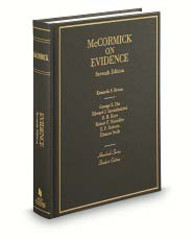 Two basic reminders about evidence appear in Eaton-Stephens v. Grapevine Colleyville ISD, an employment dispute involving a school counselor:
Two basic reminders about evidence appear in Eaton-Stephens v. Grapevine Colleyville ISD, an employment dispute involving a school counselor:
- “Eaton-Stephens also argues she should have received a spoliation inference because her computer’s contents were erased, and that, because the School District’s policy and rules required retention of the contents for several years, the only conclusion was that the action was taken in bad faith. Our cases indicate a violation of a rule or regulation pertaining to
 document retention is not per se bad faith and Eaton-Stephens cites no authority in support of such a per se bad faith rule.”
document retention is not per se bad faith and Eaton-Stephens cites no authority in support of such a per se bad faith rule.” - “We agree that the district court unduly discredited some of Eaton-Stephens’s deposition testimony as conclusory. ‘A party’s own testimony is often “self-serving,” but we do not exclude it as incompetent for that reason alone.’ Even if self-serving, a party’s own affidavit containing factual assertions based on firsthand knowledge is competent summary judgment evidence sufficient to create a fact issue.”
No. 16-11611 (Nov. 13, 2017, unpublished).
 It’s that time of year again. The polls are open until the end of November to vote for next year’s listings of Texas SuperLawyers; online voting can be done at the SuperLawyers website, here.
It’s that time of year again. The polls are open until the end of November to vote for next year’s listings of Texas SuperLawyers; online voting can be done at the SuperLawyers website, here.
 PlainsCapital asserted federal jurisdiction over a collection action on two large notes, contending that it would have to establish holder in due course status under federal law to recover (the notes came to PlainsCapital via assignment from the FDIC after a bank failure). The Fifth Circuit disagreed, reversing the district court’s summary judgment for the bank. As to the well-pleaded complaint rule, the Court observed: “PlainsCapital conflates the terms ‘holder’ and ‘holder in due course.’ A ‘holder is ‘the person in possession of a negotiable instrument that is payable either to bearer or to an identified person that is the person in possession. By contrast, a party’s status as a holder ‘in due course’ merely ‘determines the applicable defenses which a defendant . . . ‘ may assert.” PlainsCapital Bank v. Rogers, No. 16-41654 (Oct. 25, 2017).
PlainsCapital asserted federal jurisdiction over a collection action on two large notes, contending that it would have to establish holder in due course status under federal law to recover (the notes came to PlainsCapital via assignment from the FDIC after a bank failure). The Fifth Circuit disagreed, reversing the district court’s summary judgment for the bank. As to the well-pleaded complaint rule, the Court observed: “PlainsCapital conflates the terms ‘holder’ and ‘holder in due course.’ A ‘holder is ‘the person in possession of a negotiable instrument that is payable either to bearer or to an identified person that is the person in possession. By contrast, a party’s status as a holder ‘in due course’ merely ‘determines the applicable defenses which a defendant . . . ‘ may assert.” PlainsCapital Bank v. Rogers, No. 16-41654 (Oct. 25, 2017).
 The statutory interpretation question in United States v. American Commercial Lines was the meaning of the phrase “in connection with.” The Fifth Circuit began with the plain meaning of the word “connection,” which it called “a capacious term, encompassing things that are logically or causally related or simply ‘bound up’ with one another.” Going on to review precedent and the purpose of the statute at hand, the Coourt concluded that “[i]t is, however, not so capacious as to be rendered meaningless. Conduct does not automatically occur ‘in connection with’ a contractual relationship by the mere fact that such a relationship exists. No. 16-31550 (Nov. 7, 2017) (citation omitted).
The statutory interpretation question in United States v. American Commercial Lines was the meaning of the phrase “in connection with.” The Fifth Circuit began with the plain meaning of the word “connection,” which it called “a capacious term, encompassing things that are logically or causally related or simply ‘bound up’ with one another.” Going on to review precedent and the purpose of the statute at hand, the Coourt concluded that “[i]t is, however, not so capacious as to be rendered meaningless. Conduct does not automatically occur ‘in connection with’ a contractual relationship by the mere fact that such a relationship exists. No. 16-31550 (Nov. 7, 2017) (citation omitted).
 A rare Robert Heinlein citation appeared this week in United States v. Gibson: “The trouble with conspiracies is that they rot internally.” The Moon is a Harsh Mistress 76 (1966).
A rare Robert Heinlein citation appeared this week in United States v. Gibson: “The trouble with conspiracies is that they rot internally.” The Moon is a Harsh Mistress 76 (1966).
 Griffin v. Hess Corp. involved a summary judgment for the defense on the statute of limitations, based on deposition admissions about the plaintiffs’ knowledge of relevant facts. Their testimony differed in response to the summary judgment motion, and the Fifth Circuit agreed that the different testimony did not raise a sufficient issue of fact: “Appellants’ explanation—that the deposition testimony was only meant to speak of what they knew in the present tense and not to their knowledge prior to the actual filing of the complaint—does not remedy or sufficiently explain the contradiction in light of the repeated questions about the particular date certain events took place concerning their royalty claims accruing from the Property. The deposition questions, as Appellees counsel repeatedly indicated and Appellants affirmed, related to the Property and royalties accruing from the production of oil on the Property.” No. 17-30165 (Nov. 3, 2017, unpublished).
Griffin v. Hess Corp. involved a summary judgment for the defense on the statute of limitations, based on deposition admissions about the plaintiffs’ knowledge of relevant facts. Their testimony differed in response to the summary judgment motion, and the Fifth Circuit agreed that the different testimony did not raise a sufficient issue of fact: “Appellants’ explanation—that the deposition testimony was only meant to speak of what they knew in the present tense and not to their knowledge prior to the actual filing of the complaint—does not remedy or sufficiently explain the contradiction in light of the repeated questions about the particular date certain events took place concerning their royalty claims accruing from the Property. The deposition questions, as Appellees counsel repeatedly indicated and Appellants affirmed, related to the Property and royalties accruing from the production of oil on the Property.” No. 17-30165 (Nov. 3, 2017, unpublished).
 Wildman sued about a Medtronic device implanted in his back to relieve pain, contending that the device did not last as long as the company warranted. Medtronic argued that this claim was preempted by federal law. The question, then, is whether that warranty claim imposes requirements “different from” those of the FDA – put differently, whether it would “undermine FDA regulation or reinforce it.” The Fifth Circuit found that it was not preempted, reasoning that Medtronic made a warranty of “the longevity of the entire [d]evice,” which “goes beyond what the FDA evaluated in its approval process,” as that procees focused specifically on the testing of batteries. The Court thus reversed a summary judgment for Medtronic and remanded, noting that on remand the district could consider “another argument challenging the plausibility of Wildman’s claim: that he did not allege reliance on the warranty.” Wildman v. Medtronic, Inc., No. 17-50010 (Oct. 31, 2017).
Wildman sued about a Medtronic device implanted in his back to relieve pain, contending that the device did not last as long as the company warranted. Medtronic argued that this claim was preempted by federal law. The question, then, is whether that warranty claim imposes requirements “different from” those of the FDA – put differently, whether it would “undermine FDA regulation or reinforce it.” The Fifth Circuit found that it was not preempted, reasoning that Medtronic made a warranty of “the longevity of the entire [d]evice,” which “goes beyond what the FDA evaluated in its approval process,” as that procees focused specifically on the testing of batteries. The Court thus reversed a summary judgment for Medtronic and remanded, noting that on remand the district could consider “another argument challenging the plausibility of Wildman’s claim: that he did not allege reliance on the warranty.” Wildman v. Medtronic, Inc., No. 17-50010 (Oct. 31, 2017).
 After the commercial, at about 2:30 in this news segment, I offer a couple of thoughts about recent developments in the Russia investigation.
After the commercial, at about 2:30 in this news segment, I offer a couple of thoughts about recent developments in the Russia investigation.
 The concept of a “genuine issue of material fact” is largely unquantifiable, but occasionally a case does set a quantitative landmark. In Shirey v. Wal-Mart Stores Texas, LLC, the Fifth Circuit addressed a personal injury claim asserting that a Wal-Mart store had constructive notice of a grape on the floor, holding:
The concept of a “genuine issue of material fact” is largely unquantifiable, but occasionally a case does set a quantitative landmark. In Shirey v. Wal-Mart Stores Texas, LLC, the Fifth Circuit addressed a personal injury claim asserting that a Wal-Mart store had constructive notice of a grape on the floor, holding:
Photographic and video evidence demonstrate that the grape was, as the district court noted, almost invisible on the off-white floor. The evidence also fails to establish that any Wal-Mart employee was in proximity to the grape for a sufficient period of time. The few seconds during which the employee passed by the grape did not provide an objectively reasonable opportunity for him to see it, notwithstanding his employer’s policy that he perform visual “sweeps” for hazards. Under these circumstances, the seventeen minutes during which the inconspicuous grape was on the floor did not afford Wal-Mart a reasonable time to discover and remove the hazard.
No. 17-20298 (Oct. 30, 2017, unpublished) (emphasis added).
 Among other Twombly problems, the Fifth Circuit criticized a bankruptcy trustee’s claims about excessive bonuses, noting: “The Trustee does not explain how ATP’s compensation was excessive in comparison to other similarly sized public companies in the oil and gas industry at the time. Indeed,the Trustee offers no metric or explanation for finding the bonuses ‘exorbitant.'” And in this procedural setting, “these pleading deficiencies are ‘particularly striking’ because the Trustee has ample access to ATP’s books and records.” Tow v. Bulmahn, No. 17-30077 (Oct. 27, 2017, unpublished).
Among other Twombly problems, the Fifth Circuit criticized a bankruptcy trustee’s claims about excessive bonuses, noting: “The Trustee does not explain how ATP’s compensation was excessive in comparison to other similarly sized public companies in the oil and gas industry at the time. Indeed,the Trustee offers no metric or explanation for finding the bonuses ‘exorbitant.'” And in this procedural setting, “these pleading deficiencies are ‘particularly striking’ because the Trustee has ample access to ATP’s books and records.” Tow v. Bulmahn, No. 17-30077 (Oct. 27, 2017, unpublished).
 While it does not do so every day, or for that matter even every year, Fifth Circuit opinions draw powerful boundary lines around government activity. One recent example is St. Joseph Abbey v. Castille, 712 F.3d 215 (5th Cir. 2013), about the limits that substantive due process places on economic regulation. Another such line-drawing case appeared this month in Jauch v. Choctaw County, which found that qualified immunity did not protect a sheriff from the following violation of due process:
While it does not do so every day, or for that matter even every year, Fifth Circuit opinions draw powerful boundary lines around government activity. One recent example is St. Joseph Abbey v. Castille, 712 F.3d 215 (5th Cir. 2013), about the limits that substantive due process places on economic regulation. Another such line-drawing case appeared this month in Jauch v. Choctaw County, which found that qualified immunity did not protect a sheriff from the following violation of due process:
On April 26, 2012, Starkville Police Department officers pulled Jauch over, issued her several traffic tickets, and informed her of an outstanding misdemeanor warrant in Choctaw County. Choctaw County deputies took custody of Jauch and transported her to the Choctaw County Jail where, the next morning, she was served with the misdemeanor warrant and the capias. Jauch cleared the misdemeanor warrant within a few days. She nonetheless
remained detained on the capias, and her requests to be brought before a judge and allowed to post bail were denied. Jail officials informed Jauch that Sheriff Halford had confirmed she could not be taken before a judge until August when the next term of the Circuit Court commenced. When a friend of Jauch’s reached the sheriff on the telephone, he told her the same thing. Jauch’s protestations of innocence were ineffectual.Ninety-six days after being taken into custody, Jauch’s case moved forward. She received an appointed attorney, waived formal arraignment, had bail set, and had a trial date set. Six days later, on August 6, 2012, she posted bail. Before the end of the month, the prosecutor reviewed the evidence against Jauch and promptly moved to dismiss the charge. On January 29, 2013, the Circuit Court of Choctaw County entered the dismissal. It is undisputed that Jauch was innocent all along, as she had claimed from behind bars.
No. 16-60690 (Oct. 24, 2017).
 Among other holdings in a breach-of-warranty dispute about an aircraft engine, the Fifth Circuit reversed a finding that the manufacturer breached an express warranty by not repairing the engine in a timely manner. Because, under Texas law, “courts will not rewrite agremeents to insert provisions parties could have included,” “time is not of the essence of a contract unless the contract explicitly makes it so . . . .” Becker v. Continental Motors, Inc., No. 16-10166 (Oct. 3, 2017).
Among other holdings in a breach-of-warranty dispute about an aircraft engine, the Fifth Circuit reversed a finding that the manufacturer breached an express warranty by not repairing the engine in a timely manner. Because, under Texas law, “courts will not rewrite agremeents to insert provisions parties could have included,” “time is not of the essence of a contract unless the contract explicitly makes it so . . . .” Becker v. Continental Motors, Inc., No. 16-10166 (Oct. 3, 2017).
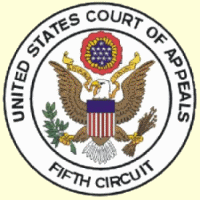 The Fifth Circuit describes its newly-created Pro Bono Program as follows. Great opportunity for quality appellate experience!
The Fifth Circuit describes its newly-created Pro Bono Program as follows. Great opportunity for quality appellate experience!
“The Program assists the Court by facilitating the appointment of pro bono counsel to represent pro se litigants. Pro Bono Panel members will, at the Court’s invitation, be appointed in civil appeals that, for example, present issues of first impression, complex facts or legal questions, or potentially meritorious claims warranting further briefing and/or oral argument.
Pro bono appointments are made by the Court, and are limited to proceedings before this Court. Although oral argument is not guaranteed, cases selected for the Program are likely to meet the Court’s criteria for granting oral argument.
Attorneys wishing to join the Pro Bono Panel should submit to the CMJS Office a cover letter (including statement of types of cases, if any, that counsel prefers or does not prefer), resumé, writing sample (appellate brief or brief of substantive motion), and statement of good standing in the Fifth Circuit Bar. Applications for panel membership should be emailed to the CMJS Office at probono@ca5.uscourts.gov. Questions about the program may be directed to Kate Clark, Administrative Attorney, at that email address or by telephone at 504-310-7799.”
 The question of timely notice to a carrier can give rise to close questions about insurance coverage. Nautilus Ins. Co. v. Miranda-Mondragon, however, presented a straightforward issue: “The first notice Nautilus received of the lawsuit came from Miranda-Mondragon’s counsel 41 days after the state court entered default judgment . . . . The delayed notice prejudiced Nautilus as a matter of law and relieved Nautilus of liability under the policy.” No. 17-20261 (Oct. 20, 2017, unpublished).
The question of timely notice to a carrier can give rise to close questions about insurance coverage. Nautilus Ins. Co. v. Miranda-Mondragon, however, presented a straightforward issue: “The first notice Nautilus received of the lawsuit came from Miranda-Mondragon’s counsel 41 days after the state court entered default judgment . . . . The delayed notice prejudiced Nautilus as a matter of law and relieved Nautilus of liability under the policy.” No. 17-20261 (Oct. 20, 2017, unpublished).
 Atlas Trading sued AT&T based on the “filed rate doctrine,” which prohibits a common carrier from charging rates other than those on file with the FCC. The Fifth Circuit affirmed the dismissal of that claim on the pleadings; after a thorough discussion of the requirements of Twombly and Iqbal, the Court observed:
Atlas Trading sued AT&T based on the “filed rate doctrine,” which prohibits a common carrier from charging rates other than those on file with the FCC. The Fifth Circuit affirmed the dismissal of that claim on the pleadings; after a thorough discussion of the requirements of Twombly and Iqbal, the Court observed:
Atlas has neither pled nor shown, though, how these charges are inconsistent with the tariffed rates. That the terms are not found in the tariffs is insufficient. For example, it could allege what it should have been charged under the tariffed rate or compared that to what it was actually charged. It simply asserts that charges such as the composite access-rate charge are not found in the tariffs and from that asks the court to let its claims go forward.
Even accepting as true Atlas’s allegation that the labels for the charges are not found in the tariffs, we cannot make a reasonable inference that the defendants have violated the filed-rate doctrine. At most, we can only infer that certain labels for charges are not found in the tariffs filed with the FCC. Such an inference is not the equivalent of a plausible allegation that the defendants have charged Atlas different rates from those on file with the FCC.
Atlas Trading v. AT&T, No. 16-11661 (Oct. 18, 2017) (emphasis added).
 In a reminder of the surprising complexity that can surround litigation about a party’s standing to bring a claim, in Intrepid Ship Mgmnt v. Malin Int’l Ship Repair, the Fifth Circuit noted a source of potential confusion about the applicable procedure: “Although a dismissal for lack of standing is appropriately judged under Federal Rule of Civil Procedure 12(b)(1), which allows a court to make limited findings of fact, the parties have argued this case under the standards applicable to ordinary summary judgment motions. Compare Lane v. Halliburton, 529 F.3d 548, 557 (5th Cir. 2008) (explaining that the district court can resolve disputed facts as necessary to decide a challenge to subject atter jurisdiction), withInt’l Marine LLC v. Integrity Fisheries, Inc., 860 F.3d 754, 759 (5th Cir. 2017) (applying de novo review to summary judgment cases, explaining that “[s]ummary judgment is appropriate when ‘there is no genuine dispute as to any material fact.’”)”. No. 16-41074 (Oct. 11, 2017) (unpublished).
In a reminder of the surprising complexity that can surround litigation about a party’s standing to bring a claim, in Intrepid Ship Mgmnt v. Malin Int’l Ship Repair, the Fifth Circuit noted a source of potential confusion about the applicable procedure: “Although a dismissal for lack of standing is appropriately judged under Federal Rule of Civil Procedure 12(b)(1), which allows a court to make limited findings of fact, the parties have argued this case under the standards applicable to ordinary summary judgment motions. Compare Lane v. Halliburton, 529 F.3d 548, 557 (5th Cir. 2008) (explaining that the district court can resolve disputed facts as necessary to decide a challenge to subject atter jurisdiction), withInt’l Marine LLC v. Integrity Fisheries, Inc., 860 F.3d 754, 759 (5th Cir. 2017) (applying de novo review to summary judgment cases, explaining that “[s]ummary judgment is appropriate when ‘there is no genuine dispute as to any material fact.’”)”. No. 16-41074 (Oct. 11, 2017) (unpublished).
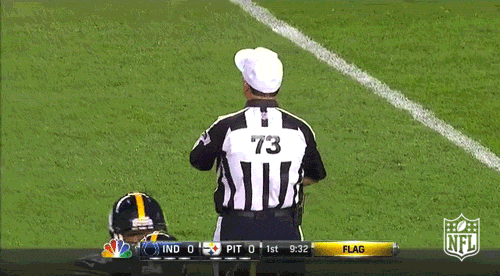 In a 2-1 decision, the Fifth Circuit found that Ezekiel Elliott failed to exhaust remedies within the NFL’s dispute-resolution process before filing suit, meaning that the federal courts lacked subject matter jurisdiction over his complaints. A dissent found a sufficient question about the adequacy of the process to justify the exercise of jurisdiction under the relevant authorities. NFLPA v. NFL, No. 17-40936 (Oct. 12, 2017). While of enormous interest to Cowboys fans, so far as arbitration goes, the opinion is centered on issues unique to collective bargaining agreements.
In a 2-1 decision, the Fifth Circuit found that Ezekiel Elliott failed to exhaust remedies within the NFL’s dispute-resolution process before filing suit, meaning that the federal courts lacked subject matter jurisdiction over his complaints. A dissent found a sufficient question about the adequacy of the process to justify the exercise of jurisdiction under the relevant authorities. NFLPA v. NFL, No. 17-40936 (Oct. 12, 2017). While of enormous interest to Cowboys fans, so far as arbitration goes, the opinion is centered on issues unique to collective bargaining agreements.
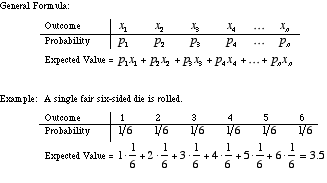 Plaintiff, invoking classical concepts about the measure of damages, argued that a “reliance” or “restitution” measure was superior to “expectancy” as applied to the breach of a stock-purchase contract. The Fifth Circuit disagreed: “Here, the jury found that there was an express contract, the stock agreement, so under Texas law, Jinsun may not recover anything beyond its expectancy damages unless Jinsun shows that the stock agreement is an exception to the general rule. Jinsun has failed to do so. Here, Jinsun expected to receive $56,000 from Alidad in exchange for the block of Luxeyard stock. Whether the stock price went up or down following the stock transfer, Jinsun was entitled to receive $56,000 from Alidad—no more and no less. Its expectancy damages under the plain terms of the express contract are therefore $56,000—no more and no less.” Jinsun LLC v. Mireskandari, No. 16-20275 (Oct. 5, 2017).
Plaintiff, invoking classical concepts about the measure of damages, argued that a “reliance” or “restitution” measure was superior to “expectancy” as applied to the breach of a stock-purchase contract. The Fifth Circuit disagreed: “Here, the jury found that there was an express contract, the stock agreement, so under Texas law, Jinsun may not recover anything beyond its expectancy damages unless Jinsun shows that the stock agreement is an exception to the general rule. Jinsun has failed to do so. Here, Jinsun expected to receive $56,000 from Alidad in exchange for the block of Luxeyard stock. Whether the stock price went up or down following the stock transfer, Jinsun was entitled to receive $56,000 from Alidad—no more and no less. Its expectancy damages under the plain terms of the express contract are therefore $56,000—no more and no less.” Jinsun LLC v. Mireskandari, No. 16-20275 (Oct. 5, 2017).
As a counterpoint to the recent case of Boerschig v. Trans-Pecos Pipeline, which rejected a mootness challenge in an injunction case about a condemnation (reasoning that the court could still “order that Trans-Pecos return Boerschig’s land to its precondemnation state.”), there is Dick v. Colorado Housing Enterprises, LLC, which  found a request for an injunction became moot after the allegedly wrongful foreclosure occurred (rejecting “Plaintiff-Appellant[‘s] assert[ion] that because the Defendants-Appellees were the successful bidders at the foreclosure sale, this court can order them to cancel or rescind the foreclosure sale.”) The distinction between the two rests on case law unique to foreclosures, which the Dick panel used the Fifth Circuit’s “rule of orderliness” to organize and apply. No. 17-10357 (Oct. 4, 2017).
found a request for an injunction became moot after the allegedly wrongful foreclosure occurred (rejecting “Plaintiff-Appellant[‘s] assert[ion] that because the Defendants-Appellees were the successful bidders at the foreclosure sale, this court can order them to cancel or rescind the foreclosure sale.”) The distinction between the two rests on case law unique to foreclosures, which the Dick panel used the Fifth Circuit’s “rule of orderliness” to organize and apply. No. 17-10357 (Oct. 4, 2017).
 Ramirez, on work trips to West Texas, contracted a fungal infection that led to the loss of an eye. His employee insurance plan would pay benefits “if an employee is injured as a result of an Accident, and that Injury is independent of Sickness and all other causes.” Based on the definitions of “Accident and “Sickness” in the policy, the Fifth Circuit affirmed summary judgment for the insurer. Ramirez tried to come within a “carve-back” provision at the end of the “Accident” definition, which extended coverage to “bacterial infection that is the natural and foreseeable result of an accidental external bodily Injury or accidental food poisoning, but the Court concluded that “neither the policy’s language nor its structure indicates that this provision applies beyond those two specific occurrences.” Ramirez v. United of Omaha Life Ins. Co., No. 16-11660 (Oct. 6, 2017).
Ramirez, on work trips to West Texas, contracted a fungal infection that led to the loss of an eye. His employee insurance plan would pay benefits “if an employee is injured as a result of an Accident, and that Injury is independent of Sickness and all other causes.” Based on the definitions of “Accident and “Sickness” in the policy, the Fifth Circuit affirmed summary judgment for the insurer. Ramirez tried to come within a “carve-back” provision at the end of the “Accident” definition, which extended coverage to “bacterial infection that is the natural and foreseeable result of an accidental external bodily Injury or accidental food poisoning, but the Court concluded that “neither the policy’s language nor its structure indicates that this provision applies beyond those two specific occurrences.” Ramirez v. United of Omaha Life Ins. Co., No. 16-11660 (Oct. 6, 2017).
 In Boerschig v. Trans-Pecos Pipeline LLC, an effort to enjoin state-court eminent domain proceedings in federal court: “Boerschig contend[ed] that by ceding condemnation power to a private company, Texas eminent domain law offends due process. His argument principally relies on the private nondelegation doctrine, a nook of Fourteenth Amendment law long recognized but seldom invoked.” That obscure but important doctrine provides that “when private parties have the unrestrained ability to decide whether another citizen’s property rights can be restricted, any resulting deprivation happens without ‘process of law.'” Unfortunately for Boehrschig: “The Texas scheme allowing gas pipelines to condemn property does not appear to suffer from either of the twin ills that doomed these zoning and wagesetting laws. It imposes a standard to guide the pipeline companies—that the taking is necessary for “public use”—and provides judicial review of that determination that prevents the company from having the final say.” The Court also rejected a mootness challenge based on the construction of the relevant pipeline, observing that it could still “order that Trans-Pecos return Boerschig’s land to its precondemnation state.” No. 16-50931-CV (Oct. 3, 2017).
In Boerschig v. Trans-Pecos Pipeline LLC, an effort to enjoin state-court eminent domain proceedings in federal court: “Boerschig contend[ed] that by ceding condemnation power to a private company, Texas eminent domain law offends due process. His argument principally relies on the private nondelegation doctrine, a nook of Fourteenth Amendment law long recognized but seldom invoked.” That obscure but important doctrine provides that “when private parties have the unrestrained ability to decide whether another citizen’s property rights can be restricted, any resulting deprivation happens without ‘process of law.'” Unfortunately for Boehrschig: “The Texas scheme allowing gas pipelines to condemn property does not appear to suffer from either of the twin ills that doomed these zoning and wagesetting laws. It imposes a standard to guide the pipeline companies—that the taking is necessary for “public use”—and provides judicial review of that determination that prevents the company from having the final say.” The Court also rejected a mootness challenge based on the construction of the relevant pipeline, observing that it could still “order that Trans-Pecos return Boerschig’s land to its precondemnation state.” No. 16-50931-CV (Oct. 3, 2017).
 Welding-safety regulations enacted under the Outer Continental Shelf Lands Act contain this definition: “You means a lessee, the owner or holder of operating rights, a designated operator or agent of the lessee(s), a pipeline right-of-way holder, or a State lesssee granted a right-of-use and easement.” In United States v. Moss, the Fifth Circuit affirmed the dismissal of criminal charges against a contractor based on this set of regulations, agreeing that “you” – as defined above, and applied consistently with relevant canons of interpretation – could not be read to include a contractor. Weighing heavily against the government’s position was a long history of “virtually non-existent past enforcement of OCSLA regulations against contractors.” No. 16-30561 (Sept. 27, 2017).
Welding-safety regulations enacted under the Outer Continental Shelf Lands Act contain this definition: “You means a lessee, the owner or holder of operating rights, a designated operator or agent of the lessee(s), a pipeline right-of-way holder, or a State lesssee granted a right-of-use and easement.” In United States v. Moss, the Fifth Circuit affirmed the dismissal of criminal charges against a contractor based on this set of regulations, agreeing that “you” – as defined above, and applied consistently with relevant canons of interpretation – could not be read to include a contractor. Weighing heavily against the government’s position was a long history of “virtually non-existent past enforcement of OCSLA regulations against contractors.” No. 16-30561 (Sept. 27, 2017).
 The contentious, high-profile False Claims Act case of U.S. ex rel Harman v. Trinity Industries ended with complete victory for the defense, based substantially on the U.S. Supreme Court’s recent opinion about the element of “materiality” in Universal Health Services v. U.S. ex rel. Escobar, 136 S.Ct.1989 (2016). While the Harman opinion touches on many other aspects of the trial evidence and the requirements of the FCA, its central teaching its is application of Escobar, as applied
The contentious, high-profile False Claims Act case of U.S. ex rel Harman v. Trinity Industries ended with complete victory for the defense, based substantially on the U.S. Supreme Court’s recent opinion about the element of “materiality” in Universal Health Services v. U.S. ex rel. Escobar, 136 S.Ct.1989 (2016). While the Harman opinion touches on many other aspects of the trial evidence and the requirements of the FCA, its central teaching its is application of Escobar, as applied  to the government’s interaction with and payment for the highway guardrails at issue: “[I]f the Government pays a particular claim in full despite its actual knowledge that certain requirements were violated, that is very strong evidence that those requirements are not material. Or, if the Government regularly pays a particular type of claim in full despite actual knowledge that certain requirements were violated, and has signaled no change in position, that is strong evidence that the requirements are not material.” No. 15-41172 (Sept. 29, 2017).
to the government’s interaction with and payment for the highway guardrails at issue: “[I]f the Government pays a particular claim in full despite its actual knowledge that certain requirements were violated, that is very strong evidence that those requirements are not material. Or, if the Government regularly pays a particular type of claim in full despite actual knowledge that certain requirements were violated, and has signaled no change in position, that is strong evidence that the requirements are not material.” No. 15-41172 (Sept. 29, 2017).
 Thanks to Mary Douglass and the Bar Association of the Fifth Federal Circuit for the chance to give a commercial litigation update at the 2017 Appellate Advocacy Seminar in New Orleans; here is the PowerPoint that I used for the presentation yesterday.
Thanks to Mary Douglass and the Bar Association of the Fifth Federal Circuit for the chance to give a commercial litigation update at the 2017 Appellate Advocacy Seminar in New Orleans; here is the PowerPoint that I used for the presentation yesterday.
 Former Texas Solicitor General Jim Ho and Texas Supreme Court Justice Don Willett have been nominated to the U.S. Court of Appeals for the Fifth Circuit. The Texas Lawbook features a thorough discussion of the nominations, as does the Dallas Morning News. From Louisiana, President Trump has also nominated Stuart Duncan and U.S. District Judge Kurt Engelhardt; The Advocate has a good summary of their backgrounds.
Former Texas Solicitor General Jim Ho and Texas Supreme Court Justice Don Willett have been nominated to the U.S. Court of Appeals for the Fifth Circuit. The Texas Lawbook features a thorough discussion of the nominations, as does the Dallas Morning News. From Louisiana, President Trump has also nominated Stuart Duncan and U.S. District Judge Kurt Engelhardt; The Advocate has a good summary of their backgrounds.
 In Mainali v. Covington Specialty Ins. Co., the Fifth Circuit addressed “whether a payment made to comply with an appraisal award, which in most if not all cases is going to be paid after the 60-day window [set by the Texas Prompt Payment statute], is subject to [a statutory] penalty.” In an Erie analysis, the Court followed intermediate Texas authority that held such a payment was not subject to those statutory penalties, observing: “Covington was not trying to avoid payment of the claim; it was invoking a contractually agreed to mechanism for assessing the amount it owed.” No. 17-10350 (revised Sept. 27, 2017).
In Mainali v. Covington Specialty Ins. Co., the Fifth Circuit addressed “whether a payment made to comply with an appraisal award, which in most if not all cases is going to be paid after the 60-day window [set by the Texas Prompt Payment statute], is subject to [a statutory] penalty.” In an Erie analysis, the Court followed intermediate Texas authority that held such a payment was not subject to those statutory penalties, observing: “Covington was not trying to avoid payment of the claim; it was invoking a contractually agreed to mechanism for assessing the amount it owed.” No. 17-10350 (revised Sept. 27, 2017).
 TDX Energy v. Chesapeake Operating begins with an entertaining – and accurate – summary of the challenge presented by oil and gas overproduction. Brought forward into today’s market and the parties’ dispute, at issue was a Louisiana statute, under which an operator can forfeit the right to deduct drilling costs on an “unleased oil and gas interest” – defined as one “upon which the operator or producer has no valid oil, gas, or mineral lease. (Here, the relevant interests were leased to TDX but not the operator, Chesapeake.) The Fifth Circuit elected to follow a Lousiana intermediate court opinion that it found to be consistent with the applicable canons of interpretation, and concluded that “The most natural reading of [the two relevant sections together] is that operators forfeit their right to contribution when they fail to send timely reports to lessees with oil and gas interests in lands upon which the operator has no lease . . . .” 857 F.3d 253 (5th Cir. 2017).
TDX Energy v. Chesapeake Operating begins with an entertaining – and accurate – summary of the challenge presented by oil and gas overproduction. Brought forward into today’s market and the parties’ dispute, at issue was a Louisiana statute, under which an operator can forfeit the right to deduct drilling costs on an “unleased oil and gas interest” – defined as one “upon which the operator or producer has no valid oil, gas, or mineral lease. (Here, the relevant interests were leased to TDX but not the operator, Chesapeake.) The Fifth Circuit elected to follow a Lousiana intermediate court opinion that it found to be consistent with the applicable canons of interpretation, and concluded that “The most natural reading of [the two relevant sections together] is that operators forfeit their right to contribution when they fail to send timely reports to lessees with oil and gas interests in lands upon which the operator has no lease . . . .” 857 F.3d 253 (5th Cir. 2017).
 After removing a dispute about a home equity loan foreclosure, Deutsche Bank argued that a state court order that had vacated an earlier order allowing the foreclosure was invalid. The homeowner argued that review was precluded by the Rooker-Feldman doctrine; the Fifth Circuit disagreed. The doctrine did not apply because (1) the “vacating order” was not final under Texas law, and (2) was void under Texas law because the state court had no authority to enter it under the specific state rules of procedure applicable to foreclosures. Unfortunately for the homeowner, the original order authorizing the foreclosure was not final either, allowing review of the merits and affirmance of summary judgment for the Bank. Burciaga v. Deutsche Bank Nat’l Trust Co., No. 16-40826 (Sept. 18, 2017).
After removing a dispute about a home equity loan foreclosure, Deutsche Bank argued that a state court order that had vacated an earlier order allowing the foreclosure was invalid. The homeowner argued that review was precluded by the Rooker-Feldman doctrine; the Fifth Circuit disagreed. The doctrine did not apply because (1) the “vacating order” was not final under Texas law, and (2) was void under Texas law because the state court had no authority to enter it under the specific state rules of procedure applicable to foreclosures. Unfortunately for the homeowner, the original order authorizing the foreclosure was not final either, allowing review of the merits and affirmance of summary judgment for the Bank. Burciaga v. Deutsche Bank Nat’l Trust Co., No. 16-40826 (Sept. 18, 2017).
 The four-part venue test adopted by the Eastern District of Texas after the Heartland opinion was short-lived, as the Federal Circuit granted mandamus relief in In re Cray, noting: “[O]ur analysis of the case law and statute reveal three general requirements relevant to the inquiry: (1) there must be a physical place in the district; (2) it must be a regular and established place of business; and (3) it must be the place of the defendant.”
The four-part venue test adopted by the Eastern District of Texas after the Heartland opinion was short-lived, as the Federal Circuit granted mandamus relief in In re Cray, noting: “[O]ur analysis of the case law and statute reveal three general requirements relevant to the inquiry: (1) there must be a physical place in the district; (2) it must be a regular and established place of business; and (3) it must be the place of the defendant.”
 Today this blog celebrates its 6th birthday! Thank you for reading. And if you want to help celebrate, consider mixing up some Crabmeat Yvonne, a staple of New Orleans’s great Galatoire’s.
Today this blog celebrates its 6th birthday! Thank you for reading. And if you want to help celebrate, consider mixing up some Crabmeat Yvonne, a staple of New Orleans’s great Galatoire’s.
 The Fifth Circuit affirmed an award of $232,809.92 in costs on an unsuccessful FCA claim, noting: “The district court acknowledged that [Defendant]’s invoices were not detailed but explained that, given nearly three million pages of copies [Defendant] produced for its defense in this case,it would have been impossible for [Defendant] to explain each page’s usefulness.” It also allowed recovery for “costs relating to (1) TIFF image conversion, (2) scanning, (3) formatting electronic documents, and (4) PDF conversion – per [28 U.S.C.] § 1920(4), which allows recovery for ‘exemplification’ and ‘making copies’ of case materials.” In a similar vein, the Court credited the district court’s explanation that the statute “allow[s] a prevailing party to recover the costs of complying with an opposing party’s request to reformat electronic documents or scan hard copies of documents.” United States ex rel King v. Solvay Pharmaceuticals, Inc., No. 160259 (Sept. 12, 2017).
The Fifth Circuit affirmed an award of $232,809.92 in costs on an unsuccessful FCA claim, noting: “The district court acknowledged that [Defendant]’s invoices were not detailed but explained that, given nearly three million pages of copies [Defendant] produced for its defense in this case,it would have been impossible for [Defendant] to explain each page’s usefulness.” It also allowed recovery for “costs relating to (1) TIFF image conversion, (2) scanning, (3) formatting electronic documents, and (4) PDF conversion – per [28 U.S.C.] § 1920(4), which allows recovery for ‘exemplification’ and ‘making copies’ of case materials.” In a similar vein, the Court credited the district court’s explanation that the statute “allow[s] a prevailing party to recover the costs of complying with an opposing party’s request to reformat electronic documents or scan hard copies of documents.” United States ex rel King v. Solvay Pharmaceuticals, Inc., No. 160259 (Sept. 12, 2017).
 The parties in IQ Products Co. v. WD-40 Co.disputed whether an arbitration agreement was limited to “propane/butane-propelled produicts” or also “carbon dioxide-propelled products.” The party who prevailed in the arbitration relied mainly on the parties’ subsequent conduct to justify the broader reading, and the Fifth Circuit agreed (applying California law): “Considering . . . ‘the words used . . . as well as extrinsic evidence of such objective matters and the surrounding circumstances under which the parties negotiated [and] entered into the contract; the object, nature and subject matter of the contract; and the subsequent conduct of the parties . . . WD-40’s assertion is . . . not wholly groundless.” No. 16-20595 (Sept. 13, 2017).
The parties in IQ Products Co. v. WD-40 Co.disputed whether an arbitration agreement was limited to “propane/butane-propelled produicts” or also “carbon dioxide-propelled products.” The party who prevailed in the arbitration relied mainly on the parties’ subsequent conduct to justify the broader reading, and the Fifth Circuit agreed (applying California law): “Considering . . . ‘the words used . . . as well as extrinsic evidence of such objective matters and the surrounding circumstances under which the parties negotiated [and] entered into the contract; the object, nature and subject matter of the contract; and the subsequent conduct of the parties . . . WD-40’s assertion is . . . not wholly groundless.” No. 16-20595 (Sept. 13, 2017).
 The high-profile dispute between Dallas Cowboys star Ezekiel Elliott and the NFL Players’ Association, on the one hand, and the NFL on the other, has reached the Fifth Circuit after the district court’s grant of a preliminary injunction against Elliott’s suspension by the league. The NFL has moved for an interim stay; the successful plaintiffs have responded; and a motions panel of the Court will consider that issue in the week ahead.
The high-profile dispute between Dallas Cowboys star Ezekiel Elliott and the NFL Players’ Association, on the one hand, and the NFL on the other, has reached the Fifth Circuit after the district court’s grant of a preliminary injunction against Elliott’s suspension by the league. The NFL has moved for an interim stay; the successful plaintiffs have responded; and a motions panel of the Court will consider that issue in the week ahead.
 In AMA Discount, Inc. v. Seneca Specialty Ins. Co., the Fifth Circuit rejected an interlocutory appeal on a question of bad faith claims handling under Louisiana insurane law, noting that a potentially conflicting district court decision had recently settled on appeal, and the parties actually disputed the application of law to fact rather than the controlling legal standard. The Court acknowledged that this ruling differed from that of a prior motions panel, but observered that at this stage, the case “has the benefit of full briefing and a completed record.” The Court concluded: “Perhaps an interlocutory certification would ‘materially advance the termination’ of this litigation. If that were the decisive question, of course, there would be few roadblocks to interlocutory appeals of legal issues.” No. 16-31158 (Sept. 11, 2017, unpublished).
In AMA Discount, Inc. v. Seneca Specialty Ins. Co., the Fifth Circuit rejected an interlocutory appeal on a question of bad faith claims handling under Louisiana insurane law, noting that a potentially conflicting district court decision had recently settled on appeal, and the parties actually disputed the application of law to fact rather than the controlling legal standard. The Court acknowledged that this ruling differed from that of a prior motions panel, but observered that at this stage, the case “has the benefit of full briefing and a completed record.” The Court concluded: “Perhaps an interlocutory certification would ‘materially advance the termination’ of this litigation. If that were the decisive question, of course, there would be few roadblocks to interlocutory appeals of legal issues.” No. 16-31158 (Sept. 11, 2017, unpublished).
 The panel majority in Veasey v. Abbott concluded that a stay was warranted during the appeal of an injunction against certain “voter ID” laws, focusing on the likelihood-of-success element of the standard four-part test: “As the State explains, each of the 27 voters identified – whose testimony the plaintiffs used to support their discriminatory-effect claim – can vote without impediment under SB 5. The State has made a strong showing that htis reasonable-impediment procedure remedies plaintiffs’ alleged harm and thus forecloses plaintiffs’ injunctive relief.”
The panel majority in Veasey v. Abbott concluded that a stay was warranted during the appeal of an injunction against certain “voter ID” laws, focusing on the likelihood-of-success element of the standard four-part test: “As the State explains, each of the 27 voters identified – whose testimony the plaintiffs used to support their discriminatory-effect claim – can vote without impediment under SB 5. The State has made a strong showing that htis reasonable-impediment procedure remedies plaintiffs’ alleged harm and thus forecloses plaintiffs’ injunctive relief.”- A dissent disagreed as to the elements of the four-part test, and the overrarching
 concept of “preserving the status quo”: “Neither side would be irreparably harmed by continuing to operate under the same election procedures they have been operating under for more than a year. If a stay is granted at all, then it should be comprehensive. In other words, the correct approach would be to stay both the district court’s order and the new legislation.” No. 17-40884 (Sept. 5, 2017).
concept of “preserving the status quo”: “Neither side would be irreparably harmed by continuing to operate under the same election procedures they have been operating under for more than a year. If a stay is granted at all, then it should be comprehensive. In other words, the correct approach would be to stay both the district court’s order and the new legislation.” No. 17-40884 (Sept. 5, 2017).
 2017 has not been kind to the administrative state, and neither was Burgess v. FDIC, No. 17-60579 (Sept. 7, 2017). An FDIC administrative law judge concluded that Burgess had misused bank property, the FDIC Board adopted those recommendations, and Burgess sought review in the Fifth Circuit. He sought an interim stay based upon his argument that the ALJ was an “inferior Officer” within the meaning of the Constitution’s Appointments Clause, and the Fifth Circuit agreed, citing the Supreme Court’s analysis of a similar position involving the U.S. Tax Court in Freytag v. Commissioner of Internal Revenue, 501 U.S. 868 (1991). In so doing, the Court parted ways with the D.C. Circuit’s analysis in Landry v. FDIC, 204 F.3d 1125 (2000), by concluding that final decision-making authority was not a prerequisite to Officer status. Accordingly, the Court granted the interim stay, finding that Burgess “has established a likelihood of success on the merits of his Appointments Clause challenge.”
2017 has not been kind to the administrative state, and neither was Burgess v. FDIC, No. 17-60579 (Sept. 7, 2017). An FDIC administrative law judge concluded that Burgess had misused bank property, the FDIC Board adopted those recommendations, and Burgess sought review in the Fifth Circuit. He sought an interim stay based upon his argument that the ALJ was an “inferior Officer” within the meaning of the Constitution’s Appointments Clause, and the Fifth Circuit agreed, citing the Supreme Court’s analysis of a similar position involving the U.S. Tax Court in Freytag v. Commissioner of Internal Revenue, 501 U.S. 868 (1991). In so doing, the Court parted ways with the D.C. Circuit’s analysis in Landry v. FDIC, 204 F.3d 1125 (2000), by concluding that final decision-making authority was not a prerequisite to Officer status. Accordingly, the Court granted the interim stay, finding that Burgess “has established a likelihood of success on the merits of his Appointments Clause challenge.”
After last week’s opinion in In re: DuPuy Orthopaedics, the plaintiffs have sought en banc review of a panel majority’s statements about the trial court’s ruling on the key issue of waiver. The petition raises interesting and basic questions about the scope of opinions. (For more on that general topic, check out David Coale & Wendy Couture, Loud Rules, 34 Pepperdine L. Rev. 715 (2007)).
last week’s opinion in In re: DuPuy Orthopaedics, the plaintiffs have sought en banc review of a panel majority’s statements about the trial court’s ruling on the key issue of waiver. The petition raises interesting and basic questions about the scope of opinions. (For more on that general topic, check out David Coale & Wendy Couture, Loud Rules, 34 Pepperdine L. Rev. 715 (2007)).
 Addressing a novel but important question, the Fifth Circuit found in that a state law attachment remedy was available to faciliate an international arbitration about a shipment of pig iron, and that federal courts had removal jurisdiction over the proceedings under the Convention on the Recognition and Enforcement of Foreign Arbital Awards. Stemcor USA v. CIA Siderurgica do Para Cosipar, No. 16-30984 (Sept. 1, 2017).
Addressing a novel but important question, the Fifth Circuit found in that a state law attachment remedy was available to faciliate an international arbitration about a shipment of pig iron, and that federal courts had removal jurisdiction over the proceedings under the Convention on the Recognition and Enforcement of Foreign Arbital Awards. Stemcor USA v. CIA Siderurgica do Para Cosipar, No. 16-30984 (Sept. 1, 2017).
 I am speaking at the Texas State Bar’s “Civil Appellate Practice 101” course on September 6 in Austin about key differences in procedural issues between Texas courts and federal courts in the Fifth Circuit. Here is a copy of the PowerPoint that I am using.
I am speaking at the Texas State Bar’s “Civil Appellate Practice 101” course on September 6 in Austin about key differences in procedural issues between Texas courts and federal courts in the Fifth Circuit. Here is a copy of the PowerPoint that I am using.
 The high-stakes mandamus petition in In re DuPuy Orthopaedics, Inc., No. 17-10812 (Aug. 31, 2017), sought relief from an upcoming set of “bellweather” trials in a massive MDL proceeding about allegedly defective hip implants. After an hour-long oral argument – and despite Hurricane Harvey’s enormous impact on Houston, where all three panelists are based – the panel denied the petition a week after argument in an unusual “split decision.”
The high-stakes mandamus petition in In re DuPuy Orthopaedics, Inc., No. 17-10812 (Aug. 31, 2017), sought relief from an upcoming set of “bellweather” trials in a massive MDL proceeding about allegedly defective hip implants. After an hour-long oral argument – and despite Hurricane Harvey’s enormous impact on Houston, where all three panelists are based – the panel denied the petition a week after argument in an unusual “split decision.”
As to the underlying substantive issue – whether the trials could proceed despite strong arguments about personal jurisdiction – two of the three panelists (Judges Smith and Jones) found that a clear error had been committed. But as to mandamus relief, two of the three panelists (Judges Smith and Costa) concluded that the defendants had an adequate remedy by direct appeal.
The opinion has four implications for mandamus practice in the Fifth Circuit, generally.
First, Judge Costa now has a “track record” about mandamus petitions, and his observations in this case – consistent with his prior experience as a trial judge – suggest he has a restrictive view about its availability.
Second, if there was any doubt that mandamus is essentially limited to forum-selection disputes in the Fifth Circuit, the analysis of “adequate remedy” by the panel majority on that point should eliminate it. The unusual length and expense of the upcoming trial, coupled with its potential impact on settlement discussions for the entire MDL, was seen as the type of litigation expense and “hardship [that] may result from delay” that will not justify a mandamus petition.
Third, by detailing a panel majority’s view that the trial court had erred, the opinion continues a practice of offering something of an “advisory opinion” about the merits, despite declining to issue the writ. Indeed, footnote 4 of the opinion gives several examples of other opinions that have done so; two other recent examples include the opinions in In re: Crystal Power Co., 641 F.3d 82 (5th Cir. 2011) (“We confess puzzlement over why respondents insist on litigating this case in federal court even though . . . any judgment issued by the district court will su ely be reversed . . . . “) and In re: Trinity Industries, No. 14-41067 (Oct. 10, 2014) (“The court is compelled to note, however, that this is a close case.”)
Fourth, the opinion highlights the difference between federal and Texas state mandamus practice, despite the nominally similar tests used by the two court systems. A leading Texas Supreme Court case about the adequacy of appellate remedy observes: “Although this Court has tried to give more concrete direction for determining the availability of mandamus review, rigid rules are necessarily inconsistent with the flexibility that is the remedy’s principal virtue.” In re: Prudential Ins. Co., 148 S.W.3d 124 (Tex. 2004). The DuPuy panel majority has a different view of the point.
Five Tips for Hurricane Harvey Litigation (a version of this article is in this week’s Texas Lawbook)
In the course of reviewing the Fifth Circuit’s commercial cases for this blog, I have read many opinons about disputes arising from Hurricane Katrina cases. In light of the havoc recently created by Hurricane Harvey, I wanted to share five observations to prepare for the litigation that will inevitably result.
- Record the facts.
Any lawsuit creates tension between the past and the future. The parties want to move on, and put the expense and stress of litigation behind them. But the legal case forces them to revisit the past.
That tension is particularly acute after a disaster such as Harvey, which forced people and businesses to endure incredible stress, while making them then revisit that trauma to protect their legal rights in court. The – entirely understandable – desire to move on, must be squared with the need to take the time to preserve evidence.
Consider St. Bernard Parish v. Lafarge North America, a case about the destruction of a bridge during Hurricane Katrina. While the parties offered extensive expert testimony about what caused the damage, the summary judgment proceedings turned in no small part on the facts of what happened during the storm, including facts established by photographs.
A party facing litigation should consider – as awkward as it can be while recovering from a life-disrupting event – what facts seem obvious now but may fade from memory as time goes on. To the extent possible, some thought should be given to:
- maintaining electronic records, even if the hardware appears damaged at first blush;
- writing down a “log” of relevant conversations and events about important events;
- storing any relevant physical objects, for potential future analysis by experts; and
- simply writing down basic information about names, addresses, phone numbers, and the like.
In a case arising from a natural disaster, courts will likely be forgiving as to claims of spoliation. But lost information is lost, and its absence can later effect the resolution of a legal case.
- Help the people.
The fact evidence in the Lafarge case also included eyewitness testimony, which proved critical to defeating the defendant’s summary judgment motion. Just as a photograph can deteriorate, a person’s memory can fade. And the likelihood of that occurring can only increase when the person is placed under the severe stress of a natural disaster.
Any “team” confronted with a legal challenge by Harvey – a business, a professional organization, or even a family – should be mindful of the psychological effects of that stress, and encourage counseling for depression, substance abuse, and other such problems when their first signs appear. Of course, that is a good practice in any event. But its potential side benefit to a legal case is real and worth remembering.
- Remember three definitions.
The factual and legal issues that will ultimately go to trial in cases about Harvey simply cannot be predicted with any specificity. But in the short run, three basic legal concepts are likely to pervade business dealings related to the storm:
- The Texas pattern jury instruction about “duress” defines it as “the mental, physical, or economic coercion of another, causing that party to act contrary to his free will and interest.”
- While “force majeure” is ordinarily defined by a specific contract, it generally refers to an “extraordinary event or circumstance beyond the control of the parties,” and often does not excuse a party’s non-performance entirely, but only suspends it for the duration of the event.
- “Impossibility of performance” is defined by the Restatement (Second) of Contracts as occurring “[w]here, after a contract is made, a party’s performance is made impracticable without his fault by the occurrence of an event the non-occurrence of which was a basic assumption on which the contract was made, his duty to render that performance is discharged, unless the language or the circumstances indicate the contrary.”
Awareness of these concepts can potentially avoid problems down the road, as well as identify topics and issues that require special attention today.
- “Two-deep leadership.”
The Boy Scouts of America strictly follows a policy of “two-deep leadership,” under which two adults should be present at all times when interacting with youth. One benefit of that policy is to avoid “he-said, she-said” disputes between two eyewitnesses with no third–party corroboration. In the stress of dealing with the aftermath of Harvey, involving a business colleague or a friend in important discussions may help the future resolution of a legal matter, if a dispute arises about what was said in those discussions.
- Crowdsource, wisely.
For good or ill, social media has come a long way since Hurricane Katrina. Used judiciously, it can be a good source of information about late-breaking news or the reputation of a particular business. And it can provide a valuable outlet for self-expression after the trauma of Harvey.
But social media posts can survive much longer than the thoughts that prompted them, and rash comments about people or events can come back to haunt the person who makes an ill-advised post. Social media is a valuable conduit for information, and at the same time, it is a reliable creator and collector of potential evidence.
Conclusion
Faced with the reality of recovery from one of the worst storms in the nation’s history, planning for future litigation may seem to be a distant worry. But the foundation for that litigation is being put in place today, intentionally or unintentionally. These five basic ideas may provide ways to place that foundation in a more orderly manner, resulting in a stronger end product.
 While arising in the specific context of a defective design claim under state law, Stewart v. Capital Safety USA addressed a broader question about when expert testimony is required to prove a point, as opposed to observations by knowledgeable lay witnesses. The Court held: “To find injury causation here, a jury would at least have to conclude that a different lifeline cable or a different warning would have, under the circumstances of this accident, prevented Stewart’s death. Thus, a jury would be confronted with questions that require a degree of familiarity with such subjects as physics, engineering, and oil rig practices and procedures. This case therefore raises questions that are of ‘sufficient complexity to be beyond the expertise of the average judge and juror’ and that ‘common sense’ does not ‘make[] obvious.'” No. 16-30993-CV (May 30, 2017; published Aug. 21, 2017).
While arising in the specific context of a defective design claim under state law, Stewart v. Capital Safety USA addressed a broader question about when expert testimony is required to prove a point, as opposed to observations by knowledgeable lay witnesses. The Court held: “To find injury causation here, a jury would at least have to conclude that a different lifeline cable or a different warning would have, under the circumstances of this accident, prevented Stewart’s death. Thus, a jury would be confronted with questions that require a degree of familiarity with such subjects as physics, engineering, and oil rig practices and procedures. This case therefore raises questions that are of ‘sufficient complexity to be beyond the expertise of the average judge and juror’ and that ‘common sense’ does not ‘make[] obvious.'” No. 16-30993-CV (May 30, 2017; published Aug. 21, 2017).
 An insurance dispute went to final judgment in 2012, was appealed to the Fifth Circuit and ultimately remanded “for further consideration in the light of hte answer given by the Texas Supreme Court in [In re: Deepwater Horizon, 470 S.W.3d 452 (Tex. 2015)]. On remand, after considering the effect of Deepwater Horizon, the district court reinstated its 2012 judgment. In the second appeal, the parties disputed whether “the post-judgment interest rate, which is significantly lower than the applicable pre-judgment interest rate, should apply from the date of the 2012 judgment because that judgment was not materially changed on remand.” The Fifth Circuit agreed that it should run from the 2012 judgment, noting that the district court did not reopen the record, and the judgment did not materially change. ExxonMobil v. Electrical Reliability Servcs., No. 15-20751 (Aug. 22, 2017).
An insurance dispute went to final judgment in 2012, was appealed to the Fifth Circuit and ultimately remanded “for further consideration in the light of hte answer given by the Texas Supreme Court in [In re: Deepwater Horizon, 470 S.W.3d 452 (Tex. 2015)]. On remand, after considering the effect of Deepwater Horizon, the district court reinstated its 2012 judgment. In the second appeal, the parties disputed whether “the post-judgment interest rate, which is significantly lower than the applicable pre-judgment interest rate, should apply from the date of the 2012 judgment because that judgment was not materially changed on remand.” The Fifth Circuit agreed that it should run from the 2012 judgment, noting that the district court did not reopen the record, and the judgment did not materially change. ExxonMobil v. Electrical Reliability Servcs., No. 15-20751 (Aug. 22, 2017).
 Sterling Homes, the general contractor on a residential construction project, successfully sued Espinoza, a painting subcontractor, for a fire loss over $1 million. Espinoza’s insurer denied coverage because Sterling Homes was an “additional insured” on Espinoza’s policy, which the insurer said brought the Sterling-Espinoza dispute within the policy’s “cross suits” (or “insured v. insured”) exclusion.. The Fifth Circuit concluded that the plain terms of the exclusion would cover parties that were named as “additional insureds,” in addition to the actualy purchasers of a policy. But as to the specific claims at issue, the Court further held that the exclusion was only intended to apply to Sterling Homes’s liability arising rom Espinoza’s operations, as “nothing in the plain language of the subcontracting agreement obligating Espinoza to name Sterling Homes as an additional insured suggests the parties intended for Espinoza to lose insurance overage in the event Sterling Homes needed to sue him.” Certain Underwriters at Lloyd’s v. Sterling Custom Homes
Sterling Homes, the general contractor on a residential construction project, successfully sued Espinoza, a painting subcontractor, for a fire loss over $1 million. Espinoza’s insurer denied coverage because Sterling Homes was an “additional insured” on Espinoza’s policy, which the insurer said brought the Sterling-Espinoza dispute within the policy’s “cross suits” (or “insured v. insured”) exclusion.. The Fifth Circuit concluded that the plain terms of the exclusion would cover parties that were named as “additional insureds,” in addition to the actualy purchasers of a policy. But as to the specific claims at issue, the Court further held that the exclusion was only intended to apply to Sterling Homes’s liability arising rom Espinoza’s operations, as “nothing in the plain language of the subcontracting agreement obligating Espinoza to name Sterling Homes as an additional insured suggests the parties intended for Espinoza to lose insurance overage in the event Sterling Homes needed to sue him.” Certain Underwriters at Lloyd’s v. Sterling Custom Homes
 Body by Cook, Inc. v. State Farm gives a useful reminder about the basic rules for a federal pleading: “[A] complaint may simultaneously satisfy Rule 8’s technical requirements but fail to state a claim under Rule 12(b)(6). Mere compliance with Rule 8 does not itself immunize the complaint against a motion to dismiss. Rule 8(a)(2) specifies the conditions of the formal adequacy of a pleading,” but “it does not specify the conditions of its substantive adequacy, that is, its legal merit.” No. 16-31034-CV (Aug. 24, 2017) (citations omitted).
Body by Cook, Inc. v. State Farm gives a useful reminder about the basic rules for a federal pleading: “[A] complaint may simultaneously satisfy Rule 8’s technical requirements but fail to state a claim under Rule 12(b)(6). Mere compliance with Rule 8 does not itself immunize the complaint against a motion to dismiss. Rule 8(a)(2) specifies the conditions of the formal adequacy of a pleading,” but “it does not specify the conditions of its substantive adequacy, that is, its legal merit.” No. 16-31034-CV (Aug. 24, 2017) (citations omitted).
 The process server’s affidavit in Norris v. Causey said that (1) the defendant’s wife “yelled through the door that she would not accept service, and (2) he then posted the summons and complaint on the defendant’s door. The affidavit did not say, however, that these events occurred on the same day, which led to a remand for additional fact-finding by the district court: “It turns out that whether the yelling and posting happened the same day matters a great deal. Leaving a summons and complaint at a residence door, unaccompanied by a refusal to accept service, is not effective service under Rule 4. . . . This means that if Garry’s wife was not present, let alone refusing service, on the day the process server posted the documents on the door, Garry’s service was likely defective. On the other hand, a defendant’s refusal to accept service is not rewarded when the process server announces the nature of the documents and leaves them in close proximity to the defiant defendant.” No. 16-30339 (Aug. 22, 2017).
The process server’s affidavit in Norris v. Causey said that (1) the defendant’s wife “yelled through the door that she would not accept service, and (2) he then posted the summons and complaint on the defendant’s door. The affidavit did not say, however, that these events occurred on the same day, which led to a remand for additional fact-finding by the district court: “It turns out that whether the yelling and posting happened the same day matters a great deal. Leaving a summons and complaint at a residence door, unaccompanied by a refusal to accept service, is not effective service under Rule 4. . . . This means that if Garry’s wife was not present, let alone refusing service, on the day the process server posted the documents on the door, Garry’s service was likely defective. On the other hand, a defendant’s refusal to accept service is not rewarded when the process server announces the nature of the documents and leaves them in close proximity to the defiant defendant.” No. 16-30339 (Aug. 22, 2017).
 Yahoo cancelled its contract with SCA related to a billion-dollar “perfect bracket contest” for 2014’s March Madness. The parties disputed the appropriate termination payment, defined in the contract as “50% of the fee” – Yahoo contending the “fee” was 50% of the $1.1 million deposit that it already paid SCA; SCA contending that the “fee” was the rull $11 million contract fee, credited for the deposit. The Fifth Circuit reversed and rendered judgment for SCA, noting that the contract “clear[ly] incorporated by reference two invoices that specified the $11 million figure,” and identifying several other contract provisions consistent with SCA’s reading. The issue of what documents comprise a contract, and the related legal issue of when a court may consider “parol” evidence, continues to be a frequent – if not the most frequent – point of disagreement between the Fifth Circuit and trial courts. SCA Promotions v. Yahoo!, No. 15-11254 (Aug. 21, 2017).
Yahoo cancelled its contract with SCA related to a billion-dollar “perfect bracket contest” for 2014’s March Madness. The parties disputed the appropriate termination payment, defined in the contract as “50% of the fee” – Yahoo contending the “fee” was 50% of the $1.1 million deposit that it already paid SCA; SCA contending that the “fee” was the rull $11 million contract fee, credited for the deposit. The Fifth Circuit reversed and rendered judgment for SCA, noting that the contract “clear[ly] incorporated by reference two invoices that specified the $11 million figure,” and identifying several other contract provisions consistent with SCA’s reading. The issue of what documents comprise a contract, and the related legal issue of when a court may consider “parol” evidence, continues to be a frequent – if not the most frequent – point of disagreement between the Fifth Circuit and trial courts. SCA Promotions v. Yahoo!, No. 15-11254 (Aug. 21, 2017).
 After a pipeline breach, a federal regulator penalized ExxonMobil for violating safety rules. The Fifth Circuit reversed, finding, inter alia, that the agency’s interpretation of the “textually unambiguous” regulation required no deference under Auer v. Robbins, 519 U.S. 452 (1997). Specifically, the regulation said that pipeline operators “must consider” “all risk factors that reflect the risk conditions on the pipeline
After a pipeline breach, a federal regulator penalized ExxonMobil for violating safety rules. The Fifth Circuit reversed, finding, inter alia, that the agency’s interpretation of the “textually unambiguous” regulation required no deference under Auer v. Robbins, 519 U.S. 452 (1997). Specifically, the regulation said that pipeline operators “must consider” “all risk factors that reflect the risk conditions on the pipeline  segment.” Concluding (presumably, after due consideration), that “consider” meant “to think about carefully,” the Court concluded that the regulation “unambiguously serves to informs a pipeline operator’s careful and deliberate decision-making process rather than to compel a particular outcome . . . ” This conclusion undermined the substantive basis of the agency’s liability determination, and led to reversal in substantial part. ExxonMobil Pipeline Co. v. U.S. Dep’t of Transp., No. 16-60448 (Aug. 14, 2017).
segment.” Concluding (presumably, after due consideration), that “consider” meant “to think about carefully,” the Court concluded that the regulation “unambiguously serves to informs a pipeline operator’s careful and deliberate decision-making process rather than to compel a particular outcome . . . ” This conclusion undermined the substantive basis of the agency’s liability determination, and led to reversal in substantial part. ExxonMobil Pipeline Co. v. U.S. Dep’t of Transp., No. 16-60448 (Aug. 14, 2017).
 The issue in Longhorn Gasket & Supply Co. v. U.S. Fire Ins. Co. was whether asbestos was within the scope of a pollution exclusion that applied to “irritants, contaminants or pollutants.” Acknowledging a dearth of Texas case law on the subject, and lack of a clear trend in opinions nationally, the Fifth Circuit concluded that asbestos was an “irritant” under the commonly-accepted meaning of that term, and the underlying claims thus fell within the scope of the exclusion. The Court then held that because “[w]e have concluded that the pollution exclusion applies . . . the burden shifts to [the insured] to attempt to apply an exception to the exclusion”; in this case whether “such discharge, dispersal, release or escape is sudden and accidental.” No. 15-41625 (Aug. 18, 2017).
The issue in Longhorn Gasket & Supply Co. v. U.S. Fire Ins. Co. was whether asbestos was within the scope of a pollution exclusion that applied to “irritants, contaminants or pollutants.” Acknowledging a dearth of Texas case law on the subject, and lack of a clear trend in opinions nationally, the Fifth Circuit concluded that asbestos was an “irritant” under the commonly-accepted meaning of that term, and the underlying claims thus fell within the scope of the exclusion. The Court then held that because “[w]e have concluded that the pollution exclusion applies . . . the burden shifts to [the insured] to attempt to apply an exception to the exclusion”; in this case whether “such discharge, dispersal, release or escape is sudden and accidental.” No. 15-41625 (Aug. 18, 2017).
I was interviewed today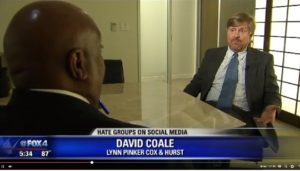 by Fox 4 Dallas about social media and hate speech, in light of recent events in Charlottesville.
by Fox 4 Dallas about social media and hate speech, in light of recent events in Charlottesville.
 In a return trip to the Fifth Circuit, the defamation case of Block v. Tanenhaus again sidestepped the question of whether state anti-SLAPP laws apply in federal courrt, allowing that elephant to remain in the Erie room for awhile longer. Here, assuming that the Lousiana state law applied, the panel reversed and remanded the dismissal of a professor’s claim that the New York Times misquoted him. Jess Krochtengel summarizes the underlying Erie question and its implications in a recent Law360 article. No. 16-30966 (Aug. 15, 2017).
In a return trip to the Fifth Circuit, the defamation case of Block v. Tanenhaus again sidestepped the question of whether state anti-SLAPP laws apply in federal courrt, allowing that elephant to remain in the Erie room for awhile longer. Here, assuming that the Lousiana state law applied, the panel reversed and remanded the dismissal of a professor’s claim that the New York Times misquoted him. Jess Krochtengel summarizes the underlying Erie question and its implications in a recent Law360 article. No. 16-30966 (Aug. 15, 2017).
Five LPCH attorneys are on 2018’s list of Best Lawyers in America!

